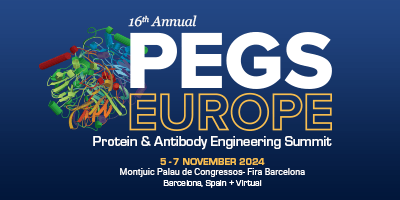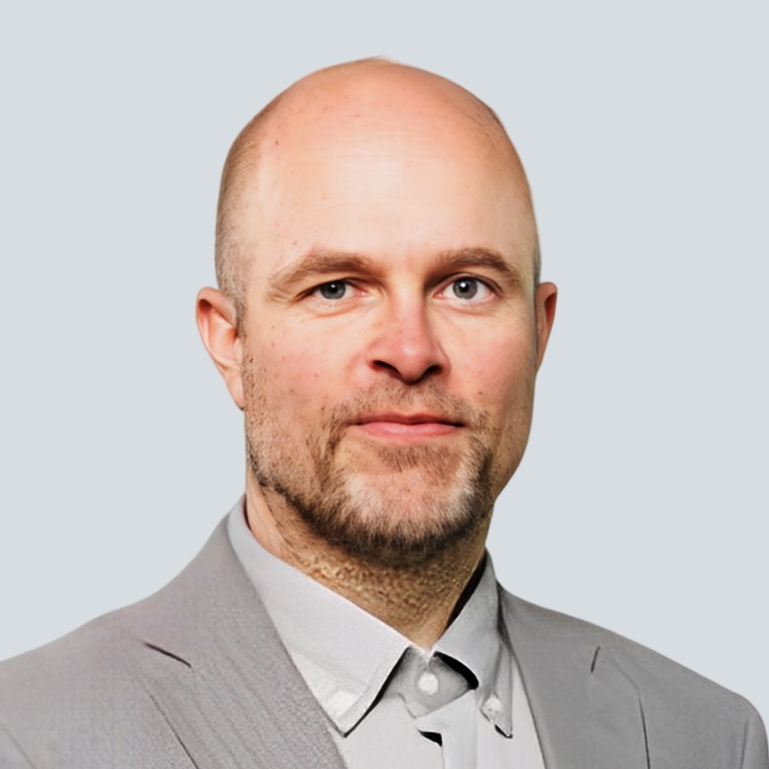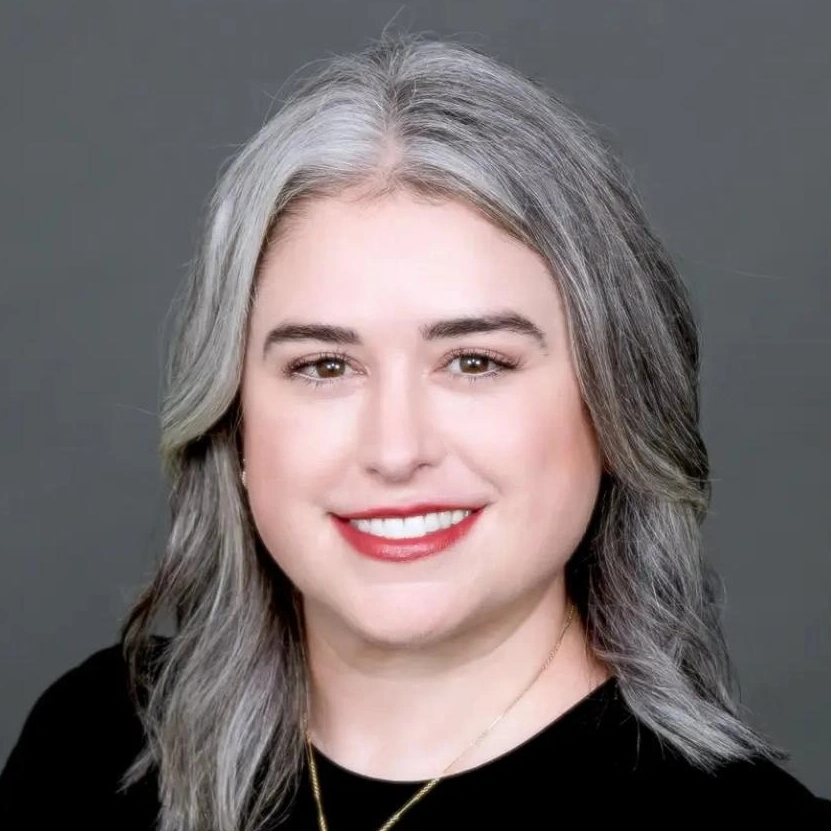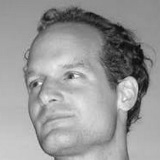講演者
Filter by:
Yasmina Abdiche, PhD, Vice President, Exploratory Research, OmniAb Inc.
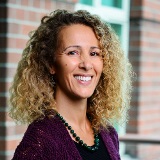
Yasmina is an internationally recognized and innovative scientific leader in the field of antibody discovery and biosensors with twenty years of experience in protein engineering and biopharma. To date, she has authored over 45 peer-reviewed publications, had 25 patents granted in the therapeutic antibody space including a market-approved drug (Ajovy), presented over 50 times as an invited speaker globally, and has been involved in numerous industry-wide collaborations and scientific advisory groups. After a twelve-year career at Pfizer where she held positions of increasing responsibility from Principal Scientist to Research Fellow, more recently, Yasmina has held senior management roles at biotechnology companies and contract research organizations including Carterra (CSO), ImmunoPrecise Antibodies (CSO), ALX Oncology (Vice President Protein Science), Revelar (CSO and Co-Founder), and FairJourney Biologics (CTO). During her time as CSO at Carterra, she co-founded its antibody screening biosensor platform (the LSA) which has helped transform label-free interaction analysis in early-stage drug discovery. Yasmina has a Master's degree in Chemistry and a PhD in Biological Chemistry from Oxford University and did post-doctoral studies in biophysical interaction analysis at the University of Utah.
Maryam Ahmadi, Director of Cell and Molecular Biology at Sphere Fluidics, Sphere Fluidics Ltd.
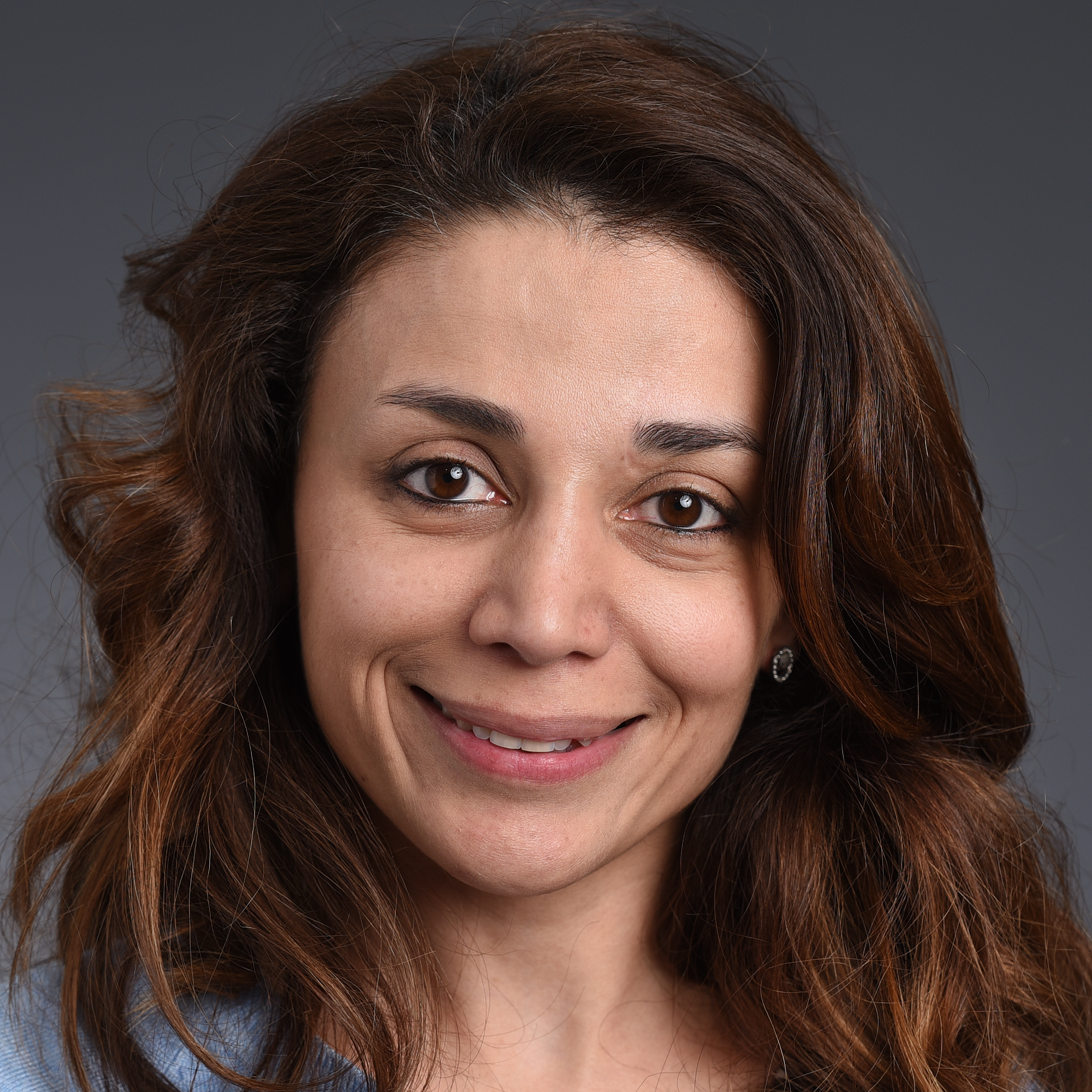
Dr. Maryam Ahmadi, Director of Cellular & Molecular Biology at Sphere Fluidics, brings over 17 years of comprehensive experience in both industry and academia to her role. With a decade-long tenure at a Contract Research Organization (CRO), Maryam honed her skills in managing diverse projects. Notably, as the former Director of Bioassay at Abzena, she led a team specializing in bespoke Immunology and Bioassay for external clients. Her responsibilities included the development of service lines crucial for testing and de-risking therapeutics, such as PK studies, MHC-associated peptide proteomics (MAPPs), and Cytokine Release Assay for therapeutic antibodies and antibody-drug conjugates. Maryam's expertise spans Immunology and Tumour Biology, underscored by her proficiency in designing and overseeing tailored R&D initiatives. Her academic journey includes a postdoctoral research position at University College London (UCL), where she delved into tumour-specific immune responses. She holds a PhD in Tumour Immunology from the University of Bristol, UK.
Sohrab Ahmadivand, PhD, Faculty of Veterinary Medicine, Ludwig Maximilians University of Munich
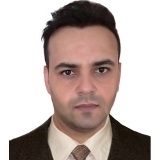
Ph.D. in Veterinary Sciences, with over 10 years of academic, clinical and industrial experience in the field, Dr. Ahmadivand is passionate and dedicated researcher who aims to improve health and welfare through innovative vaccine development. He is currently a Researcher and a former Alexander von Humboldt Fellow at Faculty of Veterinary Medicine, Ludwig-Maximilians-University of Munich. Dr. Ahmadivand has managed and taken an active role of more than 5 research and industrial vaccine projects using various types of vaccines against bacterial and viral pathogens, and 2 national and international molecular epidemiological studies with first reports from Iran of 5 different DNA and RNA viruses, most of which are WOAH listed. He is currently Guest Editor of Vaccines and has also published and patented several results of his research, and received some awards and honors for his academic excellence and innovation. Dr. Ahamdivand has recently developed a vaccine with commercial potential against a WOAH-listed RNA virus (IHNV) using Self-assembling ferritin nanoplatform at LMU Munich (Germany) in collaboration with Institute of Biotechnology and Biomedicine (Spain) and University of Salford (UK).
Rahmad Akbar, PhD, Senior Data Scientist, Antibody Design, Novo Nordisk

At Novo Nordisk, Rahmad enables patients to realize their greatest potential by catalysing antibody design. He leverages experimental data, molecular simulation, and artificial intelligence to build computational oracles and to design antibody therapeutics faster, smarter, and cheaper.
Tero-Pekka Alastalo, CEO, Avenue Biosciences
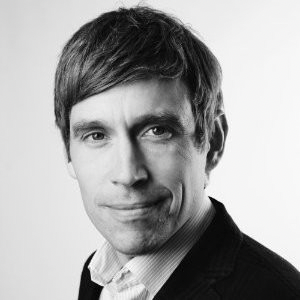
Tero-Pekka Alastalo (MD, PhD) is the CEO and co-founder of Avenue Biosciences. He has 12 years of experience as an entrepreneur in life sciences and over a decade of clinical and translational research experience. His previous roles include heading North American operations at CardioSignal and co-founding Blueprint Genetics, a clinical genetic testing company acquired by Quest Diagnostics in 2020.
Richard Altman, MS, Field Application Scientist, Life Science Solutions, Thermo Fisher Scientific

Rich Altman has 30 years of experience in protein expression and production. In early 2019, he joined Thermo Fisher Scientific as a Field Application Scientist. Previously, he worked for several pharmaceutical companies, including Amgen, Alexion, Bayer, and Upjohn, on the cloning, expression, purification and characterization of recombinant proteins. This work supported both small-molecule high-throughput screening and protein therapeutic efforts. He received his MS degree from the University of Pittsburgh School of Medicine in the Department of Molecular Biology and Biochemistry.
Celine Amara, Project Expert, DMPK, Sanofi
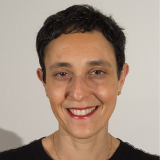
More than 25 years of experience in R&D in the pharma industry in Drug Metabolism and Pharmacokinetics (DMPK) within Sanofi. Head of Bioanalysis and Pharmacokinetics section in Discovery for 10 years. Now focused on Biologics, i.e., Antibody-Drug-Conjugates, Multispecific mAbs, or nanobodies for Oncology programs from Discovery to clinic (Phase I) as DMPK project expert with a focus on First-in Human dose selection approaches.
Taruna Arora, PhD, Formerly Vice President, Biotherapeutics, Bristol Myers Squibb

Taruna is a seasoned industry leader in biologic drug discovery and development. With a deep understanding from discovery to product approval, Taruna has successfully led teams in creating, designing, and advancement of innovative therapies. She has extensive experience in shaping the portfolio of biologic modalities, including multi-specifics, immune engagers, and antibody-drug conjugates (ADCs). Her strong background in immunology and expertise in biologic drug discovery and development, coupled with knowledge of cutting-edge technology platforms have enabled cross-functional solutions for the programs.Taruna is vice President, Biotherapeutics at BMS. Previously she has served in leadership roles at Amgen, NGM Bio and Coherus.
- Engineering Conjugates
- Machine Learning Approaches for Protein Engineering: Part 1
- Innovative CAR T Therapy
- Emerging Targets and Therapeutic Approaches
- Advancing Multispecifics and Combination Therapy to the Clinic
- Analytical Characterisation of Biotherapeutics
- Optimising Expression Platforms
- Engineering Antibodies & Beyond
Sarah Ash, PhD, Postdoctoral Researcher, Department of Oncology, Ludwig Institute for Cancer Research, University of Lausanne
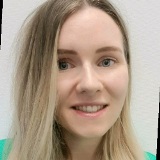
I am a curious and driven research scientist with 8 years of active laboratory experience across industry and academia. Over this time, I have become specialized in oncology research, with a particular focus on the tumor microenvironment, immune oncology and T cell engineering. Through my undergraduate placement at AstraZeneca UK, I gained experience in industrial research and multidisciplinary collaboration. Scientifically, I gained knowledge and skills in tumor cell-stromal cell interactions, which I went on to apply to my PhD research, developing a CAR-T cell therapy approach directed at the activated tumor microenvironment. Presently, I am working as a Postdoctoral Researcher in Lausanne, developing novel co-engineering strategies to augment the efficacy of T cell therapies. Throughout my academic experience I have gained and applied key skills in teamwork, problem solving and resilience, as well as a wide range of technical laboratory skills. Additionally, I enjoy connecting with peers and bringing people together scientifically and socially. This is evidenced by my active role in scientific/social/conference committees at each stage of my career so far.
Heloise Audat, Head, Formulation and Development Laboratory, Biologics Drug Product Development, Sanofi
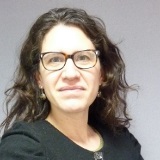
Héloïse Audat is a Drug Product Team Leader and laboratory head for Biologics in SANOFI since 2011. She covered all DP fields: formulation and process development, support of technical and clinical manufacturing, coordination of tech transfer including outsourcing activities, global clinical support, in-use studies, medical device compatibility, CMC dossier contributions, and Health Authorities (HA) follow-ups (BLA, MAA, etc.). She has experience in early and late projects on several formats of Biologics including mAb, bi-specific, and Antibody Drug Conjugate. She had previous experience in computerized systems and project management. She holds an engineer diploma specialized in immunology and project management.
David Ausländer, PhD, Senior Principal Scientist & Group Head, Biologics Research Center, Novartis AG
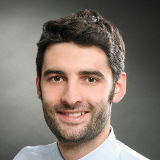
David Ausländer completed his PhD in 2014 at ETH Zürich in Switzerland, where he studied Synthetic Biology and Mammalian Cell Engineering. He joined Novartis in 2017, where he leads a global team in the Biologics Research Center in Cell Line Development. His group develops and applies innovative plasmid- and cell line engineering solutions to enhance quality and productivity of manufacturing cell lines producing New Biologics Entities and Viral Vectors for Cell and Gene Therapies.
Okan Aydin, Business Development Scientist, ENPICOM
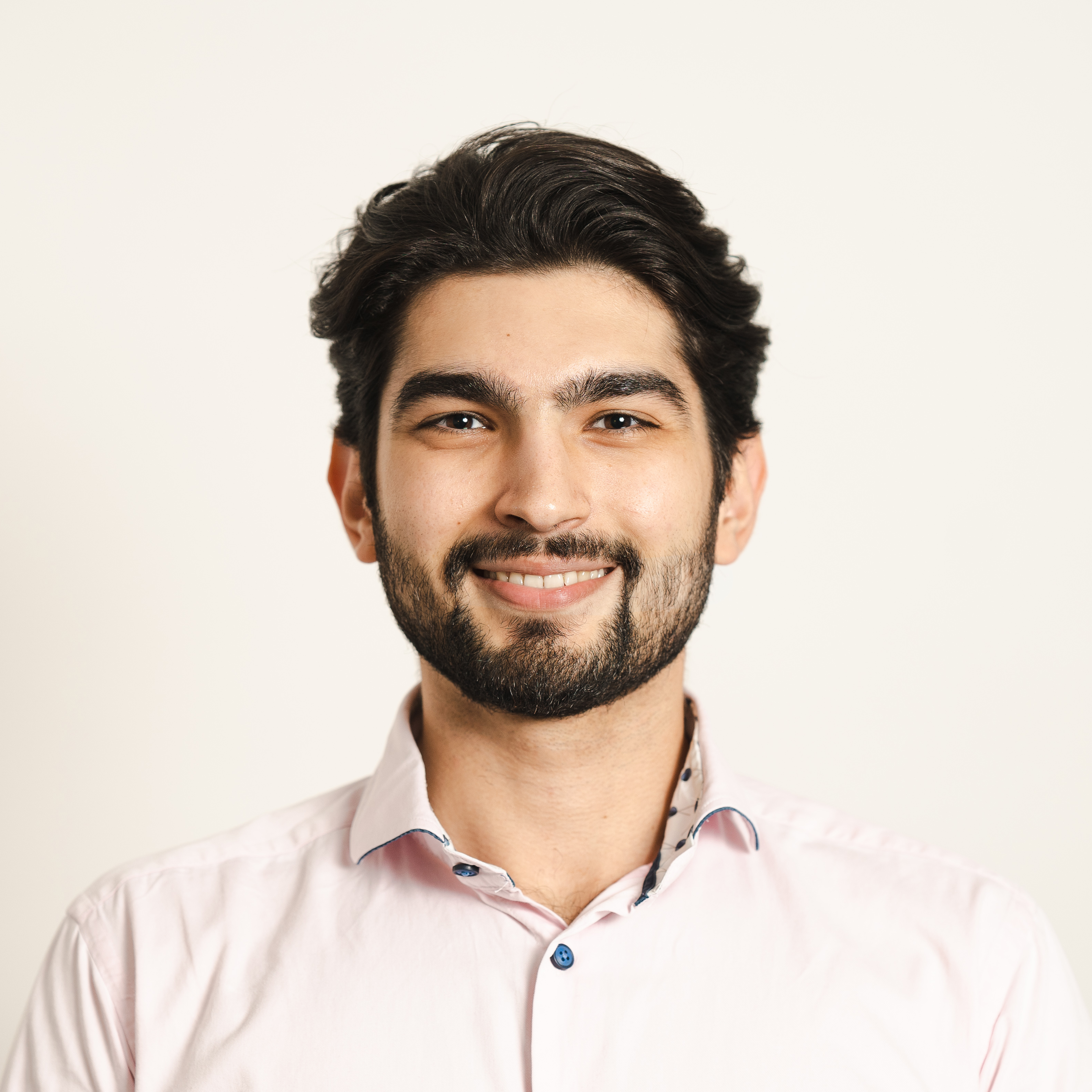
Okan Aydin, Application Scientist at ENPICOM, specializes in bioinformatics and antibody discovery. With a background in bioengineering and bioinformatics, he is dedicated to solving complex biological data problems with simple computational solutions.
Chris Bahl, President, CSO and Co-Founder, AI Proteins
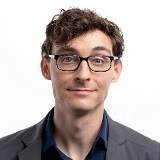
Christopher D. Bahl, PhD co-founded AI Proteins in November 2021 and serves as President, Chief Scientific Officer, and Director. Chris is a protein designer, biochemist, structural biologist and entrepreneur. Prior to founding AI Proteins, Chris joined the Institute for Protein Innovation in Boston as one of the founding faculty members, with co-appointments at Boston Children's Hospital and Harvard Medical School. He pioneered the ability to computationally design miniproteins de novo as a postdoctoral fellow with Dr. David Baker at the University of Washington’s Institute for Protein Design in Seattle. In recognition of his innovative approach to creating therapeutics with the potential to tackle long-standing challenges in medicine and human health, Chris was selected as a 2019 TED Fellow. In addition to his role at AI Proteins, he is the Founder and Co-Organizer of the Boston Protein Design and Modeling Club, a community of computational protein engineers and modelers from both academia and industry and sponsored project of the Open Molecular Software Foundation. He also sits on the Executive Council of The Protein Society, a non-profit scientific and educational organization that provides forums for scientific collaboration and communication and supports the professional growth for early-career investigators. Chris also serves as a Scientific Advisor for Applied Photophysics, Ltd. and BioLoomics, Inc. Chris holds a Ph.D. in Biochemistry from Geisel School of Medicine at Dartmouth, and received his MS in Biochemistry and BS in Biochemistry, Molecular & Cellular Biology from the University of Maine.
Preeti Bakrania, Principal Business Development Manager, Platforms, Partnerships, LifeArc
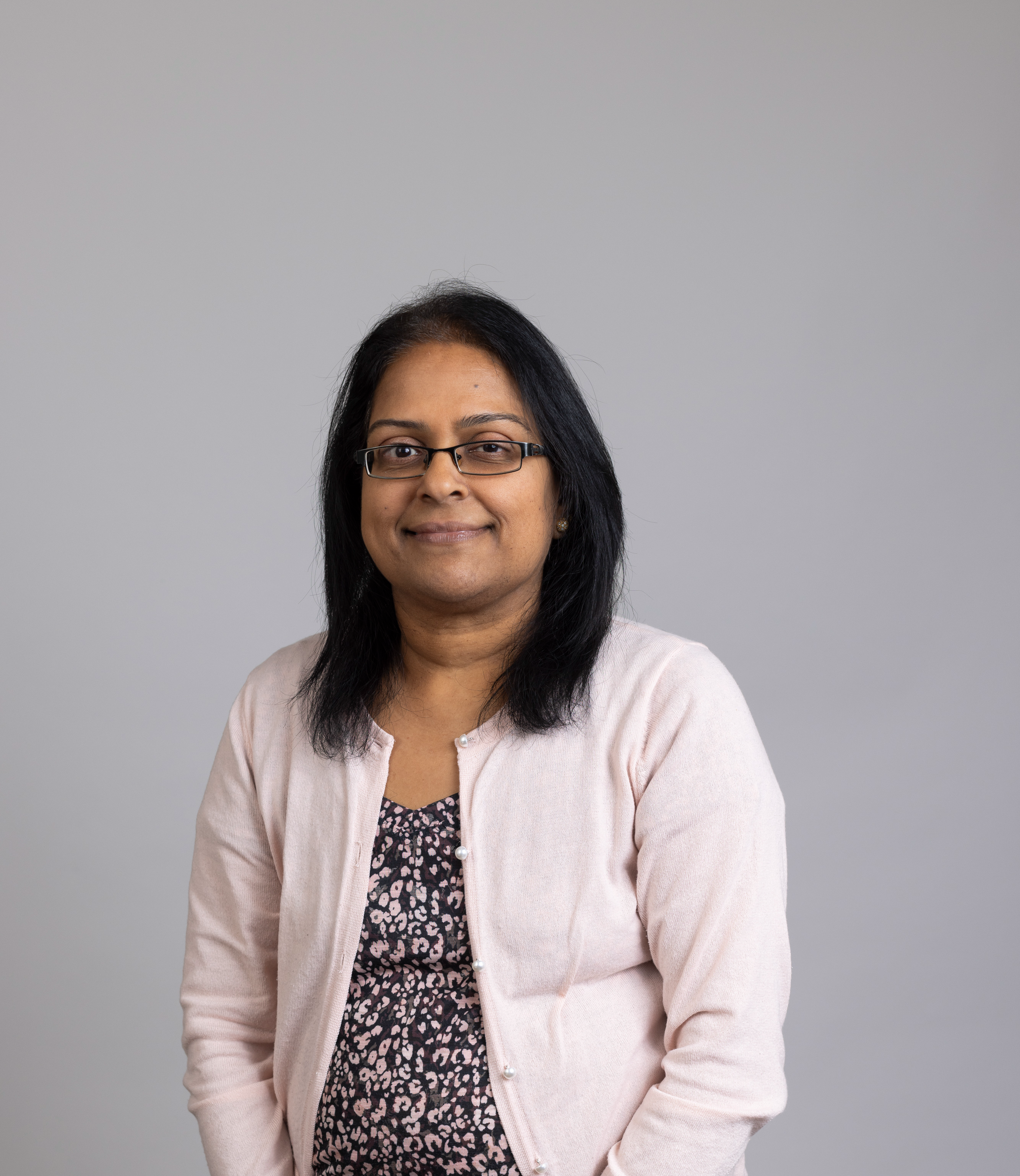
Dr Preeti Bakrania leads the Business Development and Partnerships activities for the Therapeutic Platforms at LifeArc including the commercialisation of our monoclonal antibody discovery and humanisation platforms. She obtained her PhD in Biochemistry at the National Institute for Medical Research and has more than 20 years research experience working in a number of disease areas including neuroscience, oncology and ophthalmology with postdoctoral roles held within UCL, University of Cambridge and University of Oxford. She joined LifeArc 16 years ago working on both small molecule and biologics drug discovery programs. Preeti is an experienced project and portfolio manager where she managed LifeArc’s world-leading antibody humanisation portfolio, which has resulted in the development of five commercialized drugs, including Keytruda® and Leqembi® and also led LifeArc’s portfolio to generate fully human antibodies using our in licensed transgenic mouse platform against a number of target classes across a wide range of disease areas for pre-clinical development. More recently, in her role as a Scientific Director leading the Biologics Discovery and Development team in LifeArc’s Therapeutic Translation Platform group she oversaw a team of 28 scientists based at our sites in Stevenage and the Francis Crick Institute who are dedicated to the successful delivery of high-quality biological therapeutics to support LifeArc’s Portfolio. Preeti is a passionate scientist that thrives on the successful delivery of drug discovery programs to the clinic for the benefit of patient healthcare and has a track record of success with a number of publications, named inventor on four patents and has been a Board Observer for DJS antibodies which was recently acquired by Abbvie.
Patrick Barth, PhD, Associate Professor, Protein and Cell Engineering, EPFL
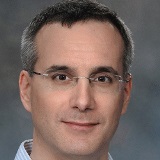
Professor Patrick Barth is Associate Professor at EPFL and Adjunct Associate Professor at Baylor College of Medicine, Houston, TX, USA. He received training in Physics, Chemistry and Biology (University of Paris, Ecole Normale Supérieure) in France and performed his PhD at the Commissiariat a l'Energie Atomique in Saclay, France on structure/function studies of membrane proteins (photosystem I) using biochemical and biophysical experimental techniques. He carried out postdoctoral studies at University of California at Berkeley with Tom Alber on computational studies of protein electrostatics and de novo design of peptide inhibitors of cellular protein interactions. He then went to the University of Washington as a postdoctoral fellow and instructor in David Baker's laboratory to develop computational methods within the software Rosetta for predicting and designing membrane protein structures. He started his independent career and received tenure at Baylor College of Medicine and continues at EPFL to marry computation and experiment for understanding the molecular determinants of signal transduction, as well as modeling and designing membrane proteins with novel functions for various synthetic biology and therapeutic applications.
Michael B. Battles, PhD, Senior Scientist II, Adimab, LLC
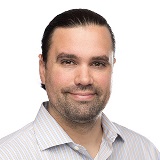
I am an experienced protein engineer and structural biologist specializing in discovery and optimization of therapeutic candidates isolated from an in vitro platform. I am currently a Senior Scientist II at Adimab, LLC. in Lebanon, NH.Prior to returning to Adimab, I was a PhD student in the laboratory of Dr. Jason S. McLellan at the Geisel School of Medicine at Dartmouth, the focus of my thesis research was on small-molecule and antibody-mediated inhibition of the Respiratory Syncytial Virus and Human Metapneumovirus fusion glycoproteins through biochemical characterization and crystallographic studies. Prior to returning to Dartmouth to obtain my Ph.D. I spent ~10 years in the Biotech industry working for GlycoFi (RA, 2004-2005), Merrimack Pharmaceuticals (RAII, 2006-2008), and Adimab LLC (Scientist I, 2008-2013). During this time, my focus was on protein engineering; specifically, antibody discovery and optimization of therapeutic candidates.
Yves Baudat, Senior Scientist, Immuno Oncology, Sanofi
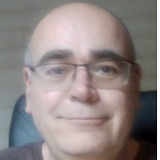
I am a researcher with 29 years of experience, working in oncology since 2000, with two domains of expertise, lab head supervising a team of biochemists and cellular biologists, as well as preclinical project head leading teams dedicated to ADC, from target identification to candidate for clinical entry.
Andrew Bayliffe, PhD, CSO, Marengo Therapeutics

Andrew Bayliffe, CSO of Marengo Therapeutics, has 25 years of leadership experience in the biopharmaceutical industry, with expertise in the discovery and development of both small molecule and antibody therapeutics across a broad range of disease areas. At GlaxoSmithKline Pharmaceuticals, Andrew held senior discovery and development leadership roles in the US and UK and worked on a range of antibody projects including early anti-CD3 antibodies, TCR-based therapeutics, and other immune cell targeted approaches across immunology, respiratory, and oncology therapy areas. Andrew is also a venture partner at ATP (Apple Tree Partners) and an honorary professor at the Wolfson Institute of Experimental Medicine at Queens College in Belfast. He completed his undergraduate and PhD studies in pharmacology, physiology, and molecular biology at Manchester University and Leeds University in the UK.
Marie-Eve Beaulieu, PhD, Co-Founder & CSO, Drug Development, Peptomyc SL
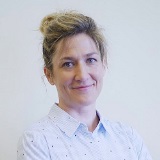
Dr. Beaulieu is the co-founder and CSO at Peptomyc, a biotech company developing mini-protein therapeutics for cancer treatment. PhD in Pharmacology with a strong focus on structural biology of proteins, Marie-Eve has led the preclinical pharmaceutical development of OMO-103, the first direct MYC inhibitor to successfully complete a clinical trial showing safety and clinical activity in human patients. Together with the co-founder Dr. Laura Soucek, Marie-Eve designed the company strategy, built the team and fundraised public >11MEur and private ~30MEur capital. She is now in charge of the company's pipeline development and biomarker programs. Marie-Eve has co-authored 8 patent applications, 30 peer-reviewed publications, and 4 book chapters (ORCID 0000-0001-5224-8436). She was awarded several competitive fellowships (e.g., CREFSIP scholarship, MITACS, and FRSQ postdoctoral awards) and contributed to the company’s scientific and business excellence as testified by several local and international awards (e.g., BioFit, best company initiative at AJIEC, EIT Health Headstart, J&J StartUpSlam at BioEurope, and the highly competitive H2020 SME Instrument and EIC Accelerator awards).
Dennis Beringer, PhD, Assistant Professor, Center of Translational Immunology, University Medical Center Utrecht
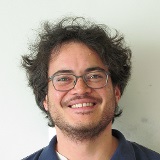
Dr. Dennis Beringer is an assistant professor at the Center for Translational Immunology at the University Medical Center Utrecht (UMCU), the Netherlands. He obtained his PhD at Utrecht University in the field of structural biology. After which he moved to Monash University, Australia, where he investigated the molecular details of T cell receptor (TCR) - antigen interactions in autoimmune diseases and cancer. Intrigued by TCR biology, he returned to Utrecht to join the group of Prof. Kuball at the UMCU in 2016 to study the molecular determinants of tumor reactive ?dTCRs. Currently, he and his team are focusing on the optimization of existing and the development of novel ?d-TCR based therapeutics for cancer therapy, using protein engineering strategies.
Nick Berrow, PhD, Manager, Protein Expression Core Facility, Institute for Research in Biomedicine IRB Barcelona, Barcelona Institute of Science and Technology (BIST)
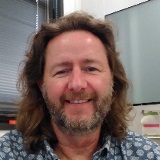
After receiving a Ph.D. in Biochemistry from the University of Keele (UK) in 1991 I worked in the Pharmacology department of University College London, producing and characterizing polyclonal antibodies, producing mammalian heterologous expression systems for electrophysiological studies and ultimately producing recombinant proteins for interaction studies. I then worked for six years at the Oxford protein Production Facility, where we established a HTP clone-to structure pipeline for structural genomics, before moving to Barcelona in 2007 to establish the Protein Expression Core Facility (PECF) in IRB Barcelona. The PECF produces a variety of proteins in E. coli, BEVS and mammalian cells to facilitate the diverse research interests of IRB groups and other members of the local academic community. I am an active member (and current board member) of the Protein Production and Purification Partnership in Europe (P4EU) network.
Jais R. Bjelke, PhD, Principal Scientist, Global Research, Novo Nordisk AS

Jais Rose Bjelke, PhD, obtained his doctorate in Haemostasias Biochemistry in 2006, following a Master’s degree in Human Biology and a Bachelor’s degree in Molecular Biology. With a tenure at Novo Nordisk of 22 years, he currently holds the position of Principal Scientist and Technology Project Coordinator in the Global Research Unit. Throughout his career, he has played a pivotal role in numerous haemophilia, inflammation and other biopharmaceutical drug projects. Notably, his contributions were instrumental in the research and development of Rebinyn/Refixia (nonacog beta pegol), a long-acting coagulation factor IX drug approved by both the FDA and EMA, and of the coagulation factor VIII-mimicking bispecific antibody Mim8, which is in phase 3 clinical trial.
Catherine Bladen, COO, Absolute Biotech, Absolute Biotech
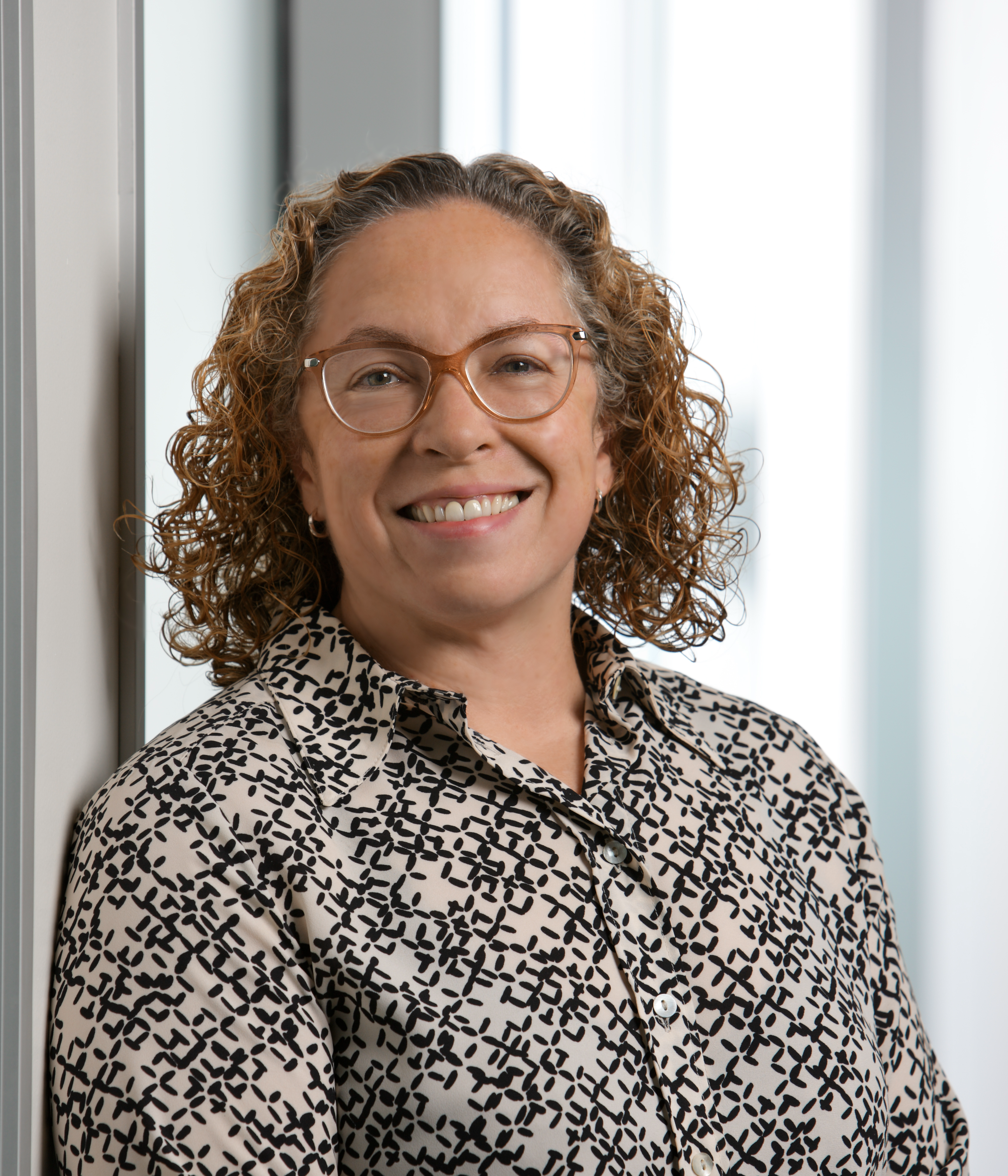
Catherine has more than 15 years’ experience in biochemistry research. She completed her PhD in 2001 at Newcastle University. She previously worked at the Medical College of Georgia identifying proteins involved in DNA repair, Leeds University researching the role of DNA repair in osteoarthritis, and Newcastle University leading a multi-national research project identifying Duchenne muscular dystrophy mutations. Catherine joined Absolute Biotech in 2015 and leads our research and production teams.
Jonathan Bones, PhD, Principal Investigator, Characterisation and Comparability Laboratory, National Institute for Bioprocessing Research and Training (NIBRT), Ireland
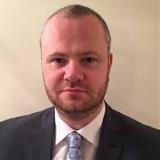
Jonathan holds a PhD in analytical chemistry from Dublin City University and an MBA from University College Dublin. He is principal investigator of the Characterisation and Comparability Laboratory at NIBRT, director of CONCEPT, NIBRT’s new early-stage research core facility and an associate professor in the school of chemical and bioprocess engineering at UCD.
Osvaldo Bortone, PhD, Associate Scientist, Global Drug Product Development, Merck Serono S.A.

No bio available.
Andreas Bosshart, PhD, Senior Director, Oncology Research, Lead Generation, Molecular Partners AG
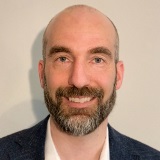
Andreas Bosshart is Senior Director at Molecular Partners heading the DARPin technology platform in the lead generation department. In previous roles he co-developed different therapeutic modalities, including a DARPin ProDrug T cell engager and the Switch-DARPin platform. Andreas is a biochemist by training and obtained his PhD from the ETH Zurich in the group of Professor Sven Panke, working on intensified enzyme-catalysed processes for the production of fine chemicals.
Andrew R.M. Bradbury, MD, PhD, CSO, Specifica, Inc., a Q2 Solutions Company
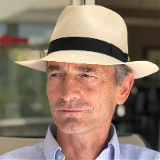
Andrew Bradbury is Chief Scientific Officer of Specifica. He trained in medicine at the universities of Oxford and London and received his PhD from the university of Cambridge at the MRC Laboratory of Molecular Biology under the guidance of Nobel Laureate, Cesar Milstein. He has worked in the fields of phage and yeast display, library generation, antibody engineering and Next Generation Sequencing for over thirty years. He was a Group Leader at Los Alamos National Laboratory before founding Specifica. Specifica's mission is to enable companies developing therapeutic antibodies with the world’s best antibody discovery platform.
Ulrich Brinkmann, PhD, Expert Scientist, Pharma Research & Early Development, Roche Innovation Center, Munich
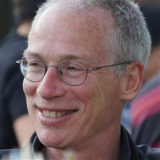
Dr. Ulrich Brinkmann is a member of Roche’s Large Molecule Research organization within Pharma Research & Early Development at the Roche Innovation Center Munich (Penzberg, Germany). His work focuses on protein & antibody engineering, bispecifics, and on delivery platforms for targeted payload delivery. Prior to joining Roche, he served as CSO in functional genomics and pharmacogenetics companies Xantos and Epidauros. His previous work in Ira Pastans Molecular Biology Lab at the NIH/NCI in Bethesda, USA focused on antibody stabilization and engineering technologies, and on generating recombinant immunotoxins for cancer therapy. Dr. Brinkmann is author of numerous publications and inventor of many patents covering recombinant antibodies, pharmaco- & functional genomics, immunotoxins and protein engineering technologies and applications.
David J. Brockwell, PhD, Professor, School of Molecular and Cellular Biology, University of Leeds
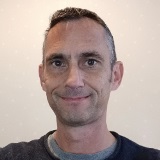
Professor Brockwell is an academic in the School of Molecular and Cellular Biology and a member of the Astbury Centre at the University of Leeds in the UK. He undertook his undergraduate studies (Pharmacy) and PhD at the University of Manchester, before joining Leeds first as post-doctoral researcher and then as a Faculty member. Current research focusses on understanding the effects of force on protein structure and function and the aggregation of therapeutic and disease-causing proteins.
Adam J. Brown, PhD, CTO, SynGenSys Ltd.; Associate Professor, Chemical & Biological Engineering, University of Sheffield
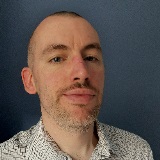
Adam Brown is an Associate Professor of Biopharmaceutical Engineering at the University of Sheffield. He is also a co-founder and CTO of SynGenSys.
Alexander Buettner, PhD, Senior Scientist, Pharma Technical Development, Roche
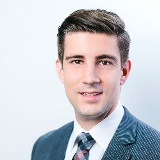
Alexander Buettner obtained his Ph.D. from TUM in 2016, focusing on enhancing E. coli antibody fragment expression systems at Boehringer Ingelheim Vienna. He began his professional journey at Roche as a Postdoctoral Researcher in 2016, contributing to glycan structure function studies for Neorecormon and Mircera. Over the years, he has progressed to the roles of Scientist (2017), Group Leader (2019), and Senior Scientist (2021), where he has been involved in various areas including routine (extended) characterization of biopharmaceuticals, Data Science topics, IT system validation, instrument qualification, method validation, and automation of sample preparation.
Nicola Burgess-Brown, PhD, COO and Consultant, Protein Sciences, Structural Genomics Consortium; Visiting Scientist, University College London
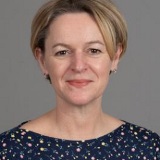
Nicola obtained a First Class degree in Applied Biochemical Sciences from the University of Ulster in 1997, then worked as a molecular biologist for SmithKline Beecham. She received her Ph.D. in Molecular Microbiology at the University of Nottingham in 2001 and moved back to industry to work on high-throughput cloning and validation of therapeutic cancer antigens for Oxford Glycosciences and subsequently Celltech R&D. Nicola then worked at the University of Oxford for 17 years, building and leading the Biotechnology Group at the Structural Genomics Consortium (SGC) and more recently, as an Associate Professor, and Head of the Protein Production Small Research Facility (SRF) in the Centre for Medicines Discovery (CMD). From September 2021, she led the Enzymology and Protein Engineering Team at Exact Sciences Innovation in Oxford, producing proteins for cancer diagnostic research. Since January 2024, she has rejoined the SGC, working as a consultant (Chief Operating Officer, Protein Sciences) coordinating protein production across the 6 SGC sites, in addition to building a membrane protein lab as a visiting scientist at UCL in London.
Cintia Carreira, Associate Principal Scientist, Purification Development, Lonza Biologics
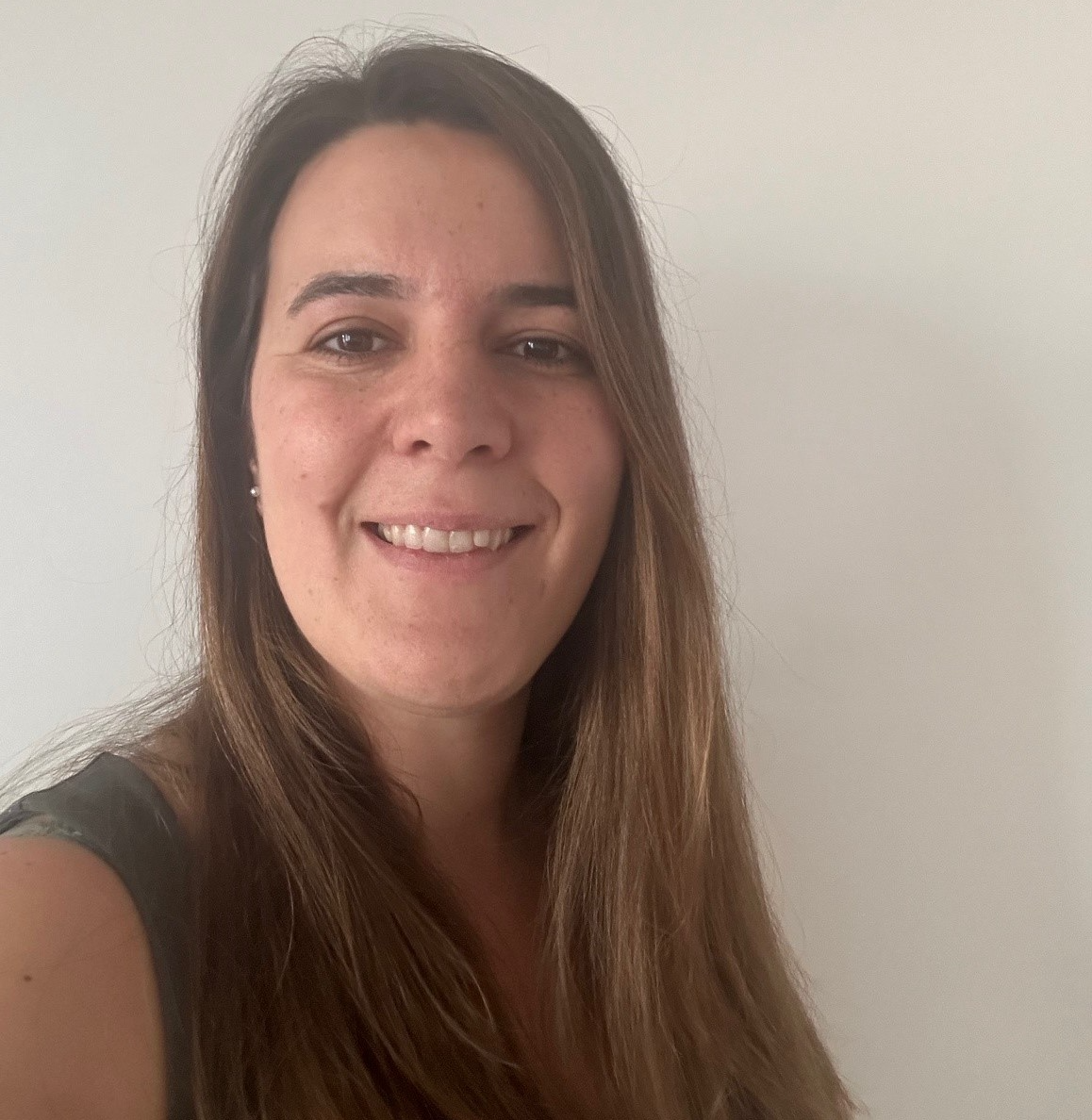
Cintia Carreira is currently an Associate Principal Scientist in Purification Development at Lonza. She earned her master's in Biotechnology and her PhD in Biochemistry at the NOVA University of Lisbon (Portugal). Cintia joined Lonza in 2018 and she specializes developing downstream processes for bispecific antibodies, new molecular formats and other recombinant proteins. Over the last 6 years, she supported multiple projects on early phase development as well as late phase (Process Characterization).
Sofia B. Carvalho, PhD, Senior Scientist, Animal Cell Technology, Instituto de Biologia Experimental Tecnologica (iBET)
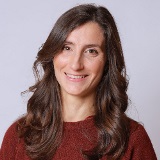
Sofia Baptista Carvalho is a senior researcher at the Animal Cell Technology Unit of iBET’s Health & Pharma Division since 2018. Sofia B. Carvalho finished her graduation and MSc in Biochemistry in 2009 and 2011 (FCUL), respectively, and in 2018 finished her PhD in Biotechnology from ITQB-NOVA. Sofia’s PhD research was in the area of Downstream processing strategies for Influenza VLPs as universal vaccine candidates as well as the development of analytical tools for process optimization and product characterization. She did part of her PhD studies at the Max Planck Institute for the Dynamics of Complex Technical Systems, Downstream Processing Lab (Germany), and at PALL Life Sciences (United Kingdom). In January 2018 she joined Genibet Biopharmaceuticals, a cGMP biopharmaceutical, to work as Project Manager of projects on viral process development and cGMP manufacturing. Later in 2018 she returned to the Animal Cell Technology Unit @iBET first as a research associate, and in 2019 as a senior researcher. Sofia B. Carvalho's research interests are related to downstream processing and analytical tools of biopharmaceuticals, covering protein expression and purification, virus and VLP production (from cell expansion to product purification), Impact of operating variables on process performance and product quality, and the development of analytical tools for bioprocess understanding and biologics characterization (quantitative and qualitative). She participated as a team member in several publicly funded research projects (FCT and EC) and operates as a project manager in research services with the biopharmaceutical industry. Sofia B. Carvalho authored 18 manuscripts, 1 conference paper, and 1 book chapter, receiving a total of 435 citations (h-index 12). During her PhD, she tutored 2 MSc students (2 theses defended). Sofia B. Carvalho received 2 awards and 8 grants and participated as author/co-author of more than 20 oral presentations and 30 poster communications.
Samuele Cazzamalli, PhD, Group Head-Senior Scientist, Philochem AG
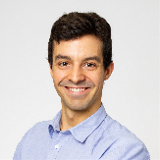
Samuele Cazzamalli (Italian, 16 December 1990) studied Medicinal Chemistry at the University of Milan. During his doctoral studies at ETH Zu¨rich in the group of Prof. Dario Neri (2015-2018), Samuele has generated novel Antibody-Drug Conjugate, Small Molecule-Drug Conjugate and Small Molecule-Radio Conjugate products for applications in oncology. Samuele works now at Philochem AG (Switzerland), where he heads the “Small Molecule Therapeutics” team, a research unit that focuses on the development of products based on small organic ligands for tumor-targeting applications.
Laura Cervera, PhD, Serra-Hunter Lecturer Professor, Departament d’Enginyeria Química, Biològica i Ambiental, Universitat Autònoma de Barcelona
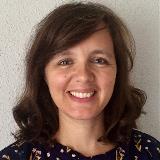
I did my Ph.D. at Bioprocess and Cell Engineering Group at Universitat Autònoma de Barcelona where I developed a project in the field of bioengineering devoted to the production of HIV-1 Virus-like particles as a platform for recombinant vaccine production. I combined my research with undergraduate teaching at UAB. After finishing my PhD, I enrolled as Postdoctoral Fellow at the Bioengineering Department at McGill University (Montreal, Canada), under the supervision of Prof. Amine Kamen. My research focused on the development of a production process for Influenza VLPs using the Baculovirus/Insect cell platform. Nowadays I have a position at UAB as a postdoctoral fellow working on the development of a bioprocess to produce Adeno-Associated vectors for gene therapy.
Ross Chambers, PhD, Vice President, Antibody Discovery, Integral Molecular, Inc.
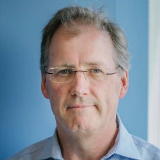
Ross Chambers is the Vice President of Antibody Discovery at Integral Molecular. He pioneered the use of DNA immunization for antibody production and developed Integral Molecular’s MPS system for isolating antibodies. Dr. Chambers earned his PhD from the University of Otago, New Zealand, and did post-doctoral studies at UC Davis and Berkeley. Before joining Integral Molecular, he was the Director of R&D at SDIX and directed the discovery of thousands of commercial antibodies.
Javier Chaparro-Riggers, PhD, Executive Director, BioMedicine Design, Pfizer Inc.
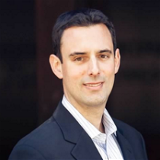
Javier joined Pfizer in 2007, and is leading the BioTherapeutic Discovery department within Biomedicine Design. He is responsible for leading biotherapeutic discovery work, including lead generation and optimization, biophysical characterization, and non-GLP biotherapeutic production. During his tenure at Pfizer he worked on conventional/bispecific/trispecific antibodies, antibody-cytokine fusions, antibody drug conjugates, CAR T cells, oncolytic viruses, and mRNA therapies. Javier is interested in understanding the underlying biology of drug design and delivery and engineering solutions for challenges associated with developing the next generation of biotherapeutics.
Henry C. Chiou, PhD, Senior Director General Manager, Biosciences, Thermo Fisher Scientific

Henry Chiou is Senior Director and General Manager for the Delivery and Protein Expression business within Biosciences at Thermo Fisher Scientific. He and his teams have developed products such as the Expi family of 293, CHO and Sf9-based expression systems, Lipofectamine 3000, and other Lipofectamine-family transfection reagents, production systems for cell and gene therapy viral vectors such as AAV MAX system. Henry has authored multiple publications on mammalian transient expression and frequently teaches courses and lectures on this subject. Prior to joining Thermo Fisher, Henry worked in small to mid-sized biotech companies on non-viral gene therapy. Henry received his doctorate from Harvard University in Molecular Pharmacology, following which he completed a postdoctoral fellowship in viral expression systems at the University of Pennsylvania.
Mark L. Chiu, PhD, CSO, Tavotek Biotherapeutics

Mark received his training from: BA Biophysics at UC Berkeley, PhD Biochemistry at University of Illinois Urbana-Champaign, and conducting postdoctoral work at ETH-Zürich and Biozentrum of University of Basel. His work experience has spanned from being an Organic Chemist at Microgenics developing chemical conjugation of enzymes; Chemistry Professor at Seton Hall University getting grants on prokaryotic membrane protein biochemistry; Research Investigator at Abbott Labs on Mammalian Membrane Protein Drug Discovery; Associate Director at Janssen Research and Development leading the Process Analytical Sciences Team responsible for clinical development of biotherapeutics, cell, and gene therapies. He is now CSO for Tavotek Biotherapeutics working on differentiated products for auto-immune and oncology diseases.
Mathieu Cinier, PhD, Scientific Director & CSO, Affilogic
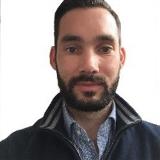
Affilogic is a privately-owned biotech company specialized in discovery and development of a novel class of protein therapeutics called Nanofitins. Since joining Affilogic in 2011, Dr. Mathieu Cinier successfully led 60+ Nanofitin generation programs for a wide range of applications, and Nanofitin-based biotherapeutics are currently being developed in collaboration with Sanofi, Takeda Pharmaceutical and other undisclosed international pharmaceutical companies. He also applied its extensive protein engineering knowledge to expand the potential of the Nanofitin technology and is now assuming the position of Scientific Director.
Charlotte H. Coles, PhD, Team Leader, GSK
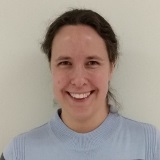
Charlotte Coles is a Team Leader at GSK, based in the Large Molecule Discovery department at the Stevenage (UK) R&D site. She leads a group focused on developing platform processes and workflows to support early-stage (pre-CMC) discovery campaigns for projects using multispecific antibody formats. Charlotte’s main background expertise is in structural and molecular biology, with prior industrial experience using structure-guided approaches to aid large molecule therapeutic design and optimisation.
Christopher Cooper, PhD, Director and Head of Protein Sciences, CHARM Therapeutics
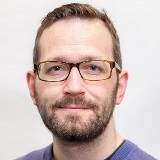
Chris joined CHARM Therapeutics, an AI-driven biotech company as Director and Head of Protein Sciences in 2022. CHARM’s research focuses on novel approaches for cancer drug discovery using protein and ligand co-folding algorithms for hard-to-drug targets. Prior to this, Chris was the Director of Protein Science at Peak Proteins, but for most of his career he studied the biochemistry and structural molecular biology of DNA repair and replication. He was a Senior Lecturer in Biological Sciences at the University of Huddersfield for 6 years and performed his postdoctoral research at the University of Oxford, working at the Structural Genomics Consortium and Sir William Dunn School of Pathology. During this period Chris was also a College Lecturer in Biochemistry at The Queen’s College, and a Junior Research Fellow at Linacre College.
Christopher R. Corbeil, PhD, Research Officer, Human Health Therapeutics, National Research Council Canada

Dr. Christopher Corbeil is a research officer at the National Research Council Canada (NRC) who specializes in the development and application of computational tools for biotherapeutic design and optimization. He is also an associate member of the McGill Biochemistry Department and teaches classes in Structure-Based Drug Design at McGill University. After receiving his PhD from McGill University, he joined the NRC as a Research Associate investigating the basics of protein-binding affinity. Following his time at the NRC he joined Chemical Computing Group as a research scientist developing tools for protein design, structure prediction, and binding affinity prediction. He then decided to leave private industry and rejoin NRC with a focus on antibody engineering. Dr. Corbeil has authored over 30 scientific articles and is the main developer of multiple software programs.
Jose Luis Corchero-Nieto, PhD, Senior Scientist, Nanobiotechnology Group, CIBER-BBN & University Autonoma de Barcelona
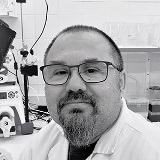
Dr. José Luis Corchero graduated in Biological Sciences (Universidad de Barcelona, 1990), and later obtained a Master Degree in Biotechnology (UB, 1993), and a PhD in Biological Sciences (UAB, 1997) in the fields of recombinant protein production, and protein folding and aggregation. He performed a post-doctoral stay (1998-2000) at the “Centers for Disease Control and Prevention” (CDC, Atlanta, USA), working in the field of development of diagnostic kits for herpes viruses. In November 2000, he incorporated to the R+D section of the company Biokit SA, where he continued to work (2000-2007) in the field of development of diagnostic kits. Since 2007, Dr. Corchero has been a senior researcher at the Networking Research Center on Bioengineering, Biomaterials and Nanomedicine (CIBER-BBN). Dr. Corchero's current research mainly deals with the production of recombinant human proteins in mammalian cells as expression system, for their use as therapeutics in the treatment of Fabry disease, and of protein-based nanoparticles as drug delivery systems.
Rebecca Croasdale-Wood, PhD, Senior Director, Augmented Biologics Discovery & Design, Biologics Engineering, Oncology, AstraZeneca

Rebecca is an innovative leader responsible for the implementation of novel and disruptive in silico technologies to increase the speed of discovery and quality of biologics therapeutics. She is an experienced antibody engineer with structural biology expertise and was co-inventor of the CrossMab technology that is now leading the way in approvals for multi-specific antibody therapeutics. She has authored 30+ patents and publications in the field of antibody engineering.
Tim Dafforn, PhD, Professor, Biotechnology, University of Birmingham
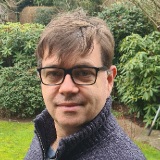
Tim Dafforn is professor of Biotechnology at the University of Birmingham. He pioneered the use of Styrene Maleic Acid Lipid Particles (SMALPs) for the production of membrane proteins. He has a strong record in collaborating with industry on drug discovery projects. Professor Dafforn also has expertise the development of Process Analytical Technology solutions for downstream bioprocess monitoring.
Rony Dahan, PhD, Principal Investigator, Immunology, Weizmann Institute of Science
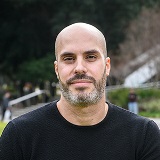
Dr. Rony Dahan is an assistant professor in the Department of Systems Immunology at the Weizmann Institute of Science. His research focuses on cancer immunity and immunotherapy, specifically enhancing immune responses against cancer through innovative antibody engineering and detailed studies of Fc?R pathways. During his postdoctoral work (2013-2017) at Rockefeller University with Prof. Jeffrey Ravetch, Dr. Dahan made critical contributions to the development of the Fc-engineered CD40 antibody, 2141-V11, now in Phase II clinical trials. Since founding his lab in 2017, he has pioneered novel immunotherapies, including bispecific antibodies and dendritic-T cell engagers, with several therapies advancing through clinical development. His work continues to shed new light on the mechanisms of action of immunotherapies, addressing key challenges in the field.
Bassil I. Dahiyat, PhD, CEO, Xencor Inc.

Bassil I. Dahiyat, Ph.D. has served as a member of our board of directors since June 2018 and as a member of our compensation committee and audit committee since September 2018. Dr. Dahiyat has served as President and Chief Executive Officer of Xencor, Inc., a biopharmaceutical company, since February 2005. Dr. Dahiyat co- founded Xencor in 1997, served as its Chief Executive Officer from 1997 to 2003 and served as its Chief Scientific Officer from 2003 to 2005. In 2005, Dr. Dahiyat was recognized as a technology pioneer by the World Economic Forum. Additionally, Dr. Dahiyat was named one of 2003’s Top 100 Young Innovators by MIT’s Technology Review magazine for his work on protein design and its development for therapeutic applications and has received awards from the American Chemical Society, the Controlled Release Society and the California Institute of Technology. Dr. Dahiyat currently serves on Xencor’s board of directors. Dr. Dahiyat holds a Ph.D. in Chemistry from the California Institute of Technology and B.S. and M.S.E. degrees in Biomedical Engineering from Johns Hopkins University.
Carmela De Santo, PhD, CRUK New Investigator Fellow, Immunology, University of Birmingham

Following a degree in Biology at the University of Padua, Carmela joined Professor Vincenzo Bronte’s group in 2002 to study for a PhD. Her studies focussed on myeloid derived suppressor cells (MDSCs), a heterogeneous grouping of myeloid lineage cells that suppress immune responses, and which are emerging as a key immunoregulatory axis, both in the context of pathogen-specific immunity, and also tumour-specific immune responses. After successfully completing her PhD, she carried out post-doctoral studies in Professor Vincenzo Cerundolo’s laboratory in the Weatherall Institute for Molecular Medicine in Oxford, in 2006, where her research again focussed on MDSCs both in cancer and virus infection, and also investigated the ability of invariant Natural Killer T cells to regulate MDSCs suppressive activity.
Charlotte M. Deane, PhD, Professor, Structural Bioinformatics, Statistics, University of Oxford; Executive Chair, Engineering and Physical Sciences Research Council (EPSRC)
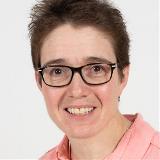
Charlotte is Professor of Structural Bioinformatics in the Department of Statistics at the University of Oxford and co-director of the Systems Approaches to Biomedical Research Centre for Doctoral Training which she founded in 2009. In January 2024, Charlotte became Executive Chair of the Engineering and Physical Sciences Research Council (EPSRC). From 2022 to 2023, Charlotte was Chief AI Officer at Exscientia, a biotech with ~450 employees, where she led its computational scientific development. She has held numerous senior roles at the University of Oxford including Head of the Department of Statistics and Deputy Head of the Mathematical, Physical and Life Sciences (MPLS) division. She was the Deputy Executive Chair of the UK’s Engineering and Physical Sciences Research Council from 2019 to 2021. She served on SAGE, the UK Government’s Scientific Advisory Group for Emergencies, during the COVID-19 pandemic, and acted as UK Research and Innovation’s COVID-19 Response Director. She was appointed Member of the Order of the British Empire (MBE) in the 2022 Birthday Honours for services to COVID-19 research. At Oxford, Charlotte leads the Oxford Protein Informatics Group (OPIG), who work on diverse problems across immunoinformatics, protein structure and small molecule drug discovery; using statistics, AI and computation to generate biological and medical insight. Her work focuses on the development of novel algorithms, tools and databases that are openly available to the community. These tools are widely used web resources and are also part of several Pharma drug discovery pipelines. Charlotte is on several advisory boards and has consulted extensively with industry. She has set up a consulting arm within her own research group as a way of promoting industrial interaction and use of the group’s software tools.
Mahendra P. Deonarain, PhD, Chief Executive & Science Officer, Antikor Biopharma Ltd.
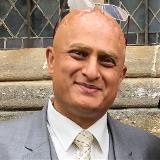
Dr Deonarain studied at Imperial College and Cambridge University where he carried out PhD research into protein engineering. From 1997-2011 Dr Deonarain was a Principle Investigator at Imperial College in Antibody Technology, which led to some novel technologies being developed commercially. Dr Deonarain now retains an honorary position. He has published over 80 papers and patents in protein/antibody engineering/conjugates. In 2014, he co-founded Antikor Biopharma where he is the CEO leading a team to develop the next-generation of antibody-fragment based ADCs
Kathrin Dienst, Field Application Scientist BioAnalytics
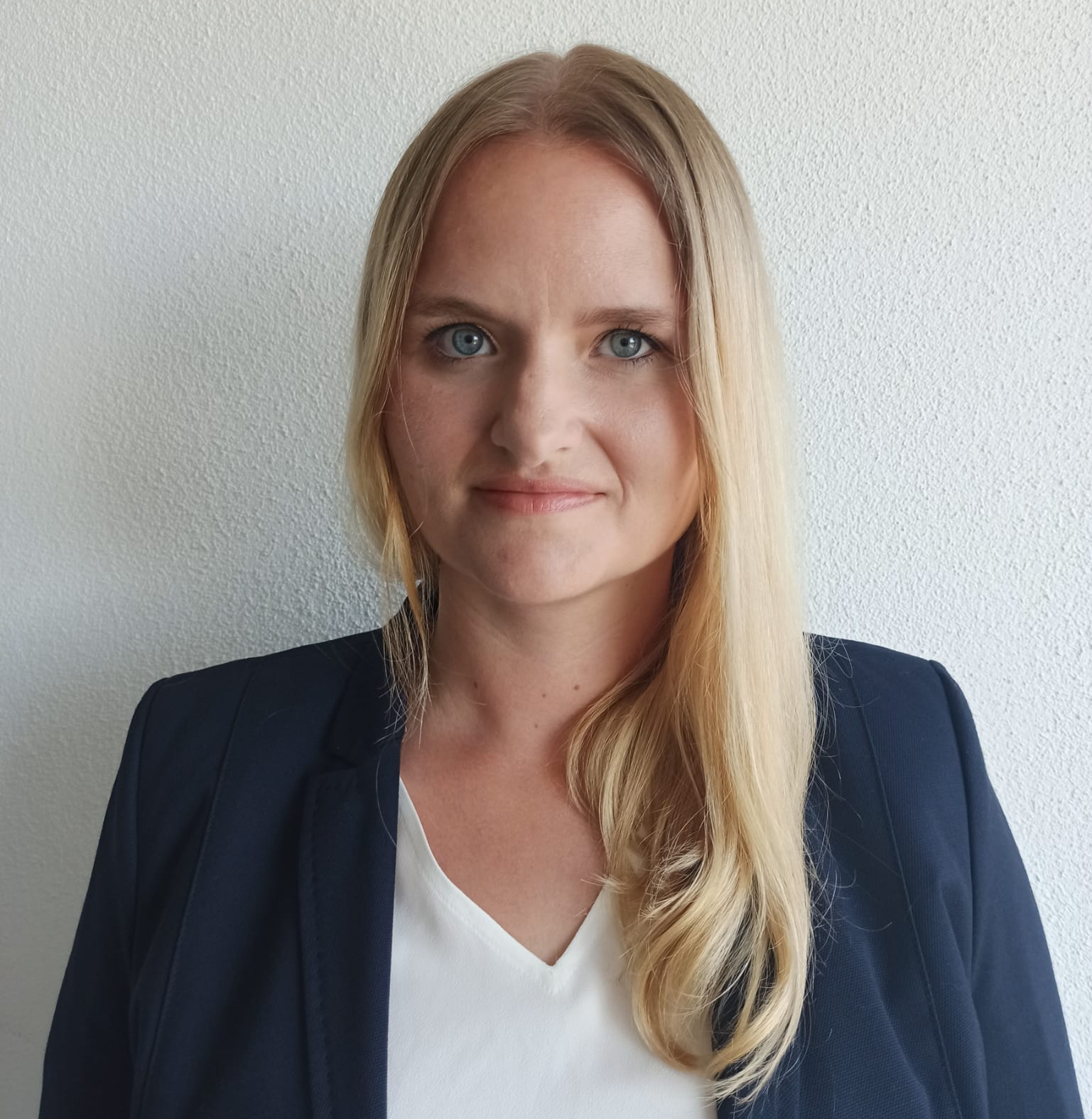
Professional Experience
Since 09/2022 Field Application Specialist for the iQue platform at Sartorius Lab Instruments GmbH & Co.KG.
04/2021 - 07/2022 Sales Manager and Field Application Scientist at Curiox Biosystems
01/2018 - 03/2021 Product Line Manager at Bucher Biotec AG, Basel, Switzerland for Cyto-Mine by Sphere Fluidics, iQue Platform by IntelliCyt, a Sartorius Brand, Wolf sorter by NanoCellect.
10/2015 - 12/2017 Field Application Scientist at Biotec AG, Basel, Switzerland for Cyto-Mine by Sphere Fluidics, iQue platform by IntelliCyt, a Sartorius Brand, Seahorse XF technology by Agilent, a.o.
Academic Education
12/2013 - 09/2015 Postdoctoral Research Fellow at Biozentrum Basel, Switzerland, Department: Molecular Microbiology, Focal Area: Infection Biology
11/2009 - 11/2013 Doctorate in the group of Prof. Dr. C. Dehio at Biozentrum Basel, Switzerland, Department: Molecular Microbiology, Focal Area: Infection Biology, Graduated with “summa cum laude”
02/2007 - 08/2007 Internship in advanced inorganic chemistry, in the group of Prof. Dr. P. Lay, University of Sydney, Sydney, Australia.
10/2004 - 10/2009 Diploma in chemistry (grade: 1.3), Philipps University Marburg, Marburg, Germany
Publications
K. Pieles & T. Glatter et al., Proteomics, 2014, 14(9):1048-52, PMID: 24677795
A.T. Pulliainen & K. Pieles et al., PNAS, 2012, 109(24):9581-6, PMID: 22635269
Achim Doerner, PhD, Scientific Director, Antibody Discovery & Protein Engineering, Merck Healthcare KGaA, Darmstadt

A biochemist by training, Achim has been designing and progressing bispecific antibodies and bispecific ADCs preclinically for over a decade, including technology development for their effective screening. Complementary interests are protein engineering and optimized screening of complex biotherapeutics via mammalian libraries in microfluidic functional screens.
Tunca Dogan, PhD, Professor, Department of Computer Science and AI Engineering, Hacettepe University, Turkey
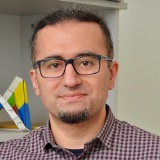
My current research in the field of bio/cheminformatics and data science can be summarized as developing novel computational methods for biomolecular sequence analysis, protein function prediction and computational drug discovery; using statistical learning, data mining and (deep) machine learning techniques and graph theory approaches. As an interdisciplinary researcher, I always try to approach biological problems from different angles, using the fundamentals and techniques generally applied in other relevant disciplines, to be able to propose novel and effective solutions to prevalent issues. My overall research philosophy is to utilize the knowledge obtained by valuable and hard-to-conduct wet-lab experiments to accurately model the biological systems in-silico, with the aim of assisting the ongoing work in biomedical research. For this, I divide my work in 3 major parts: (i) integrating complementary biological data from various open access data repositories in order to generate a bigger picture using the current bio-knowledge; (ii) developing novel in-silico methods and applying on large-scale biological data in order to estimate/predict what has been missing from the current knowledge; and (iii) further analysing the specific parts of the produced well-annotated biological data (enriched/completed with the in-silico predictions) to infer biological insight. I give emphasis on publishing the produced data via open-access data repositories where the whole research community can work on it to further our biological understanding on different subjects.
Jennifer Drew, Principal Investigator, GlaxoSmithKline
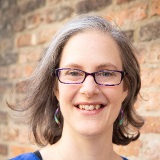
Since obtaining a BSc in Biochemistry from the University of Manchester, Jen has worked for over 20 years with antibody-based formats within GSK. Initially working on expression and purification of antibody-based molecules, then moving focus to biophysical analytical techniques including differential scanning calorimetry (DSC) and dynamic light scattering (DLS). Jen leads the team that developed and embedded the panel of in vitro assays to assess in vivo suitability of lead panels of antibody candidates within GSK.
Cyrille Dreyfus, PhD, Associate Director & Head, Antibody Engineering - Protein Sciences, Ichnos Glenmark Innovation
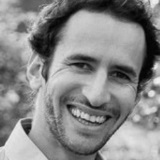
Cyrille Dreyfus is a Protein Biochemist who has more than 10 years of combined industry and academic experience in large molecule drug discovery. He holds a PhD in Protein Engineering and Structural Biology from the CEA (French Alternative Energies and Atomic Energy Commission). In 2010, Cyrille worked for 2 years on broadly neutralizing antibodies against influenza viruses at the Scripps Research Institute in the research group of Professor Ian Wilson. In 2013, he joined the Center of Immunology Pierre Fabre as a Senior Scientist working on monoclonal antibodies against key therapeutic targets in oncology. At present, Cyrille is heading the Protein Sciences group in the Antibody Discovery and Engineering Department at Ichnos Sciences (Lausanne, Switzerland). His work focuses on the preclinical development of novel multi-specific cancer immunotherapies based on immune cell engagers such as ISB 1442, a CD38xCD47 macrophage engager, and ISB 2001, a BCMAxCD38xCD3 T cell engager.
Paul Dyer, Field Application Scientist, Halo Labs
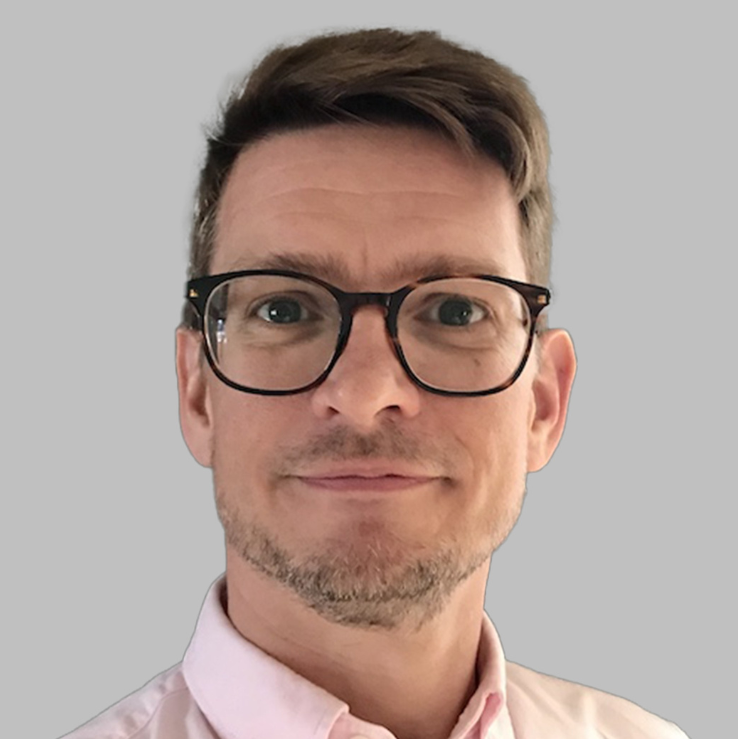
Paul Dyer obtained his PhD in Cell Biology and Drug Delivery Strategies from the University of Greenwich. Following a period in academic research, Paul joined Halo Labs as an application scientist covering UK and Europe. Building upon his extensive background in medical science, he has been focusing on the development of new applications of particle analysis within the area of biologics, in particular cell therapies, resulting in the release of a new product, the Aura® CL.
Michael R. Dyson, PhD, Vice President, Antibody Discovery & Engineering, Ichnos Glenmark Innovation
.tmb-0.jpg)
Mike Dyson is Senior Director at Ichnos Sciences responsible for the antibody discovery, optimization, screening, and characterization leading to the development of novel bi- or tri- specific immune engager therapeutics for cancer immunotherapy. He was Chief Technology Officer and co-founder at IONTAS Ltd., a therapeutic antibody discovery company where he either directly project managed or oversaw 56 antibody discovery and development projects partnered with 30 companies including 5 top 20 Pharmas. This included the development of 8 biologics (antibody or bi-specific format) to commence human clinical trials or approaching IND filing to treat auto-immune disease or cancer. Mike was previously Head of Protein Engineering at Acambis plc (acquired by Sanofi) and Project Leader at the Wellcome Trust Sanger Institute. He holds a PhD in organic synthetic chemistry from the University of Birmingham and post-docs at MIT and the Universities of Edinburgh and Cambridge. He has published 40 papers and book chapters (cited over 1800 times) and is inventor on 16 US patent and patent applications mainly focused on novel antibody therapeutics.
Takashi Ebihara, COO, GeneFrontier Corporation
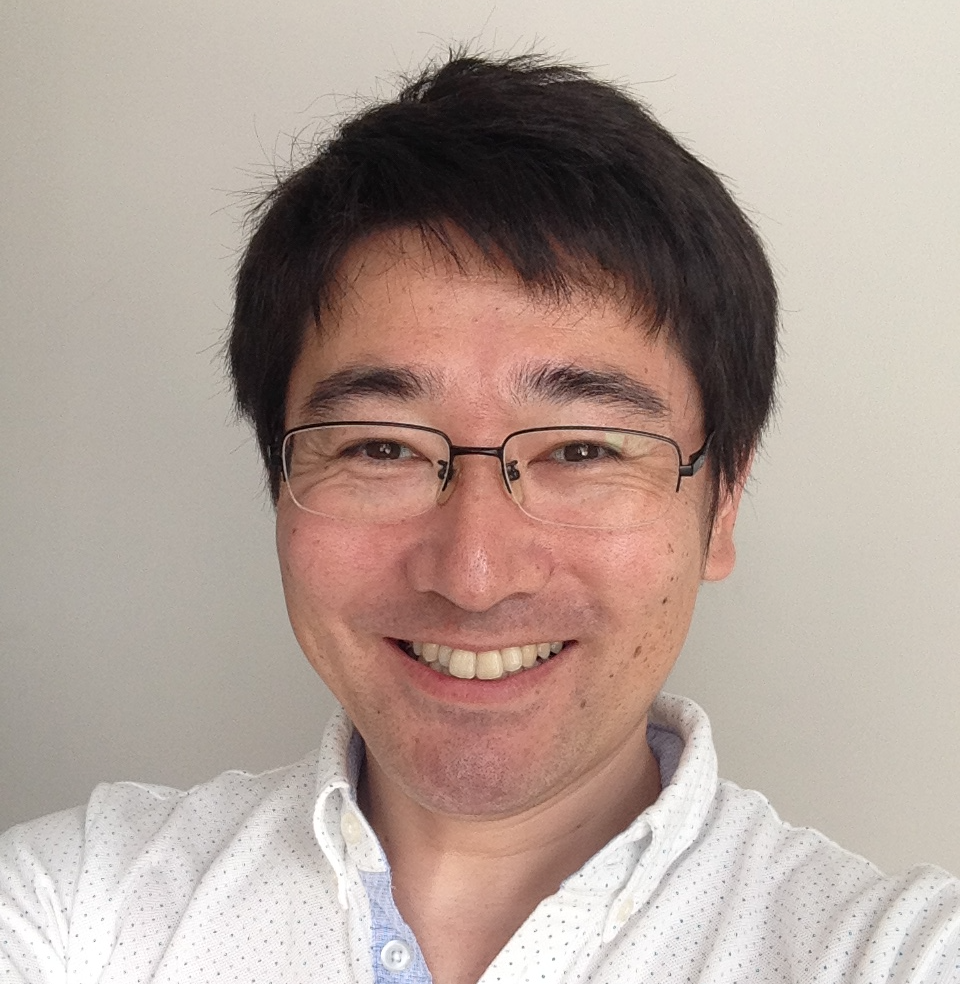
Takashi is COO of GeneFrontier Corporation (GFC) since 2010. Takashi got his PhD for the research of cell-free protein expression system at Tokyo Institute of Technology in 2000 and joined in VC in life science industry. At 2003, Takashi was involved in establishing of GFC and fully committed to business development of GFC from the beginning.
Peter Ellmark, PhD, CSO, Alligator Bioscience AB

Peter Ellmark, PhD, is Chief Scientific Officer at Alligator Bioscience and holds an associate professorship in Immunotechnology at Lund University. Dr. Ellmark has more than 20 years’ experience of developing antibodies for immunotherapy of cancer and has a strong track record of developing mono- and bispecific antibodies for tumor-directed immunotherapy of cancer, focusing on the co-stimulatory checkpoint receptors CD40 and 4-1BB.
M. Frank Erasmus, PhD, Head, Bioinformatics, Specifica, Inc.
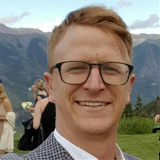
M. Frank Erasmus is the head of bioinformatics at Specifica, Inc. where he specializes in the use of next-generation sequencing technologies and software development to aid in the design of and selection from therapeutic antibody libraries. Formerly, Frank was awarded a national fellowship from the National Cancer Institute for his translational research associated with B cell precursor acute lymphoblastic leukemia conducted at the Spatiotemporal Modeling Center and Los Alamos National Labs. He brings over 13 years of experience in both biotechnology and academic settings in the development and characterization of therapeutic antibodies using theoretical modeling, bioinformatics, and experimental approaches.
Dominic Esposito, PhD, Director, Protein Sciences, Frederick National Laboratory
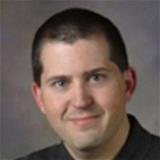
Dr. Esposito is currently the Director of the Protein Expression Laboratory (PEL) and Project Lead for the RAS Reagents Core at the Frederick National Laboratory for Cancer Research in Frederick, Maryland. The 38 employees in the PEL clone, express, and purify proteins from a variety of host organisms in support of the NCI RAS Initiative and for investigators at the National Institutes of Health. In addition, the PEL invents and develops novel technologies for improving protein expression and production, focused heavily on baculovirus expression technology and combinatorial cloning. Prior to his role as director, Dr. Esposito led the Clone Optimization Group in the PEL for nine years and was responsible for the generation of over 15,000 expression clones, 400 new expression vectors, and several technological innovations in protein expression. Dr. Esposito received his B.A. in Chemistry at La Salle University in Philadelphia, and his Ph.D. in Biochemistry in the laboratory of Dr. John Scocca at the Johns Hopkins University Bloomberg School where he studied bacteriophage site-specific recombination. Dr. Esposito then worked as a postdoctoral fellow in the laboratory of Dr. Robert Craigie at the NIDDK, where he studied the protein-DNA interactions involved in the HIV integration reaction. Prior to joining the FNL in 2001, Dr. Esposito worked for three years as a Staff Scientist in the Protein Engineering group at Life Technologies, where he helped to develop the Gateway recombinational cloning system. Dr. Esposito has published over 100 peer-reviewed manuscripts in the fields of protein expression and DNA recombination.
Andreas Evers, PhD, Associate Scientific Director, Antibody Discovery & Protein Engineering, Global Research & Development Discovery Technology, Merck Healthcare KGaA

Since October, 2020, Dr. Andreas Evers has worked computer-aided assessment and optimization on NBEs at Merck Healthcare KGgaA. He obtained his PhD in Computational Chemistry with Professor Gerhard Klebe at Philipps University of Marburg in 2000. He joined Sanofi in 2003, first working in the area of computer-aided drug design on “small molecule” projects and later on therapeutic peptides and proteins. His research activities include implementation and application of in silico and AI approaches to design new molecules with the desired target activity and developability properties.
Marina Fedorova, PhD, Scientific Investigator, Protein and Cellular Science, GSK

Dr. Marina Fedorova is a scientific investigator at GSK who works in the Cellular Technology team (Protein and Cellular Science). A chemist by training, Marina has worked as a researcher at the MRC Immunochemistry Unit at Oxford University and MRC LMCB at University College London. After receiving her PhD in Chemical biology from Imperial College; she has carried out her scientific career at LifeArc and Orchard Therapeutics as a cell biologist and analytical scientist. She then joined GSK with a focus on cellular technology and customisable cell line generation.
Noelia Ferruz Capapey, PhD, Group Leader, AI for Protein Design Group, Center for Genomic Regulation (CRG)
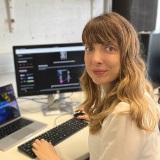
I am a chemist with a PhD in Computational Biophysics. After a short stay at Pfizer (Boston), I joined Professor Höcker's lab (Bayreuth, Germany) as a postdoc, where I worked on developing computational methods for protein design. I'm currently a Group Leader at the Institute of Molecular Biology of Barcelona. My group focuses on the implementation of generative AI methods for protein design. I believe protein design has the potential to change the world we live in, and AI is at the core of this revolution.
Sarel J. Fleishman, PhD, Associate Professor, Biomolecular Sciences, Weizmann Institute of Science; Chief Scientist, Scala Biodesign
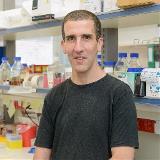
Sarel Fleishman is an associate professor at the Weizmann Institute of Science, where his research team develops a computational protein-design methodology to address challenges in biochemistry and protein engineering. As a postdoc with David Baker in Seattle (2007-2011), Sarel developed the first accurate methods for designing protein binders, culminating in the design of broad-specificity influenza inhibitors. At the Weizmann Institute (2011-), his team developed protein design methods to the level of accuracy and reliability required to design large and complex proteins such as enzymes, antibodies, and vaccine immunogens - a protein that was designed in the Fleishman lab has recently been approved for mass production as a vaccine for malaria. The team recently developed a fully automated method, called PROSS, for dramatically improving the stability and expressibility of recalcitrant proteins and several design methods for improving affinity, specificity, and catalytic rates in antibodies and enzymes. Current focuses include developing methods for designing large repertoires comprising millions of enzymes or antibodies for one-shot isolation of highly active, specific, and stable binders, inhibitors, or enzymes. Among Sarel’s academic awards were the Clore Ph.D. Fellowship (2003-2006), the Science Magazine award for a young molecular biologist (2008), a postdoctoral fellowship (2006-2009) and a career-development award (2012-2015) from the Human Frontier Science Program, European Research Council Starting and Consolidator Grants (ongoing), the Alon Fellowship, the Henri Gutwirth Prize, and the Weizmann Scientific Council Award.
Benjamin Fode, eleva GmbH

Benjamin studied plant physiology and earned his doctoral degree at the Georg-August University of Göttingen. He worked as a scientist at the Great Lakes Bioenergy Research Center in East Lansing, Michigan, before joining Eleva in 2011. Today, Benjamin is heading Eleva's Genetic Engineering department and is therefore responsible for advancing the moss expression system. His team focuses on optimizing processes like molecular biology, transient moss expression and cell banking.
Rachel Fong, Director of Sales & Alliances, Integral Molecular

Rachel Fong is the Director of Sales and Alliances at Integral Molecular, with over 10 years of experience at the company. Rachel manages relationships with customers, collaborators, and partners for MPA projects. As a founding member of the scientific team that launched this platform, she brings a unique perspective that helps guide partners from initial discussions to successful project completion. Rachel joined Integral Molecular in 2010 and is a co-author on over a dozen publications.
Elisa Fontana, MD, PhD, Oncologist and Medical Director, Sarah Cannon Research Institute UK
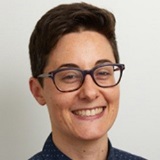
Dr Elisa Fontana, MD, PhD is the Hospital Medical Director of the Sarah Cannon Research Institute in London, UK (part of HCA International and ESMO Designated Centre of Oncology and Palliative Care). She is Principal Investigator for over 20 first-in-humans to late phase clinical trials and oversees a portfolio of more than 70 active clinical trials and translational studies. She graduated from the University of Parma, Italy in 2008 and completed her specialisation in Medical Oncology in 2014. She worked as sub-investigator in the gastrointestinal and drug development clinical trial units at The Royal Marsden Hospital, UK (2014-2019). She was awarded a PhD in colorectal cancer and biomarker assays development at the University of London, Institute of Cancer Research in 2019; she received the Chairman’s Prize for outstanding PhD. She successfully completed an entrepreneurial training programme for early career researchers aiming to translate research into clinical practice. She served as co-Chair of the Adolescent and Young Adult Gastrointestinal Cancer Task Force at the European Organisation for Research and Treatment of Cancer (EORTC) (2019-2020). She is the current secretary of the EORTC Gastrointestinal Tract cancer group (2021-2024 mandate). She has received multiple academic funding as lead applicant and over 10 ESMO and ASCO Merit Awards for conference presentations; she has published over 100 peer-reviewed articles, abstracts and book chapters.
Agnete Fredriksen, PhD, Chief Business Officer & Co-Founder, Nykode Therapeutics

Agnete B. Fredriksen is Co-founder, President and CSO of Vaccibody AS. She joined Vaccibody as CSO in 2007, where she has been responsible for moving innovative immunotherapy from idea to clinical development with several programs in the pipeline with a major focus on infectious diseases and cancer, including cancer neoantigen vaccines. She has more than 17 years of experience from early-stage biotech and commercialization. She is an inventor on several patents. She is a board member for Enabling Technologies of NRC. Agnete received her Ph.D. from Institute of Immunology, Rikshospitalet Medical Center in Oslo, where she was awarded with the King’s Gold Medal for her thesis.
Björn L. Frendeus, PhD, CSO, BioInvent International AB
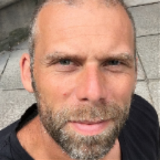
Björn Frendéus is the CSO of BioInvent, a Swedish Biotech developing antibody-based treatments for cancer immunotherapy. Björn got his PhD studying innate immune responses to microbial infection. Over the past decades, he has developed a strong interest in understanding the complex biology of antibodies in relation to their targets, and applying his knowledge to develop better antibody-based medicines. Björn’s team conceived and developed the F.I.R.S.T platform from which BioInvent’s current pipeline has emerged. This includes the Company’s proprietary clinical-stage anti-FcgRIIB (BI-1206 and BI-1607) and anti-TNFR2 programs (BI-1808), BT-001 - a clinical-stage oncovirally encoded Treg depleting anti-CTLA-4 antibody co-developed with French vaccine company Transgene, and F.I.R.S.T TAM that BioInvent recently partnered with Pfizer on to develop novel antibodies and targets to tumor-associated myeloid cells with the aim to overcome resistance in the tumor microenvironment. BioInvent is closely collaborating on several of its programs with the Cancer Sciences Division in Southampton, UK, where Björn is a visiting professor. Björn chairs the Swedish Foundation for Strategic Research (SSF)’s expert review committee on Infection Biology.
Per-Ola Freskgard, PhD, Distinguished Scientist, BioArctic AB
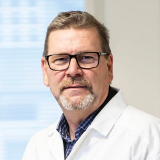
Per-Ola Freskgård is Vice President Science & Technology at BioArctic AB and a member of the Research & Development Leadership Team. Per-Ola previously served as Vice Director & Distinguished Scientist within the Roche Neuroscience Discovery organization in Switzerland, responsible for preclinical development of the Brain Shuttle delivery technology of biologics, which is now in clinical testing. Prior to that, he held a Section Head position in early and late discovery at AstraZeneca within the Neuroscience area and was a member of the Technology Research Review Committee within the Medimmune and AstraZeneca organizations. Before joining AstraZeneca, Per-Ola served as Vice President and a member of the Executive Management Team at Nuevolution A/S and a co-inventor of the Chemetics technology. Prior to this, Per-Ola was a Project Manager at Maxygen responsible for research programs of antibody mimetics and a co-inventor of the Maxybody concept. Prior to that, Per-Ola was Head of the Discovery Research Department in the therapeutics division at Novo Nordisk A/S. Per-Ola conducted his post-doctoral fellowship in Professor Frances Arnold’s lab at the California Institute of Technology. He holds a PhD in Protein Biochemistry from Linköping University, Sweden. He authored and co-authored more than 80 peer-reviewed publications and patent applications.
Nathan Frey, PhD, Senior Machine Learning Scientist, Prescient Design, a Genentech Company
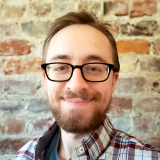
Nathan is a Senior Machine Learning Scientist and Group Leader at Prescient Design, Genentech. At Prescient, his group develops and applies machine learning methods to molecular discovery and design. Previously, Nathan was a Postdoctoral Associate at MIT working with the Lincoln Lab Supercomputing and AI groups. He was a National Defense Science & Engineering Graduate Fellow at the University of Pennsylvania, where he obtained his PhD in Materials Science & Engineering. During graduate school, Nathan was an affiliate scientist with the Materials Project at Berkeley Lab.
Simone Friedrich, PhD, Head, Antibody Discovery & Development, iOmx Therapeutics
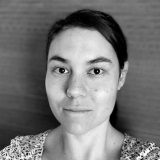
Simone holds a degree in Biotechnology from the WWU Münster and completed her PhD studies at the Institut for Clinical Neuroimmunology at the LMU Munich studying the role of expanded antibody species in mutliple scleorsis patients before joining iOmx in 2016. She held different technical roles at iOmx with focus on protein science throughout her tenure at iOmx and is responsible for generation and technical advancement of binders to iOmx proprietary targets in her current function as Head of Antibody Discovery and Development.
Jeremy Fry, Director of Sales, ProImmune Ltd.
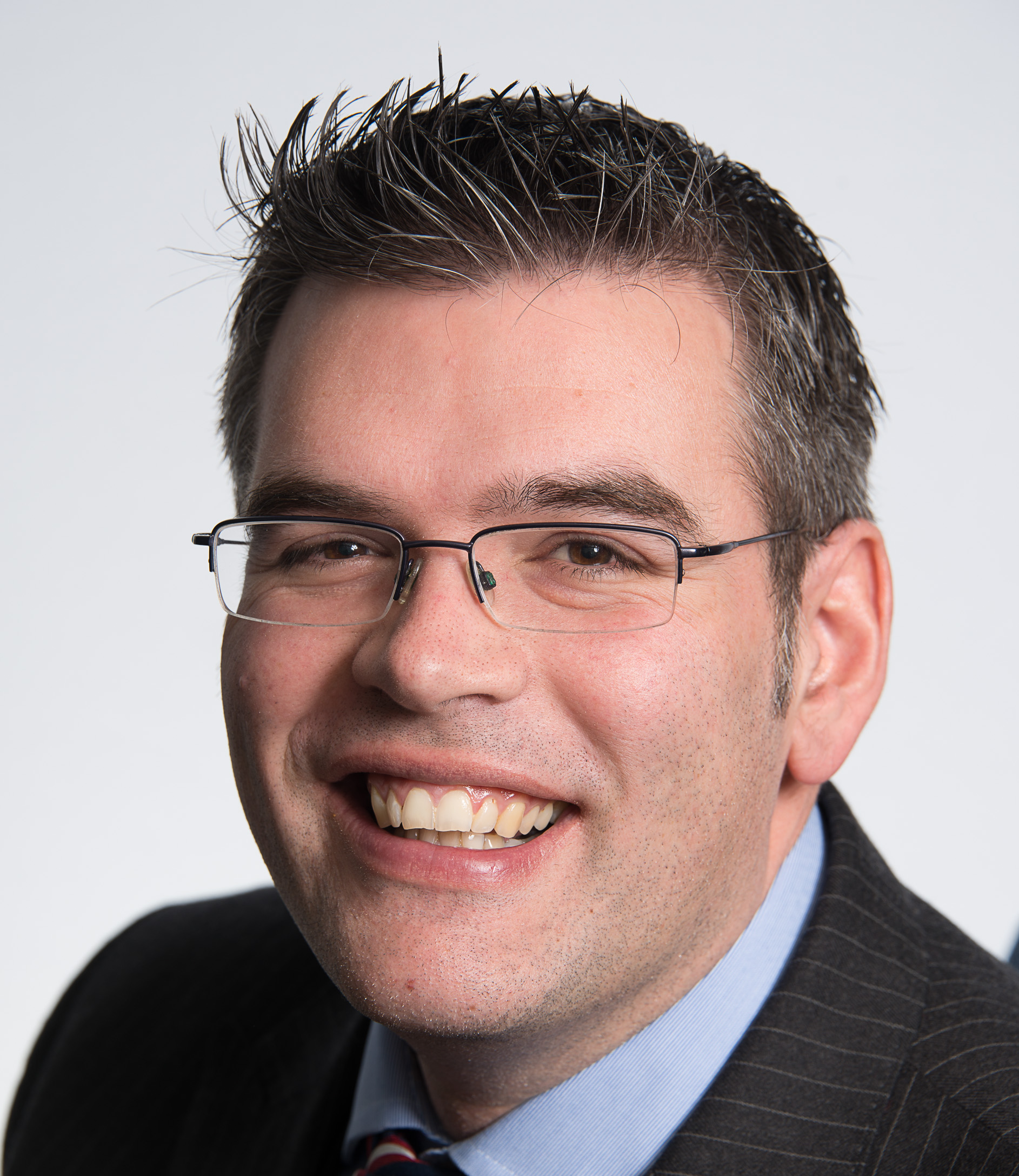
Jeremy Fry earned his D.Phil. from the University of Oxford, where he conducted research in the Nuffield Department of Surgery under Professor Kathryn Wood. His research focused on developing gene therapy strategies to induce immunological tolerance in transplant recipients. Following a post-doctoral position in the same lab, Jeremy joined the R&D team at ProImmune as a Research Scientist. During his tenure, he played a pivotal role in inventing the MHC class I Pentamer technology, which is used for tracking antigen-specific CD8 T cells and has been cited in several thousand references.
Jeremy later transitioned to a hybrid scientific and commercial role at ProImmune. For the past 23 years, he has served as the Director of Sales, based in Oxford, UK and leading a global team of experts. His work has centred on developing and implementing innovative technologies that significantly enhance our understanding of both desired and undesired immune responses. A critical aspect of his efforts has been providing best-in-class assays to address immunogenicity risk for biotherapeutics, including adapting to rapidly evolving regulatory requirements in the field of complex peptides to ensure robust and accurate data for identifying potential risks.
Cécile Galmiche, PhD, Senior Scientist, Antibody Discovery, UCB
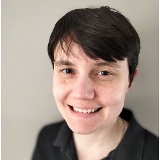
After completing a Master’s Degree in biology and chemistry, I pursued my PhD at the University of Montpellier, where I developed an antibody screening tool combining bacterial production and click chemistry. In 2017, I joined UCB and have led successful antibody discovery and engineering campaigns against multiple target classes using both B cell cultures and display technologies. More recently, my focus has shifted towards using naïve phage and yeast display libraries, as well as exploring alternative antibody repertoires, including llamas and cows.
Shyra J. Gardai, PhD, CSO, EpiBiologics
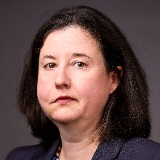
I am the Chief Scientific Officer at EpiBiologics. I bring over 20 years of experience as an executive manager leading innovative discovery research groups focused on turning novel ideas into clinical stage therapies to battle cancer, autoimmune, and neurodegenerative diseases. During my time at Elan Pharmaceuticals and Seagen, I headed the discovery and delivery of over 6 phase 1 clinical candidates that integrated novel antibody, chemistry, and protein engineering technologies. Most recently I was the Vice President of Therapeutic Discovery Research at Seagen where she led a 60+ member team comprised of chemists, protein engineers, immunologist and cancer biologist focused on discovering new treatments for cancer patients. I trained as an Immunologist at the University of Colorado and went on to complete a postdoctoral research fellowship in the Department of Immunology at National Jewish Health.
Melissa Geddie, PhD, Vice President Drug Discovery, Diagonal Therapeutics
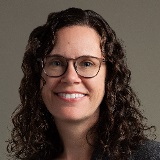
Melissa is the Vice President of Drug Discovery at Diagonal Therapeutics. She has over 15 years of industry experience in the discovery and development of innovative antibody drugs. Melissa has also worked at Biogen, Kiniksa Pharmaceuticals, and Merrimack Pharmaceuticals in their early discovery groups. She was a postdoctoral fellow at the Whitehead Institute and received her PhD in Biochemistry from Emory University.
Bernhard H. Geierstanger, PhD, CTO, FireflyBio
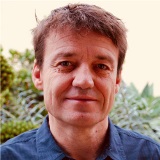
Dr. Geierstanger is an experienced scientific leader with a demonstrated history of strong leadership, creativity and accomplishments in the biotechnology industry. He is skilled in guiding and motivating diverse and interdisciplinary teams engaged in drug discovery and platform & technology development. He has a passion to improve the lives of patients.
Nimish Gera, PhD, Vice President, Biologics, Mythic Therapeutics
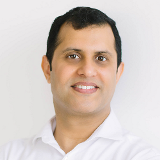
Nimish Gera is the Vice President of Biologics at Mythic Therapeutics leading multiple projects to engineer and develop novel antibody and antibody-based drugs in oncology and immuno-oncology. Prior to Mythic, Nimish has over fifteen years of experience in antibody and protein engineering with five years leading bispecific antibody programs in several disease areas such as rare diseases, oncology, and immunology at Alexion Pharmaceuticals and Oncobiologics. Nimish received his PhD degree in Chemical and Biomolecular Engineering from North Carolina State University and a B.Tech degree in Chemical Engineering from Indian Institute of Technology, Guwahati.
Tariq Ghayur, PhD, Tariq Ghayur Consulting, LLC and Entrepreneur in Residence, FairJourney Biologics
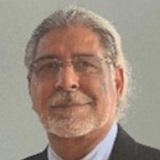
Dr. Ghayur retired from AbbVie (July 2021) and works as an independent consultant. He has 30+ years’ experience leading multi-disciplinary and cross-therapeutic area Biologics discovery programs and developing novel Biologics platforms. Several biologics programs resulted in clinical development candidates. Dr. Ghayur led the team that pioneered the discovery and development of the Dual - variable - Domain -Ig (DVD-Ig) and other multi-specific platforms. Dr. Ghayur also led the team that defined the uptake, intracellular trafficking, and lysosomal degradation of anti-TNF mAbs/DVD-Ig, resulting in the concept of anti-TNF-ADC (next-Gen anti-TNF). In addition, Dr. Ghayur proposed and helped implement several corporate-wide (Abbott & AbbVie) initiatives to foster cross-functional/cross-TA collaborations to bring forward innovative concepts/programs.
Greta Giordano Attianese, PhD, Research Associate, Department of Oncology, Ludwig Institute for Cancer Research, University of Lausanne
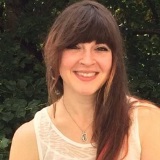
I did my Master’s in Medical Biotechnology in Milan before undertaking a one-year internship at Texas Children’s hospital to learn about CAR T cell technologies. On returning to Italy, I pursued a PhD in Immunology. I undertook my postdoctoral studies in Switzerland, in genomics and epigenetics, after which I took up my position as Research associate within the Hi-TIDe.
Arnaud Goepfert, PhD, Director, Protein Sciences, Bright Peak Therapeutics
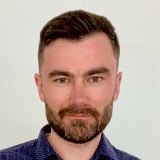
Structural biologist and protein engineer by training with 11 years of experience in small molecule and biologics drug discovery within large pharmaceutical company and biotech. Having completed my PhD at the Biozentrum, University of Basel, I moved to the Novartis Institutes for Biomedical Research as a Postdoctoral fellow to decipher the structural basis of the IL-17 cytokine signaling and contribute to the development of small molecules and biologics to block its pathway. I then moved to the Biotech sector, first at Galapagos, where I applied structure-based approaches for the design of small molecule drugs targeting autoimmune and inflammatory diseases, and then, at Ichnos Glenmark Innovation where I contributed to the discovery of bispecific antibodies for cancer immunotherapy. Since March 2022, I am heading the Protein Sciences team at Bright Peak Therapeutics with a mission to engineer novel cytokine and immunocytokine therapies for the treatment of cancer and autoimmune diseases.
Steffen H.J. Goletz, PhD, Full Professor, Deputy Head, Vice Director, Biotechnology & Biomedicine, Danish Technical University

Steffen Goletz, PhD, Professor, Head of RG Biotherapeutic Glycoengineering & Immunology, DTU Bioengineering, Technical University of Denmark. Focus on novel bi- and multispecific antibody and cell-based therapeutics in immunooncology and infectious diseases. After early career in academic research, e.g. MDC in Berlin and MRC in Cambridge, SG founded, lead and matured Biotech companies successfully as CEO and CSO over >17 years before joining DTU as professor, Deputy Head of the Department and Head of Innovation & Entrepreneurship. Extensive experience in Strategic & Corporate Development, Investor Financing & Licensing, R&D, patenting and GMP manufacturing, incl. Early Research & Discovery, Preclinical Development, Process Development, Toxicology of Biopharmaceuticals, and Clinical Development and from FIM to larger PhIIb Studies. Heading R&D of biotherapeutic antibodies and proteins, complex antibody engineering, phage display, cellular and molecular glycoengineering, mammalian production cell system engineering, USP and DSP production process development. Heading GMP-production, preclinical and clinical development.
Patrícia Gomes-Alves, PhD, Lab Head, Animal Cell Technology Unit, Instituto de Biologia Experimental Tecnologica (iBET)

Patrícia Gomes-Alves has been a lab head at the Animal Cell Technology Unit of iBET’s Health & Pharma Division since 2018. In 2009, P Gomes-Alves finished her PhD in Biology from ITQB-NOVA, in collaboration with the Instituto Nacional de Saúde's Dr. Ricardo Jorge, developing research in the area of proteomics/mass spectrometry tools and biomarker discovery in cystic fibrosis. She did part of her PhD studies at C Boyd’s Lab, Western General Hospital, University of Edinburgh (UK), and JP Albar’s Lab, Universidad Autónoma de Madrid (Spain). In May 2010, she joined a biotechnology SME, TheraProteins, to work as Director of Development, being in charge of the development of biotechnological products, namely oligosaccharide reference standards. In 2011, she joined the Animal Cell Technology Unit @iBET as a Senior Scientist at the Cell Bioprocesses Lab, and in 2013, took over the scientific coordination of the Mass Spectrometry Unit (UniMS) at iBET/ITQB-NOVA. In 2018, became a lab head at the Animal Cell Technology Unit@iBET. Dr. Gomes-Alves's research interests cover the areas of bioprocessing, -omics tools, and mass spectrometry (MS). Her projects have focused on the development and implementation of MS-based workflows to characterize and streamline bioprocesses and resulting cell products. Dr. Gomes-Alves authored 53 manuscripts and 2 book chapters, receiving a total of 825 citations (h-index 15), was also responsible for the supervision of 2 PhD students (theses defended in 2018 and 2022), 5 MSc students, and participated in several publicly funded research projects (FCT and EC), and coordinated several R&D projects with the biopharma industry.
Elena Gonzalo Gil, Associate Director, Pre-Clinical Services • In Vivo Services, Pre Clinical Services In Vivo Services, The Jackson Laboratory
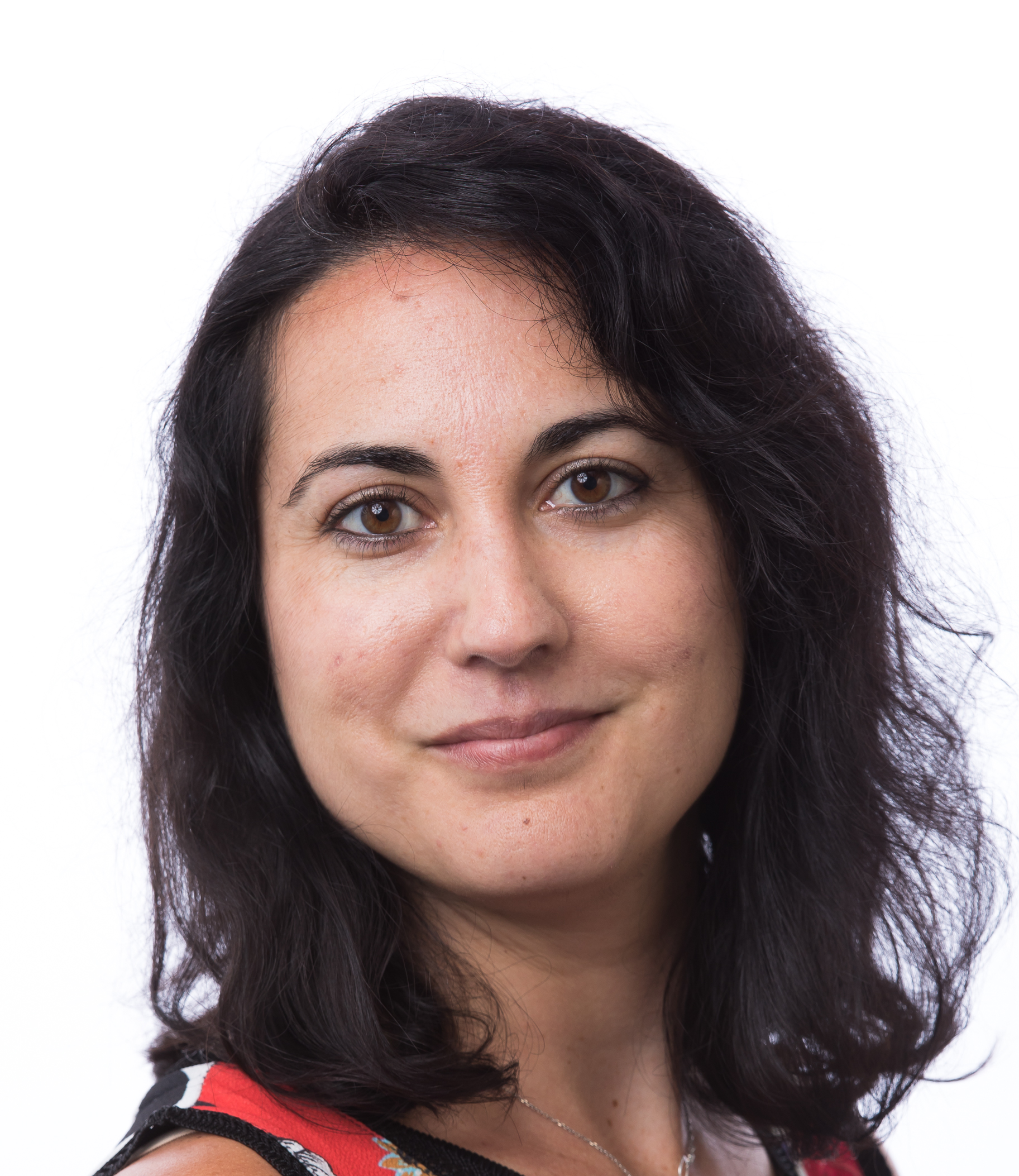
Immunologist with extensive experience in Autoimmune and Inflammatory Disorders, Dr. Gonzalo-Gil supports JAX Preclinical services to characterize mouse models for Autoimmunity and Rare Diseases, and to offer support to Academics and Pharma Biotech to evaluate the in vivo stability and efficacy of new therapeutic antibodies using JAX FcRn mouse models
Amy Gorman, PhD Student, Chemistry, University of Manchester

Amy Gorman is a final year PhD student at the University of Manchester, researching the behaviour of lipopolysaccharide in biopharmaceutical formulations. Her research interests include developing novel fluorination methodologies and utilising 19F NMR and light scattering techniques to investigate aggregation behaviour in formulations.
Benedikt Greck, Graduate Student, Large Molecular Discovery & Research Data Science, Amgen Research Munich GmbH
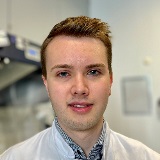
I studied pharmacy at the LMU in Munich, followed by getting into the biotech world of Amgen. After two years at the process development department, I took the opportunity to get deeper insight through research on my doctoral thesis in the cellular sciences team there.
Peyton Greenside, PhD, Co-Founder & CSO, BigHat Biosciences
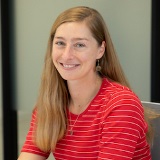
Peyton Greenside is the co-founder and CSO of BigHat Biosciences, an early-stage Bay Area startup developing an AI-first experimental platform to radically reduce the difficulty of designing antibodies and other therapeutic proteins. Before BigHat, Peyton was an inaugural Schmidt Science Fellow, a computational biologist at the Broad Institute, a scientific founder of Valis, and holds a PhD from Stanford University, an MPhil in Computational Biology from Cambridge University, and a BA in Applied Math from Harvard.
Amanda Grimm, Sr Segment Marketing Mgr, Antibody Drug Discovery & IVD, GenScript USA Inc
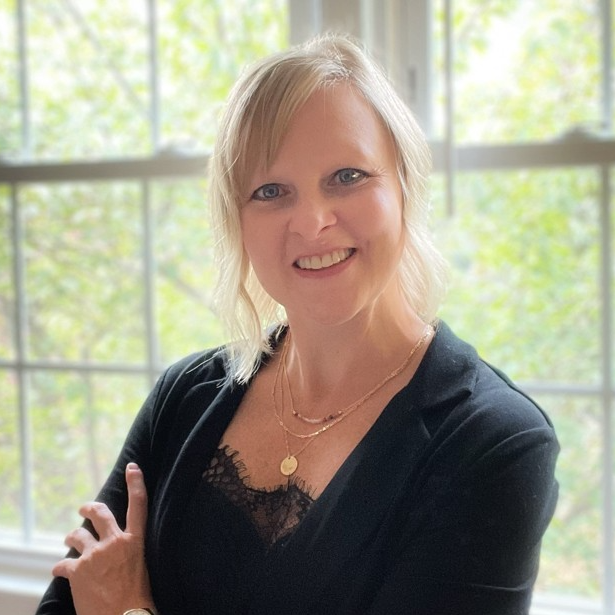
Amanda joined GenScript in 2021 and is the senior marketing manager for GenScript's antibody drug discovery portfolio. Her previous work experience includes immunopathology research of animal diseases, immunoassay development for research and commercialized use, immunoassay manufacturing and licensure, and product management of automation technology and diagnostics. In her current role, Amanda oversees portfolio education, marketing campaign management, and provides sales and distribution support.
Amanda has two Bachelor of Science degrees, in Microbiology and Biochemistry, and a Professional Science Masters (PSM) from Washington State University.
Maria Groves, PhD, Director and Head of the Antibody Alliance Laboratory, AstraZeneca

Maria is an industry recognized expert and leader in antibody display technologies and protein engineering and has >20 years of experience in this field. Maria has worked in Academia, Biotech and Biopharmaceutical roles and has diverse knowledge base which spans from molecular biology through to large scale protein production. As a project leader, she has also successfully led antibody therapeutics from research phase into clinical trials. As Laboratory Head for the CRUK AstraZeneca Antibody Alliance, she collaborates with CRUK and the academic community to deliver a portfolio which spans different types of cancer with mAbs carrying antagonistic, Immuno-oncology, agonistic and ADC mechanisms of action. The Alliance team are working to get the best possible outcome for therapeutic and diagnostic programmes with the long-term goal of benefiting cancer patients.
Jijie Gu, President of Global Biologics Research & CSO, WuXi Biologics
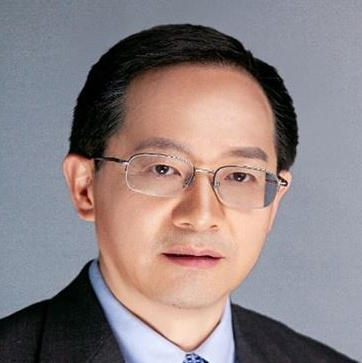
Dr. Jijie Gu is the President of Global Biologics Research and Chief Scientific Officer at WuXi Biologics, leading the expansion of biologics discovery services and driving innovations in biologics drug technologies. He earned his Ph.D. in Molecular Biology and Biochemistry from Peking Union Medical School, followed by postdoctoral training at Harvard Medical School and Harvard School of Public Health. With over 20 years of pharmaceutical industry experience, Dr. Gu has made significant contributions in target discovery, antibody generation, antibody & protein engineering, and preclinical development. Additionally, he has been instrumental in developing new modality platforms, including TCRs, ADCs, bispecific and multispecific antibodies, and TCEs. Dr. Gu has successfully led projects across oncology, immunology, neuroscience and other therapeutic areas, with a proven track record of advancing multiple NBEs into clinical development. He is a co-inventor on over 20 U.S. patents and serves on the editorial boards of mAbs and Antibody Therapeutics.
Claes Gustafsson, Chief Commercial Officer & Co Founder, ATUM
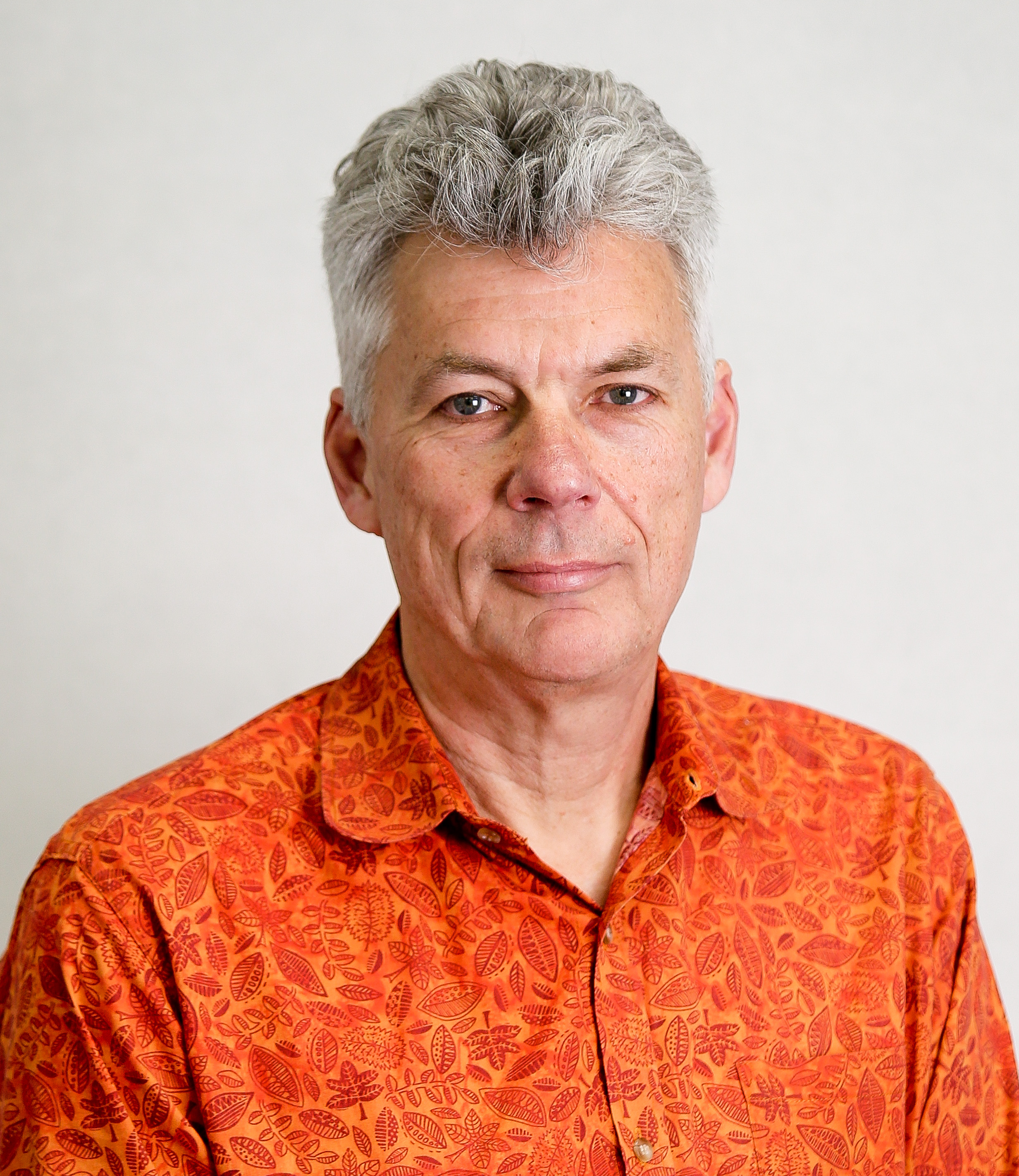
As ATUM’s Co-Founder and CCO, Dr. Gustafsson oversees most of the company’s external communications. Prior to co-founding ATUM, Gustafsson was Scientist and later Manager at Maxygen Inc., where he led, managed and collaborated with key strategic teams for more than five years. He also held a Scientist position at Kosan Biosciences, as well as a number of research, teaching, and post-doctoral positions at UCs Santa Cruz and San Francisco, and at University of Umeå. He holds 43 issued U.S. patents and has published >40 scientific papers. Gustafsson received his Ph.D. in Molecular Biology/Biochemistry from the University of Umeå, Sweden (Heja Löven) where he studied translation under Prof Glenn Björk.
Benjamin J. Hackel, PhD, Professor, Chemical Engineering & Materials Science, University of Minnesota

Ben Hackel is a Professor of Chemical Engineering and Materials Science at the University of Minnesota. He earned degrees in chemical engineering from the University of Wisconsin (B.S., advised by Eric Shusta) and MIT (PhD, advised by Dane Wittrup) and performed postdoctoral research in the radiology department at Stanford University (Sam Gambhir). Since its inception, the Hackel lab has applied protein engineering technologies to develop physiological molecular targeting agents for molecular diagnostics and targeted therapy, with a focus on oncology and infectious disease.
Supriyadi Hafiz, Senior Scientist, Liquid Formulation R&D, Merck Life Science KGaA

Supriyadi Hafiz, M.Sc., Senior Scientist Formulation, Liquid Formulation R&D, Active & Formulation in the Process Solutions, Life science division of Merck KGaA, Darmstadt, Germany is with the company for 8 years, working in development of excipients for downstream processing and protein final formulations. Hafiz has a BS in Biotechnology from Esslingen University Applied Sciences and a MS in Biosystem Technology from Darmstadt University of Applied Sciences.
Urs B. Hagemann, PhD, Head, Targeted Radiopharmaceuticals, Research & Early Development Oncology, Bayer AG

Dr. Urs Hagemann has 12 years of experience in the field of Targeted Radiotherapy, contributing to the establishment of the Targeted Alpha Therapy platform at Bayer. He joined Bayer in Berlin in 2017, advancing TRT projects from research into clinical development. Urs Hagemann started his career in a biotech company (Affitech, Oslo/Norway 2008 - 2012) before joining Algeta (Oslo/Norway), which was subsequently acquired by Bayer. Since April 2022, he is an official group head within Oncology research at Bayer and as such is responsible for the TRT research pipeline. Dr. Urs Hagemann has a background in molecular biology and holds a PhD degree within protein engineering from the University of Freiburg/Germany.
Mojtaba Haghighatlari, PhD, Senior Machine Learning Scientist, Pfizer Inc.
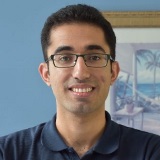
Mojtaba is a senior machine learning (ML) scientist at Pfizer, conducting data-driven research in life sciences. Prior to Pfizer, he developed ML models and Python libraries at the University of California, Berkeley, and SUNY Buffalo with a focus on computational chemistry and protein engineering. His research interests include developing ML solutions to accelerate virtual screening of molecules, ab initio molecular dynamics simulation, and biotherapeutic discovery. Mojtaba received software fellowship from the Molecular Sciences Software Institute in 2018. His heart is always with open-source software solutions and FAIR data for molecular science research.
Daniel Heinzelmann, Process Expert, Cell Line Development, Boehringer Ingelheim Pharma GmbH & Co. KG

After completing his degree in Pharmaceutical Biotechnology, Daniel joined Boehringer Ingelheim in the Quality Control Clinical Supply & Transfer Group. He quickly transitioned to his current role as a Process Expert in Cell Line Development (CLD). In the CLD group, Daniel is responsible for project coordination and is leading technology innovation projects focusing on advancing the generation and characterization of monoclonal manufacturing cell lines. Daniel's expertise extends to cell line development and genetic cell line characterization, including vector development, cell line engineering, and next-generation sequencing.
Anette Henriksen, PhD, Principal Scientist, Biophysics and Injectable Formulation, Novo Nordisk AS

Principal scientist in Global Research Technology, Novo Nordisk A/S. Focused on optimization of biophysical properties of industrial enzymes and proteins-specially formulation and developability optimization of biopharmaceuticals.
Sophia Hober, PhD, Professor, School of Biotechnology, KTH Royal Institute of Technology
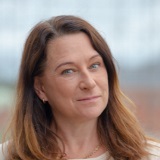
Sophia Hober is Professor of Molecular Biotechnology at KTH, Stockholm, Sweden. The focus of her current research group is development of predictable and robust systems for protein purification and detection by protein design and various selection methodologies. Her key scientific achievements include design and development of gene fusion systems for selective ion-exchange purification and improvements of the alkaline tolerance of protein A for industrial purification of IgG (currently a product sold by GE-Health care). Also, a novel ligand for affinity purification of proteins has been developed that displays a calcium dependent binding, enabling mild elution from the column. Moreover, small bispecific protein domains with ability to strongly and selectively bind to two different proteins recently have been developed for use in diagnostic and therapeutic applications.
Philipp Holliger, PhD, Program Leader, Joint Head of Protein & Nucleic Acid Chemistry (PNAC) Division, MRC Laboratory of Molecular Biology, Cambridge, UK
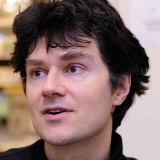
Philipp Holliger is a Program Leader at the MRC Laboratory of Molecular Biology (LMB) in Cambridge, UK. Phil graduated from ETH Zürich and moved to the lab of Nobel Laureate Sir Greg Winter at the Cambridge Centre for Protein Engineering, for his PhD and postdoctoral studies in antibody engineering, before joining LMB as a program leader. Research in his group spans the fields of chemical biology, synthetic biology, and in vitro evolution and has been published in major journals (Nature, Science, Cell, etc.) as well as leading to numerous patents. His work, describing a range of novel synthetic genetic polymers (XNAs) has been featured in Scientific American’s 10 World-Changing Ideas. He is a member of EMBO, a founder director of the start-up company Sortera Bio Ltd and a consultant to several successful biotech companies including Astra Zeneca, Illumina, and GSK.
Lucy Holt, PhD, Director, Large Molecule Discovery, GSK
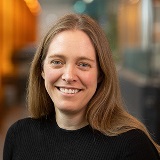
I have more than 20 years of experience in drug discovery. Currently I lead the Antibody Protein Science team within GSK's Large Molecule Discovery department. We have accountability for production and biophysical characterization of antibodies and other large molecules throughout the discovery process. Previous experience includes leading a multidisciplinary team to embed automation and in silico tools to accelerate GSK's Biopharm Drug Discovery process and also 6 years at Biotech company, Domantis.
Tomoyuki Igawa, PhD, Vice President, Discovery Research Division, Chugai Pharmaceutical Co.,Ltd

Tomoyuki Igawa, Ph.D., graduated and was awarded Ph.D. from the University of Tokyo. Dr. Igawa started his career at Chugai Pharmaceutical, a member of the Roche group, and has led the effort to develop novel antibody engineering technologies, such as bispecific antibody for Hemlibra® (emicizumab), recycling antibody for Enspring® (satralizumab) and crovalimab, half-life extension technology for Mitchga® (nemolizumab), and other various technologies applied to current Chugai/Roche pipeline products. After serving as CEO and Research Head of Chugai Singapore, and Head of Translational Research Division in Chugai Pharmaceutical, Dr. Igawa is currently responsible for drug discovery as a Head of Discovery Research Division. Dr. Igawa has published > 40 peer reviewed papers and is an inventor of > 100 patents in antibody drug discovery.
- Engineering Conjugates
- Machine Learning Approaches for Protein Engineering: Part 1
- Innovative CAR T Therapy
- Emerging Targets and Therapeutic Approaches
- Advancing Multispecifics and Combination Therapy to the Clinic
- Analytical Characterisation of Biotherapeutics
- Optimising Expression Platforms
- Engineering Antibodies & Beyond
Gregory C. Ippolito, PhD, Associate Professor, Texas Biomedical Research Institute
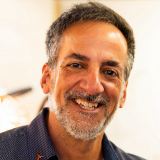
Dr. Ippolito initially studied physics at Reed College before completing training in B-cell immunology at The University of Alabama at Birmingham, The University of Cologne (Germany), and The University of Texas at Austin. He is an Associate Professor at Texas Biomedical Research Institute (Texas Biomed) in San Antonio where he spearheads antibody technology development and the investigation of human immunology.
Melita Irving, PhD, Group Leader, Ludwig Institute for Cancer Research, University of Lausanne
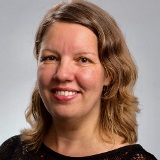
Melita Irving, originally from Canada, has been working in Lausanne, Switzerland in the field of T cell engineering since 2007. In 2013, she became a group leader for T cell engineering at the Ludwig Institute for Cancer Research of the University of Lausanne. Her research focuses on the development of function and safety enhanced TCR and CAR T cells and concomitant harnessing of innate and adaptive immunity to augment the control of solid tumors.
Rivka Isaacson, PhD, Professor of Molecular Biophysics, Department of Chemistry, King’s College London
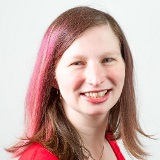
Rivka obtained a B.Sc. in Biochemistry from the University of Manchester in 1997, followed by a PhD in Chemistry from the University of Cambridge in 2001, under the supervision of Professor Sir Alan Fersht, FRS. She carried out post-doctoral research at Harvard Medical School with Professor Pamela Silver, and then at Imperial College London with Professor Steve Matthews. Subsequently, she worked at the Imperial College Drug Discovery Centre before starting her own research group in 2009 funded by an MRC New Investigator Research Grant. Rivka is passionate about radical interdisciplinarity, conducting many projects across the arts-sciences interface, including an ongoing multimedia collaboration with London Fine Art Studios called Viewing the Invisible, and a longstanding relationship with the Iris Murdoch Research Centre at Chichester University around science and literature. Rivka currently serves on the UKRI Physics of Life steering group and the executive committee for the national Collaborative Computing Project for NMR. She was the 2021 winner of the Judith Howard prize from the Biophysical Sciences Institute at Durham University and the 2024 winner of the British Biophysical Society Elspeth Garman Prize for Public Engagement.
Shinya Ishii, Senior Manager, Research Division, Chugai Pharmaceutical Co. Ltd.
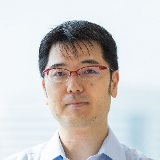
Shinya Ishii is a member of Chugai's Discovery Biologics department. He joined Chugai in 2002, specializing in antibody identification using phage display libraries. In 2017, he joined Chugai Pharmabody Research in Singapore where he led antibody identification and antibody engineering. In 2020, he returned to Chugai, and his current work focuses on antibody identification and the development of CAR T related technology.
Jihye Jo, Principal Scientist, Biomarker Development Department, PROTEINA Co., Ltd.

No bio available.
Vishal Kamat, PhD, Senior Director, Protein Sciences, Ampersand Biomedicines

Vishal (Vish) Kamat is an innovative and collaborative leader with 17 years of experience in the field of biotherapeutics and biophysical characterization of antibodies and proteins. He has supported the discovery and development of antibodies for 150+ targets which yielded 20 clinical drug candidates and 3 market-approved drugs - DUPIXENT, LIBTAYO, and EVKEEZA. He also has extensive experience in high throughput screening of antibodies using diverse platforms such as SPR, BLI, KinExA, Gyrolab, MSD and Luminex. His scientific excellence is evident by multiple peer-reviewed publications in high impact journals, patent approvals and IND reports. After a 12-year career at Regeneron Pharmaceuticals where he held positions of increasing responsibility from postdoctoral candidate to Sr. Staff Scientist, he worked as a Director of Antibody Characterization at Twist Biopharma and is currently working as a Senior Director of Protein Sciences at Ampersand Biomedicine. Vishal holds a PhD in Biomedical Engineering from Drexel University and BS in Electronics Engineering from University of Mumbai.
Sophia N. Karagiannis, PhD, Professor, Translational Cancer Immunology & Immunotherapy, Kings College London
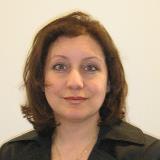
Professor Sophia Karagiannis is a translational cancer immunologist with academic and biotechnology experience in the USA and UK. She heads a cancer antibody discovery team focused on the crosstalk between patient immunity and cancer and on the design of novel therapeutic agents. Key areas of research center on patient-derived B cells and their expressed antibodies, Fc-engineered antibodies of different isotypes, and antibody-drug conjugates for cancer therapy. Her group is the first to design, evaluate and translate anti-tumour IgE class antibodies from concept to clinical testing. Sophia is founder of Epsilogen Ltd, the first immuno-oncology company dedicated to developing IgE-based anti-cancer agents.
John Kenney, President, Antibody Solutions

John Kenney is a Founder and President of Antibody Solutions, a contract research organization specializing in therapeutic antibody discovery and development. Dr. Kenney holds a Ph.D. in Pharmacology from the Université Louis Pasteur and has authored over 40 publications. Notable scientific accomplishments include the discovery of five novel therapeutic candidates currently in clinical trials. Business achievements include delivering antibodies to meet clients’ funding milestones, patent filings, and enabling therapeutic development agreements valued at over a billion dollars. His current research interests include new technologies for improving therapeutic antibody discovery, properties of next-generation antibody-like molecules, and best practices for critical reagents used in biologics development.
Bruce Keyt, PhD, CSO, R&D, IGM Biosciences, Inc.

Bruce received his Ph.D. in biochemistry and pharmacology from Tufts University School of Medicine and his B.S. in Chemistry from Washington University in St Louis. He is a co-inventor on more than 35 U.S. patents and patent applications, and he has a co-authored more than 55 scientific articles. Bruce brings to IGM more than thirty-five years of research, development and management experience in large and small biotechnology companies, including his extensive experience in many phases of early stage drug discovery and development. This experience spans target selection and discovery, in vitro biochemistry, in vivo efficacy models and all other aspects of the pre-clinical development of antibodies and proteins as therapeutic agents.
Philip M. Kim, PhD, Professor, Molecular Genetics & Computer Science, University of Toronto
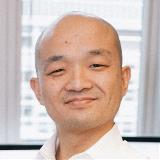
Philip M. Kim is a Professor at Donnelly Centre at the University of Toronto. He leads a research laboratory that integrates machine learning, physics-based modeling and wet/experimental methods for engineering of biologics. He is a Co-founder of Resolute Bio, a drug development startup company. He authored over 70 publications, 7 invention disclosures and 3 patent applications. Before to setting up his lab in 2009, he was a postdoctoral fellow at Yale University where he pioneered structural analyses of protein interactions networks and an associate with McKinsey & Co. He holds a Ph.D. from the Artificial Intelligence Laboratory and Department of Chemistry at the Massachusetts Institute of Technology and a B.S. in Biochemistry and Physics from the University of Tuebingen.
Astero Klampatsa, PhD, Group Leader, Cancer Therapeutics, Institute of Cancer Research
.tmb-0.jpg)
Dr Astero Klampatsa (PhD) is a Team Leader in Cancer Immunotherapy at the Institute of Cancer Research, London, UK. She graduated with a BSc in Biological Sciences and an MSc by Research in Biomedicine from Lancaster University. She was awarded a PhD in Research Oncology in 2011 from Queen Mary’s College, University of London, UK. As a postdoctoral fellow, she gained expertise in CAR T cell immunotherapy and immunobiology of thoracic cancers at King’s College London, UK, and at the University of Pennsylvania, USA. Since 2019, Dr Klampatsa has been leading her own team, the Thoracic Oncology Immunotherapy Group, focusing on developing novel CAR T cell therapies for mesothelioma and lung cancer, as well as the immunobiology of these malignancies for identification of markers of response to immunotherapy.
Christian Klein, PhD, Head, Oncology Programs and Department Head, Cancer Immunotherapy Discovery, Roche Innovation Center Zurich, Roche Pharma Research & Early Development, pRED

Christian Klein, Distinguished Scientist, is Head of Oncology Programs and Department Head Cancer Immunotherapy Discovery 3 at the Roche Innovation Center Zurich (Roche Pharma Research & Early Development, pRED). Since 06/2019 he also acts as Site Head of RICZ. He specialized in the discovery, engineering, validation and preclinical development of therapeutic (bispecific) antibodies for cancer immunotherapy. During his 18-year tenure at Roche he has made major contributions to the preclinical development and approvals of GAZYVA(RO) (obinutuzumab, GA101), and to the preclinical development of 19 bispecific antibodies, immunocytokines and antibody fusion proteins entering clinical trials. He led research teams developing Roche’s novel bispecific antibody technologies, e.g., the CrossMAb technology and the immunocytokine and T cell bispecific antibody platforms. He obtained his diploma in biochemistry from University Tübingen and his doctorate in biochemistry from Technical University Munich. In 2017 he completed his habilitation in Biochemistry at the Ludwig-Maximilians University (LMU) in Munich, and since then is an external lecturer there.
- Engineering Conjugates
- Machine Learning Approaches for Protein Engineering: Part 1
- Innovative CAR T Therapy
- Emerging Targets and Therapeutic Approaches
- Advancing Multispecifics and Combination Therapy to the Clinic
- Engineering the Next Generation of Bispecific Antibodies
- Analytical Characterisation of Biotherapeutics
- Optimising Expression Platforms
- Engineering Antibodies & Beyond
Sebastian Kobold, MD, Professor, Clinical Pharmacology, Klinikum der Universität München
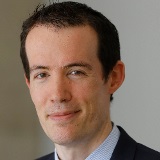
Prof. Kobold is a board certified clinical pharmacologist and immunologist. He studied medicine in Germany, Switzerland and France. His postgraduate and residency training took him through Hamburg and Boston to Munich. In Munich, he established his research group focussing on cancer immunotherapy with a focus on T cells and antibodies. Since 2016, he serves as an attending physician in the division of clinical pharmacology at the University hospital of the LMU where he was appointed full Professor and deputy director of the division in 2019.
Harald Kolmar, PhD, Professor and Head, Institute for Organic Chemistry and Biochemistry, Technische Universität Darmstadt

Harald Kolmar is full professor at the Technische Universität Darmstadt, Germany where since 2005 he heads the Department of Applied Biochemistry. He holds a PhD and habilitation in biochemistry and molecular genetics from University of Tübingen and Göttingen. His current scientific interests mainly focus on protein engineering and design, nanobiotechnology, antibody engineering, chemical biology and development of tailor-made peptides and proteins for applications in diagnostics and therapy.
Ilias Koutsopetras, PhD, Postdoctoral Researcher, BioFunctional Chemistry Lab, University Of Strasbourg
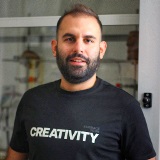
I was born in Athens in 1991 and studied chemistry at the Aristotle University of Thessaloniki in Greece. In 2016, I moved at the University of Bath in the UK where I completed my MSc studies and focused my attention on the synthesis of polyketides fragments, under the supervision of Professor S. D. Bull. Subsequently, I joined the industrial sector for 3 years and I have been employed by Manchester Organics Ltd (Runcorn, UK) and then by Syngenta (Stein, Switzerland), where I worked as an Organic and Research Chemist, respectively. In 2020, I joined Dr. G. Chaubet and Dr. A. Wagner group at the University of Strasbourg in France, under a Marie Sklodowska Curie scholarship, where I was involved in the development of novel bioconjugation methods for the selective modification of native and artificial proteins. During this time, I have attended two 4-month secondments-in UCL under the guidance of Professor V. Chudasama (London, UK) and in Spirochem (Basel, Switzerland)-where I dealt with the synthesis of novel pyridazinedione molecules and the preparation of new bicyclo[2.1.1]hexane compact modules, respectively. Currently, I am in the first year of my postdoc at the University of Strasbourg working on the development of novel immune oncology agents for tumour-selective modulation of the microenvironment.
Dan Bach Kristensen, PhD, Scientific Director, Symphogen

Dan Bach Kristensen holds a Ph.D. in biology and B.Sc. degree in chemistry. Dan is specialized in protein chemistry and mass spectrometry, which he initially applied in the field of proteome research in Japan and later in Denmark. For the last 17 years Dan has been working with analytical development in the biopharmaceutical industry, on projects ranging from early discovery through to product registration. Clinical indications include bleeding disorders, neutropenia, autoimmune diseases and oncology. Dan currently works as a Principal Scientist at Symphogen, which is specialized in the development of antibodies and antibody mixtures for the treatment of cancer.
Michelle Krogsgaard, PhD, Associate Professor, Pathology and NYU Perlmutter Cancer Center, NYU Grossman School of Medicine and NYU Langone Health
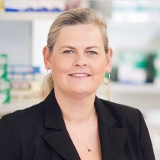
Dr. Krogsgaard is an Associate Professor with tenure in the Department of Pathology and the co-leader of the Tumor Immunology Program in the Perlmutter Cancer Center at New York University School of Medicine. She is the graduate advisor for the Inflammation and Immunology Program at NYU. Her laboratory combines cell biology, biochemistry and biophysics to explore mechanisms of T cell recognition, activation, migration and T-cell effector functions in mouse models of disease and in human tissues to developing new therapies for cancer, viral and autoimmune disease. She serves on NIH/NCI study sections and have been continuously funded by the NIH during her independent career. Dr. Krogsgaard was an Alfred Benzon Fellow, a Pew Scholar in the Biomedical Sciences, an American Cancer Society Research Scholar, a Cancer Research Institute Investigator, received the Mark Foundation ASPIRE Award and the Exceptional, Unconventional, Research Enabling Knowledge Advancement (EUREKA) Innovator Award from the NIH.
Leo Kunz, PhD, Principal Scientist, Spatial Biology Lead, Roche Pharma Research & Early Development (pRED)
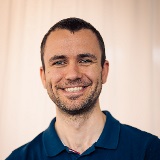
Leo is an innovative leader responsible for the implementation and application of advanced spatial technologies within preclinical evaluations of biological therapeutics. This strategic role is instrumental in enhancing the efficacy of discovery workflows for cancer immunotherapy and other therapeutic modalities.
Giulia Lambiase, PhD, Senior Scientist, Biopharmaceutical Development, AstraZeneca

Giulia Lambiase holds an MSc in Pharmacy from the University of Bologna and a PhD in Chemical and Biological Engineering from the University of Sheffield in partnership with AstraZeneca. Giulia is experienced in cutting-edge analytical methodologies for protein drug analysis with major focus on chromatography and mass spectrometry methods combined with automation. She is now a Senior Scientist in the Analytical Sciences team at AstraZeneca where she is in charge of CMC analytical development of new candidate drugs, the development and implementation of high-throughput analytical capabilities, and leads a working group focused on data science and AI applications in biopharmaceutical development.
Juan José Lasarte, PhD, Professor, Director of Immunotherapy Program, Cima Universidad de Navarra
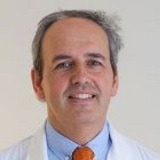
Dr. Juan José Lasarte is full professor of Immunology at the University of Navarra and the Director of the Immunology and Immunotherapy program at CIMA. His scientific activity has been focused on the mechanisms of induction of cellular and humoral immune responses and the development of antiviral and antitumor vaccines using peptides, recombinant proteins, viral vectors or adoptive T cell based therapies. He has participated in the publication of over 180 articles in international journals and has been co-inventor on 18 patents. Some of these patents are in clinical phases for the treatment of various pathologies.
Jesús Lavado García, PhD, Postdoctoral Researcher, Co-PI of Mammalian Cell and Bioprocess Engineering Group, Novo Nordisk Foundation Center for Biosustainability
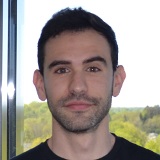
Dr. Jesús Lavado García completed his PhD in bioprocess engineering, specializing in HIV-1 Gag VLPs, at Universitat Autònoma de Barcelona in 2021. Following his PhD, he relocated to Denmark in 2022 to pursue postdoctoral research on the cell density effect in mammalian cell cultures, supported by the prestigious Marie Curie Postdoctoral Fellowship. Currently, he is dedicated to exploring the impact of high cell density on cell culture physiology, particularly focusing on optimizing the production of viral particles. His research aims to enhance the scalability and efficiency of viral particle manufacturing processes in the biopharmaceutical industry.
Aaron M. LeBeau, PhD, Associate Professor, Pathology & Lab Medicine, University of Wisconsin Madison
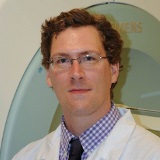
Aaron LeBeau, PhD is an Associate Professor in the Departments of Radiology and Pathology and Laboratory Medicine at the University of Wisconsin School of Medicine and Public Health. The LeBeau laboratory operates at the interface of synthetic biology and nuclear medicine with the goal of developing novel antibody-based molecular imaging probes and targeted therapeutics for cancer. Experts in antibody phage display, his laboratory has developed high-diversity human and mouse antibody libraries in addition to single-domain antibody libraries from naïve camelids and sharks. Dr. LeBeau was a double major at the University of Arizona receiving B.S. degrees in Molecular and Cellular Biology and Chemistry with a minor in Classical Art and Archaeology. He received his Ph.D. in Pharmacology from the Johns Hopkins University School of Medicine and was a Department of Defense Postdoctoral Fellow at the University of California San Francisco in the Department of Radiology. His laboratory relocated to the University of Wisconsin in June 2021 after seven years at the University of Minnesota. He has received many awards for his research, including from the Society of Nuclear Medicine and the Prostate Cancer Foundation
JiMin Lee, PhD, Professor, KAIST
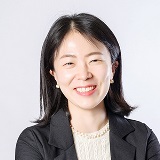
Ji Min Lee is an Associate Professor at the Graduate School of Medical Science and Engineering at Korea Advanced Institute of Science and Technology (KAIST). Her research group uses interdisciplinary approaches in synthetic biology, engineering, and epigenetics to study innate biological systems and to develop new tools for basic science and biomedical applications. Dr. Lee’s translational interests span nucleotide or protein-based drug discovery and development for applications in oncology and regenerative medicine, and development of new technologies for overcoming current drug resistance. Dr. Lee obtained her PhD in Biological Sciences from the Seoul National University, where she also completed a postdoctoral fellowship in Epigenetics. Dr. Lee was previously Principal Scientist of Business Development team, Samsung Bioepis, and Research Staff of Therapeutic Antibody Group, Samsung Advanced Institute of Technology (SAIT).
Sang Hoon Lee, PhD, CEO & Founder, ABL Bio Inc.
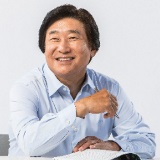
Dr. Lee founded ABL Bio in February 2016 with the vision to build a company that offers patients a better life based on innovative science. Recognizing that bispecific antibodies are the key to next-generation therapeutics, Dr. Lee has focused on diversifying ABL’s portfolio of bispecific antibody-based treatments for cancer and neurodegeneration. Under his leadership, ABL has advanced four bispecific antibodies into clinical trials, demonstrating unprecedented speed and commitment among South Korean biotechnology companies. Prior to ABL, Dr. Lee co-founded PharmAbcine where he oversaw all research and development for antibody therapeutic projects. Before that, he was responsible for drug discovery and preclinical development as the Head of the Bio Division at Hanwha Chemical. Dr. Lee also brings years of experience from global biopharmaceutical companies, including Chiron(Novartis), AstraZeneca, Genentech and Exelixis, where he gained cross functional knowledge in drug discovery, preclinical and clinical development of therapeutic antibodies. Dr. Lee received his Ph.D. in Molecular, Cellular and Developmental Biology at The Ohio State University and obtained his postdoctoral fellowship at the Harvard Medical School and UCSF. He earned his M.S. in Developmental Biology and B.S. in Biology Education from Seoul National University.
Phillip Leighton, Fellow, Animal Genetics, OmniAb
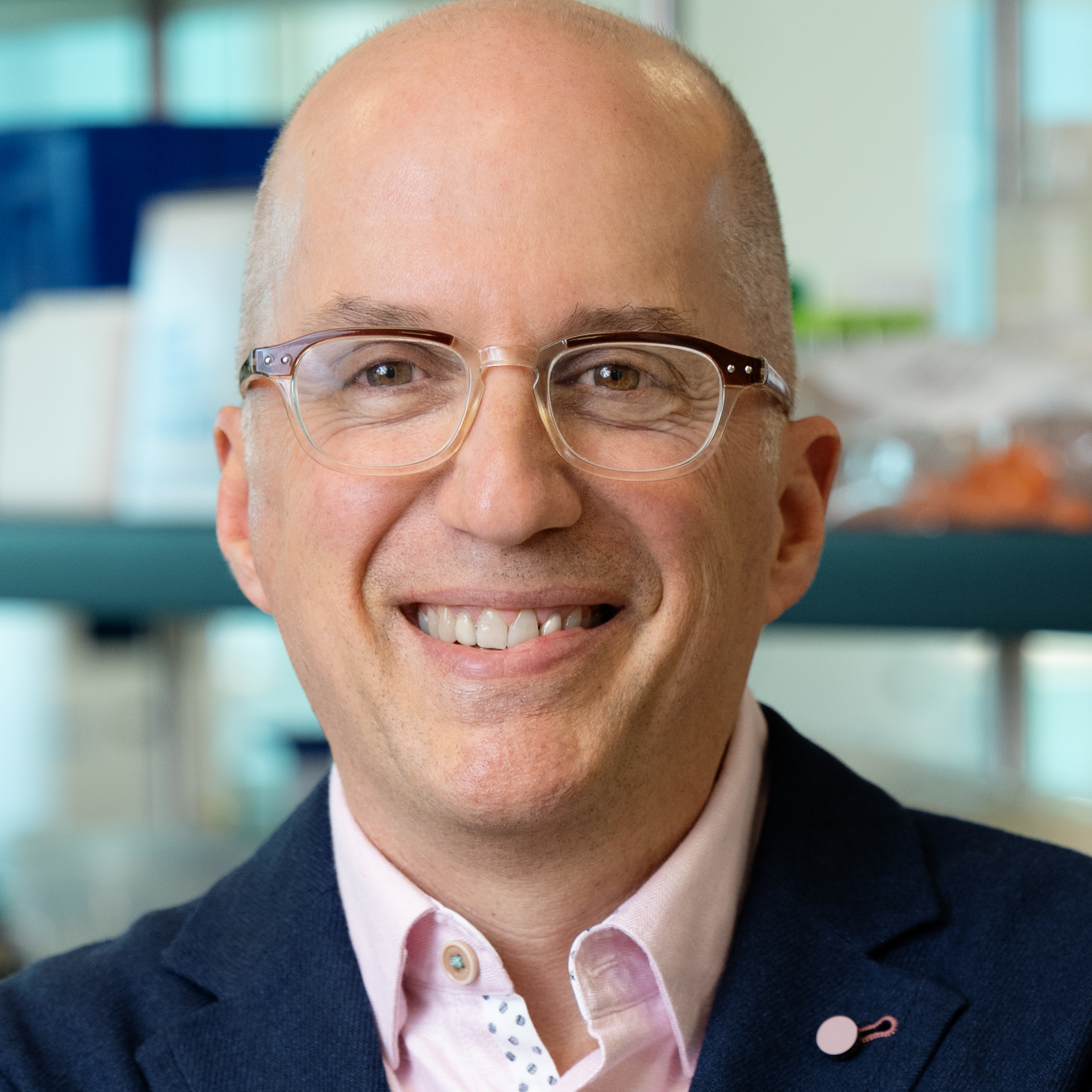
Phil Leighton is a Fellow at OmniAb. He joined the OmniAb team in 2017 following the acquisition of Crystal Bioscience. Dr. Leighton has been responsible for the development and validation of lines of transgenic chickens used for the discovery of human antibodies including OmniChicken®, which has been used for antibody discovery programs by pharmaceutical industry partners since 2016. More recently, he helped develop the OmniClic® line, which is used for discovery of antibodies with a common light chain for bispecific antibody development. He has authored many scientific publications and holds numerous US patents. Dr. Leighton earning is BS and MSC degrees from Stanford University and received his PhD in Molecular Biology from Princeton University, followed by post-doctoral studies at the University of California, San Francisco.
Eric Letouzé, PhD, Team Leader, Integrated Cancer Genomics, INSERM
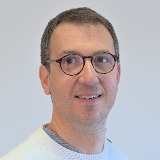
Eric Letouzé co-leads the "Integrated Cancer Genomics" (ICAGEN) team in Nantes cancer research institute (CRCI2NA). Throughout his career, he developed innovative computational strategies to analyze cancer genomics data and unravel the mechanisms of tumorigenesis. The ICAGEN team integrates cutting-edge single-cell multi-omics analysis of multiple myelomas in a clinical setting to understand the evolution of cancer cells fostering tumor progression and treatment resistance.
Jeanette H.W. Leusen, PhD, Professor, Translational Immunology, Utrecht University
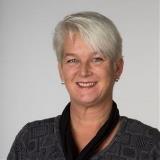
Dr. Jeanette Leusen received her PhD in 1995 at the University of Amsterdam (UvA), The Netherlands, studying neutrophils. Now she is PI on antibody therapy in the University Medical Center of an academic group of 22 FTE. She has co-authored 135 publications and is co-inventor on 10 patent applications. She is also scientific founder of a company called TigaTx developing engineered IgA for therapeutic application in oncology.
Marta Lewandowska, PhD, Program Lead, Discovery, Mestag Therapeutics
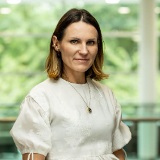
Marta Lewandowska is a Program Lead at Mestag Therapeutics, bringing over 14 years of experience in the biopharmaceutical industry, working at antibody-based biotechs, including F-star developing antibody bispecifics, Crescendo focusing on antibody fragment technologies and Biosceptare utilising monoclonal antibodies in the field of immune-oncology. Marta has worked across the drug discovery process, from lead isolation to preclinical evaluation, with extensive experience in antibody engineering, protein sciences, display technologies and in vitro immune assays. Prior to Mestag, Marta held a position as a Team Leader at Iontas, where she was both a team and project leader responsible for implementing and executing antibody discovery campaigns for a range of drug discovery programs across oncology, immune-oncology and autoimmunity therapeutic areas.
Lin Li, PhD, Senior Staff Member, Lincoln Laboratory, Massachusetts Institute of Technology

Dr. Lin Li is a senior staff member in the Artificial Intelligence (AI) Technology Group at MIT Lincoln Laboratory. Her research is focused on advanced graph analytics, representation learning for relational and graph data, natural language processing, and AI for biosecurity and material science. She is currently investigating approaches on AI-driven experimental design for novel materials and biological systems and applications of AI for social good. Before joining Lincoln Laboratory in 2015, Li worked at the U.S. Army Research Laboratory in Adelphi, Maryland, as a postdoctoral researcher. Her research was on learning sparse representations of high-dimensional data and modeling dynamic patterns in collective behaviors of social agents. Li is a member of the Institute of Electrical and Electronics Engineers (IEEE). She received the 2014 Young Author Best Paper Award from the IEEE Signal Processing Society for her work on distributed principal subspace estimation in wireless sensor networks. Li received PhD and BS degrees in electrical and computer engineering from the University of California, Davis.
Wei-Ching Liang, PhD, Staff Scientist, Antibody Engineering, Genentech, Inc.

I joined Genentech’s Department of Antibody Engineering in 2004. In my early years of research, I focused on the antibody discovery, engineering, and optimization using the approach of in vitro phage-displayed technique to support various disease areas in biology. In my recent 5 years, I engaged in the rabbit single B-cell culture and cloning technology for in vivo antibody discovery in many applications. In my 20 years of industrial experiences at Genentech, I am extremely gratified to have contributed numerous therapeutic antibodies to early development and beyond, including the first anti-TIGIT therapy (Tiragolumab) currently in clinical phase III for oncology indication to help cancer patients.
Giuseppe L. Licari, PhD, Lead Scientist, Computational Structural Biology, Global Drug Product Development-BDC, Merck Serono SA
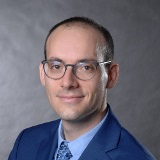
Since 2022, Giuseppe Licari has served as a Lead Scientist in Computational Structural Biology within the Global Drug Product Development department at Merck Serono SA. His work focuses on establishing computational platforms for the characterization and screening of biological molecules, as well as elucidating the role of excipients in protein stabilization. Previously, at Boehringer Ingelheim, he was instrumental in developing in silico approaches for developability assessments and predicting protein properties. After earning his PhD in Physical Chemistry from the University of Geneva in 2018, he pursued a postdoctoral position at the Theoretical and Computational Biophysics Group at the University of Illinois at Urbana-Champaign.
Lars Linden, PhD, Vice President, Head, Biologics Research, Bayer AG

Lars Linden is Head of Biologics Research at Bayer and responsible for all research activities covering antibodies, multi-specifics, therapeutic proteins and AAV biology. Lars joined Bayer in 2007 and has held various positions as lab head, group lead and director in in the Biologics Organization where he was responsible for production of antibody-based research compounds and tools for biologics projects of Bayer’s early research pipeline and also overseeing developability assessments for clinical candidates. Lars has also a track record of successfully leading preclinical research portfolio projects in oncology (ADCs and IO) and ophthalmology. Previously he had worked on structural biology of GPCRs and ion channels in a small biotech environment. Lars did his PhD in Structural Biology at the Max Planck Institute for Biochemistry/Technical University of Munich.
Anne Ljungars, PhD, Senior Scientist, Technical University of Denmark
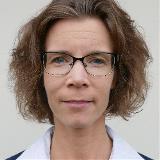
Anne Ljungars holds a PhD in immunotechnology from Lund University and 18+ years of experience in biotech industry and antibody drug development. She is currently working in the Preclinical team at BioInvent, Lund, Sweden, where she is responsible for antibody discovery and is a key person in the development of the phenotypic antibody-target discovery platform F.I.R.S.T.™ As a senior member of the team she has coordinated discovery efforts in several antibody drug projects, presently in preclinical or clinical development.
Ton Logtenberg, PhD, Former CEO & Executive Director, Merus NV
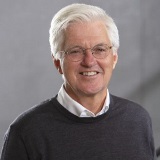
Dr Logtenberg is a highly respected, successful serial life sciences entrepreneur. He is the founder, former CEO and President of Merus N.V (NASDAQ: MRUS), a clinical-stage oncology company, advancing treatments based on multi-specific antibodies. He was also the founder and CEO of U-BiSys, a Dutch biotechnology company that merged with Introgene to become Crucell N.V., serving as its Chief Scientific Officer. Crucell was acquired by Johnson & Johnson for $2.4 billion in 2011. Dr Logtenberg also founded the HUB foundation for organoid technology with Dr Hans Clevers, and served on both its Board of Directors and Supervisory Board. As an antibody expert, he is currently the chairman of the board of Forbion’s portfolio company Synox Therapeutics, a board member of Mestag Therapeutics, also in Forbion’s portfolio, and board member of the Forbion European Acquisition Corporation, the Special Purpose Acquisition Company (SPAC) raised by Forbion in December 2021. Dr Logtenberg received a PhD in immunology from Utrecht University and did his post-doctoral work at Columbia University, New York. He is currently Professor in Entrepreneurship in the Life Sciences at Utrecht University.
Elizabeth Love, PhD, Scientific Leader, Antibody Drug Conjugate Platform, GSK
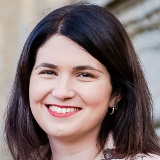
Elizabeth is a Scientific Leader in the Antibody-drug conjugate platform team within Large Molecule Discovery at GSK. In this role, she leads on the analytical characterisation of ADCs in discovery to support pipeline programs. Elizabeth has over 10 years’ experience in the field of ADCs and bioconjugation in both industry and academia. Previously she was a Team Leader at LifeArc, and holds a PhD from UCL, where she worked in the research groups of Prof James Baker and Prof Kerry Chester.
Simon Low, Senior Director, Biologics Discovery & Innovation, Cue Biopharma
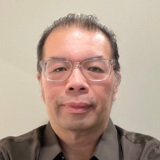
Simon Low is currently Senior Director of Biologics Discovery and Innovation at CUE Biopharma, leading the protein engineering and development of CUE Immuno-STAT platforms. Simon graduated from University of Kansas Medical Center as a protein chemist and has spent 20+ in the pharmaceutical and biotech industry, including Pfizer and BMS, working in the areas of structural biology, protein production, and characterization. His area of focus is in early discovery and novel technologies towards development of therapeutic molecules.
Geir Age Loset, PhD, CEO, Nextera AS

Dr. Geir åge Løset has more than 20 years of academic and industrial experience within the biotechnology sector where his work has focused primarily on antibody, T cell receptor and MHC engineering by use of phage display. Dr. Løset earned his PhD at the University of Oslo and spent parts of his post-doctoral training at the CSIRO Molecular and Health Technologies in Melbourne, Australia. Dr. Løset is Chief Executive Officer and co-founder of Nextera AS. He is an associate member of the K.G. Jebsen Coeliac Disease Research Centre and an Associate Professor at the Department of Biosciences, University of Oslo.
Ali Madani, PhD, Founder and CEO, Profluent Bio
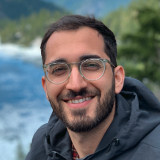
Ali Madani is the founder and CEO of Profluent, an AI startup in protein design, based in Berkeley, CA. Previously, he led machine learning research initiatives at Salesforce Research utilizing deep learning, language modeling, and computer vision. Most notably, Ali was the architect of the ProGen moonshot which advances generative modeling for protein design.
Nicole Mai, PhD, Principal Research Scientist I, Protein Science, Immunocore
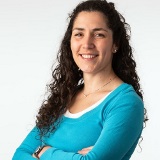
Dr. Nicole Mai is a Principal Research Scientist in the Protein Science department at Immunocore, where she leads efforts to engineer soluble TCR therapies with high potency and specificity. She is also leading a cross-functional team through the intricate journey from biological exploration to the final stages of safety and manufacturability, culminating in the identification of promising candidate drug molecules. Dr. Mai holds a PhD from Newcastle University (UK) and a degree in Pharmaceutical Chemistry from the University of Parma (Italy).
Shipra Malhotra, PhD, Senior Scientist, Biologics, Computational Biology and Machine Learning, Takeda
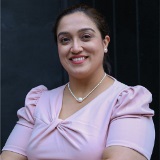
PhD in Computational Biology from the University of Kansas, with a focus on data collection, analysis, and interpretation, as well as the development and implementation of cutting-edge in silico tools for drug discovery and design. Currently, as a Senior Scientist at Takeda Pharmaceuticals, I spearhead the design, characterization, and optimization of therapeutic candidate drugs through computational analysis of protein sequence and structure, computational protein design, and engineering. I'm deeply engaged in pioneering AI-driven approaches to generate human-like proteins, particularly in the domain of antibody-based therapeutics.
Sara M. Mangsbo, PhD, Professor, Pharmacy, Uppsala University
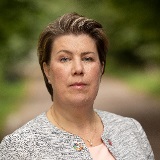
Sara Mangsbo (PhD) is a Professor in antibody drugs at Uppsala University. Professor Mangsbo is a leader in the field of cancer immunotherapy and specifically in antibody-based drug delivery and synthetic long peptides and has been awarded the SITC team award within the SLP stream along with numerous awards for societal outreach activities. She is a serial entrepreneur and has founded Immuneed AB, a service provider of immunotoxicity measurements in human whole blood by the use of the ID.Flow system. She is the Chief Scientific Officer and co-founder of Strike Pharma AB. She drives a translational research project with the ambition and track record of taking research projects into clinical trial testing.
Anna M. Mann, PhD, Postdoctoral Fellow, University Medical Center Hamburg-Eppendorf (UKE)
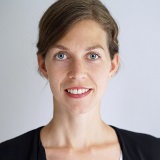
Anna Mann is a postdoctoral researcher at the Institute of Immunology at the University Medical Center Hamburg-Eppendorf, Germany, in the lab of Friedrich Koch-Nolte. Her expertise lies in the retargeting of Adeno-associated virus (AAV) vectors by the use of single-domain antibodies or nanobodies. She has more than ten years of experience in engineering and use of nanobodies specific for membrane proteins like ecto-enzymes and ion channels.
Paolo Marcatili, PhD, Director, Antibody Design, Novo Nordisk
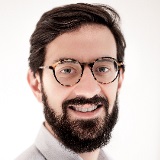
Paolo Marcatili is an associate professor at the Technical University of Denmark, where he leads the "AI for immunological molecules" group. He has developed many state-of-the-art tools for characterising the structure and function of molecules of immunological relevance, in particular antibodies and T cell receptors, by applying deep learning tools to integrate sequence and structural data.
Mercedes Márquez Martínez, PhD, Technical Coordinator & Acting Scientific Director, Protein Production Platform (PPP)-Nanbiosis, Autonomous University of Barcelona (UAB)
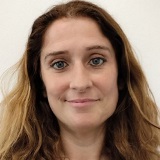
Graduated in Biology in 1998 and PhD in Biochemistry-Biophysics in 2003 from the Autonomous University of Barcelona (UAB). During the PhD I investigated the structural and functional effect of point mutations of the transmembrane protein bacteriorhodopsin. In 2003, as technical head of the Animal Tissue Bank of Catalonia (BTAC) at the UAB, in addition to being in charge of the animal tissue repository, I specialized in the diagnosis and research in veterinary neuropathology. In 2008, as a senior Priocat researcher at CReSA-IRTA, I carried out studies in neuropathology associated with animal prion diseases. In 2010 I also became the technical responsible for the Comparative Murine Pathology Unit (UPMiC) of the UAB from where we offered a complete histopathological diagnosis of laboratory animals. Finally, since 2016 I have been working at the Protein Production Platform (PPP), service of the Nanobiotechnology (NBT) group of the UAB, first as a senior technician and currently also as a coordinator of the service from where we offer a service specialized and personalized in the production and purification of recombinant proteins in different eukaryotic and prokaryotic expression systems. The PPP is part of Nanbiosis, a recognized singular scientific and technical infrastructure (ICTS) at the state level. Furthermore, as a member of the NBT group, I am part of the research group for the development of protein-based nanomedicines. I am also a member of CIBER’s Bioengineering, Biomaterials and Nanomedicine (CIBER-BBN).
Antonio Marra, MD, Medical Oncologist, IEO Istituto Europeo di Oncologia
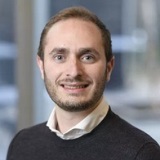
Dr. Antonio Marra is medical oncologist and physician scientist at the European Institute of Oncology (Milan, Italy). His research interest is focused on the application of genomics and artificial intelligence for biomarker discovery and development of novel therapies in solid tumors, with a specific focus on breast cancer.
Hironori Matsunaga, PhD, Scientist, Discovery Research Lab I Group II, Daiichi Sankyo Co., Ltd.
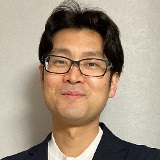
Dr. Hironori Matsunaga is a Scientist at Daiichi Sankyo Co., Ltd. He obtained his PhD in Biological Science from The University of Tokyo. With 19 years of experience in pharmaceutical research, he has made significant contributions to the fields of molecular cell biology, biochemistry, pharmacology, small molecule screening, and ADC therapy research. His work has led to the discovery of clinical candidate compounds, including an mTOR inhibitor and an IDH1 mutant inhibitor. Currently, Dr. Matsunaga is focused on ADC therapy research, particularly on DXd ADC and other next-generation ADCs.
- Engineering Conjugates
- Machine Learning Approaches for Protein Engineering: Part 1
- Innovative CAR T Therapy
- Emerging Targets and Therapeutic Approaches
- Advancing Multispecifics and Combination Therapy to the Clinic
- Analytical Characterisation of Biotherapeutics
- Optimising Expression Platforms
- Engineering Antibodies & Beyond
Jenny Mattsson, PhD, Principal Scientist, Preclinical Research, BioInvent International AB
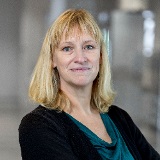
Jenny Mattsson has 20+ years of experience in antibody discovery. She currently holds a position as Principal Scientist in the Preclinical Research department at BioInvent, Lund, Sweden. As a senior member of this team, she has coordinated discovery efforts in several antibody drug projects, currently in preclinical or clinical development, and she was a key person in building the phenotypic antibody-target discovery platform F.I.R.S.T.
Madelon Maurice, PhD, Professor, Molecular Cell Biology, University of Utrecht; Scientific Founder and Scientific Lead, Laigo Bio
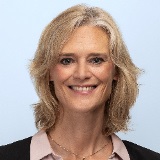
Madelon Maurice is appointed Full Professor at the UMC Utrecht and member of the national Oncode institute for cancer research. She is internationally recognized for contributing key mechanistic insights into how stem cell-niche communication controls tissue renewal, and how cancer mutations impact on these processes. Her academic group employs a multiscale approach that allows for the investigation of molecular processes in complex tissues using organoid-based model systems (https://madelonmauricelab.nl/). A longstanding interest is to understand ubiquitin-mediated regulation of key signaling pathways, highlighted by i) the discovery that the membrane-bound E3 ligase RNF43 controls Wnt receptor turnover in stem cells, and ii) the invention of SureTACs technology for targeted membrane protein degradation. The innovative nature of her work was recognized with various prestigious grants (e.g. ERC-St, NWO-VICI, ZonMW-TOP, national Gravitation grant IMAGINE!). Madelon coordinated the international Marie Sklowdoska Curie EU ITN consortium “WntsApp”, comprising 7 academic and 3 private sector European partners (2013-2017). Madelon is a regular invited speaker and organizer of international meetings (e.g. GRC, EMBO) and is co-chair of the Utrecht Platform for Organoid Technology. Fundamental research in the Maurice lab is integrated with ongoing efforts to translate findings into applications. In 2021, Madelon teamed up with seed investor ArgoBio and Oncode to found the biotech company Laigo Bio. At Laigo Bio, heterobispecific antibodies (SureTACs) are employed for proximity-induced degradation of membrane-bound proteins. Madelon is shareholder, Board member, and chair of the Scientific Advisory Board (SAB) of Laigo Bio.
Yariv Mazor, PhD, Executive Director, R&D, Biologics Engineering, AstraZeneca
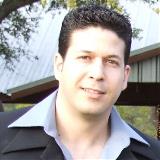
Dr. Yariv Mazor is a Senior Director at the department of Biologics Engineering in AstraZeneca. Yariv is leading the Antibody Technology group with 23 reports and co-leads multiple antibody bio-therapeutic programs into clinical development. Yariv received his Ph.D. in Biotechnology from Tel-Aviv University, Israel in 2005, where he studied and developed antibody therapeutics and antibody-drug conjugates for Cancer. He then pursued postdoctoral training at the Dept. of Chemical Engineering, University of Texas at Austin, TX under Prof. George Georgiou where he developed a novel platform for the selection and screening of engineered full-length IgG antibodies from libraries expressed in E. coli. Yariv is the co-inventor of >10 patents or patent applications and the author of >20 peer-reviewed papers.
John D. McCafferty, PhD, CTO and Founder, Maxion Therapeutics
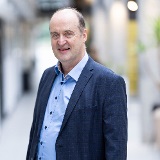
John McCafferty was one of the founders of Cambridge Antibody Technology (CAT, now Medimmune) in 1990 and published the first paper/patent describing antibody phage display. After 12 years at CAT, he returned to academia at the Sanger Institute and the University of Cambridge. In 2012, John formed IONTAS, a small innovative biotechnology company using phage display to develop novel antibody therapeutics. IONTAS have also developed a novel technology for construction of very libraries in mammalian cells using nucleases to efficiently direct the integration of a library of antibody genes into a single genomic locus within a population of cells. John was CEO and founder of Maxion Therapeutics focused on generating ion channel modulating antibodies. He also has a research group in the Department of Medicine at the University of Cambridge generating recombinant anti-venom antibodies.
Birthe Meineke, PhD, Project Leader, SciLifeLab
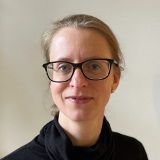
Birthe received her PhD from Tübingen University for her research working on the biochemistry of tRNA-specific endonucleases at the Sloan Kettering Institute in New York. As a postdoc, she worked at the MRC Laboratory of Molecular Biology, Cambridge, before transitioning to biotech and working at Isogenica in Cambridge, United Kingdom. Since 2015 she works on genetic code expansion in mammalian cells at Karolinska Institute, Stockholm.
Taha Merghoub, PhD, MCC Deputy Director & Professor of Research, Pharmacology, Cornell University

Dr. Taha Merghoub is the Deputy Director of the Meyer Cancer Center at Weill Cornell Medicine (WCM), New York. He is also Professor of Pharmacology, Professor of Immunology Research in Medicine and Margaret and Herman Sokol Professor of Oncology Research at Weill Cornell Medicine (WCM), New York. He is the director of the Ludwig collaborative and swim across America laboratory at WCM. He received his BA degree from the University of Algiers, Algeria, and MS and PhD degrees with highest distinction from University of Paris, France. His thesis work focused on the study of genetic polymorphism in fetal hemoglobin gene in patients with sickle cell anemia and thalassemia. His findings provided insight to the correlation of genotypes and phenotypes in sickle cell anemia and thalassemia. After graduation, he pursued his postdoctoral research with Dr. Pier Paolo Pandolfi at Memorial Sloan Kettering Cancer Center (MSK). He characterized the transcriptional properties of the Pokemon (Zbtb7) gene and its role during development. He also played an active role in the generation of laboratory models for acute promyelocytic leukemia and furthered his knowledge and experience in genetics. He subsequently joined Alan Houghton laboratory as a Senior Research Scientist where he started studying tumor immunity. He developed mouse models of melanoma that mimic different stages of human disease clinically, pathologically and genetically, later evaluating new immunotherapies at different stages of tumor progression. He then became an assistant attending biologist in the melanoma and sarcoma service and assumed the direction of a research laboratory in partnership with Dr. Wolchok. He successively became associate attending in the melanoma and immunotherapeutic service to then become a full member in the Human Oncology and Pathogenesis Program (HOPP) department at MSK. He was also a Parker Institute member researcher and led the Melanoma disease management team (DMT) and the Immunotherapeutic group tissue bank at MSK. He was appointed in his current role at WCM in September 2022. He directs a translational tumor immunology laboratory at WCM. His current research projects focus on investigating the means for developing immune-based therapies to treat cancer. In addition, some of his work aims to study the pathogenesis and treatment of melanoma and is directed in part at developing tools to study melanoma and immune responses in multiple cancers. His projects are heavily collaborative in nature, within the institution and across different disciplines with multiple entities. His projects can be divided into the following categories: 1) overcoming resistance to immune checkpoint blockade therapy by modulating the immune system; 2) using the immune modulatory properties of modalities that target and kill tumor cells directly; 3) defining biomarkers and genetic determinants of response to immune therapy; and 4) developing a tissue repository for the immunotherapy and melanoma groups. Dr. Merghoub's findings have been published in prestigious journals including Science, Nature, Cell, Nature Medicine, Nature Immunology, Cancer Cell. He has an h-index of 75, over 35 830 citations which is considered at the top2% worldwide. Dr. Merghoub participated in multiple actions and initiatives to build bridges between the United States and Algeria. Over the years, he contributed to multiple organization including the Algerian American Foundation for Culture, Education, Science and Technology (AAF-CEST). He served on the board of the AAF-CEST from 2014 to 2021 and as AAF-CEST president from 2017 to 2020.
Denis Migliorini, MD, Head, Neuro Oncology Unit, University Hospital of Geneva

After MD studies and internal medicine post graduate training at the Universities of Toulouse and Strasbourg, Prof. Denis Migliorini, completed his postgraduate training in medical oncology under the mentorship of Prof. Pierre-Yves Dietrich at the University Hospitals of Geneva (HUG) . From 2015 to 2016, he completed his clinical fellowship in neuro-oncology. He holds a DAS in clinical trial management from the University of Geneva (UNIGE) and became principal investigator of several early phase trials testing various anti-tumor immunotherapy approaches, including peptide vaccines for the treatment of glioblastoma. Starting 2017, he performed a 3 years post-doctoral fellowship at the Center for Cellular Immunotherapies, University of Pennsylvania, in the laboratories of Professor Carl June and Professor Avery D. Posey. He trained in synthetic biology and T cell engineering, disciplines that enabled the development of CAR-T cell technology. In 2019, he was awarded the Swiss Bridge Foundation Prize in recognition of his work identifying neurotoxicity mechanisms of engineered cell therapies. Returning to Switzerland in 2020, he was appointed assistant professor at the Department of Medicine of the Faculty of Medicine of the UNIGE, and holds the ISREC Foundation Chair in Brain Tumour Immunology. At the HUG, he is an attending physician, head of the Neuro-Oncology Unit and clinical coordinator of the Geneva brain tumor biobank. Professor Migliorini is a member of the CRTOH steering committee.
Enkelejda Miho, PhD, Professor, University of Applied Sciences and Arts Northwestern Switzerland; Managing Director, aiNET

Enkelejda Miho is a professor of Digital Life Sciences and dean of the master's program in medical informatics at the University of Applied Sciences and Arts Northwestern Switzerland. She is head of the Laboratory of Artificial Intelligence in Health (aihealth.ch). The group’s research focuses on the emerging field of artificial intelligence applied to health. The group uses analytics for personalized medicine, drug discovery and development, and support systems in clinics. She is the founder of the ETH spin-off aiNET.
Goran Milicic, PhD, Senior Expert, Science & Technology, Novartis
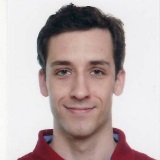
Goran completed his undergraduate studies in biochemistry at the University of Ljubljana, Slovenia. He then moved to Munich, Germany, to pursue his doctoral degree at the Max Planck Institute of Biochemistry, where he investigated the mechanisms of folding, assembly, and remodeling chaperones using a combination of biophysical methods and biochemistry. After completing his PhD, he conducted his postdoctoral training at Harvard Medical School, where he studied lung surfactant proteins. In May 2021, he joined Novartis Drug Product Development in Slovenia. His main responsibilities include modeling the 3D structures of various protein therapeutic formats, conducting sequence and structure analysis, performing MD simulations, implementing various machine learning models, protein engineering, and formulation development.
Oriol Mirallas, MD, Medical Oncologist, Drug Development, Phase I Unit, Vall d'Hebron Institute of Oncology (VHIO)
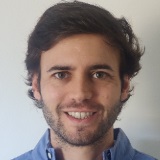
Oriol Mirallas, MD, BSc, is a medical oncologist dedicated to drug development and lung cancer at the Vall d'Hebron Institute of Oncology, Barcelona, Spain.
Laura S. Mitchell, PhD, Principal Bioinformatician, Alchemab Therapeutics
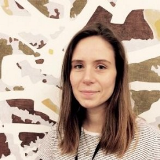
Bioinformatician with experience working in the biotechnology industry. Interested in protein engineering/design, immune repertoires and machine learning.
Fabian Mohr, Chief Scientific Officer, IBA Lifesciences

Fabian Mohr received his Master’s degree in Biology from the Technical Univ. of Munich. During his PhD thesis he worked on the isolation of minimally manipulated regulatory T cells for adoptive T cell therapy. In 2019, he joined IBA Lifesciences and has played a key role in driving product and technology innovation as Vice President R&D. In his new role as CSO, Fabian Mohr is responsible for the company's scientific strategy.
David Moreno Delgado, Director Discovery Sciences, Galapagos NV

During my academic formation, I have investigated the physiological relevance of several GPCRs and their interactors in brain function. When I joined the in vitro pharmacology team at UCB Biopharma in Belgium, I could participate in several drug discovery projects developing assays to track protein trafficking and protein-protein interaction affecting neuron vulnerability using from cell signalling profile to biophysical techniques. First as a scientist and afterwards leading NovAliX biology team, an insourced team of 8 scientists involved in early drug discovery. Beginning of 2021, I joined Galapagos Discovery Sciences Department, leading the setup of biochemical, biophysical, target engagement and target-based assays to support drug discovery pipeline.
Rebecca Moschall, Scientist III, Life Sciences Solutions R&D, Thermo Fisher Scientific
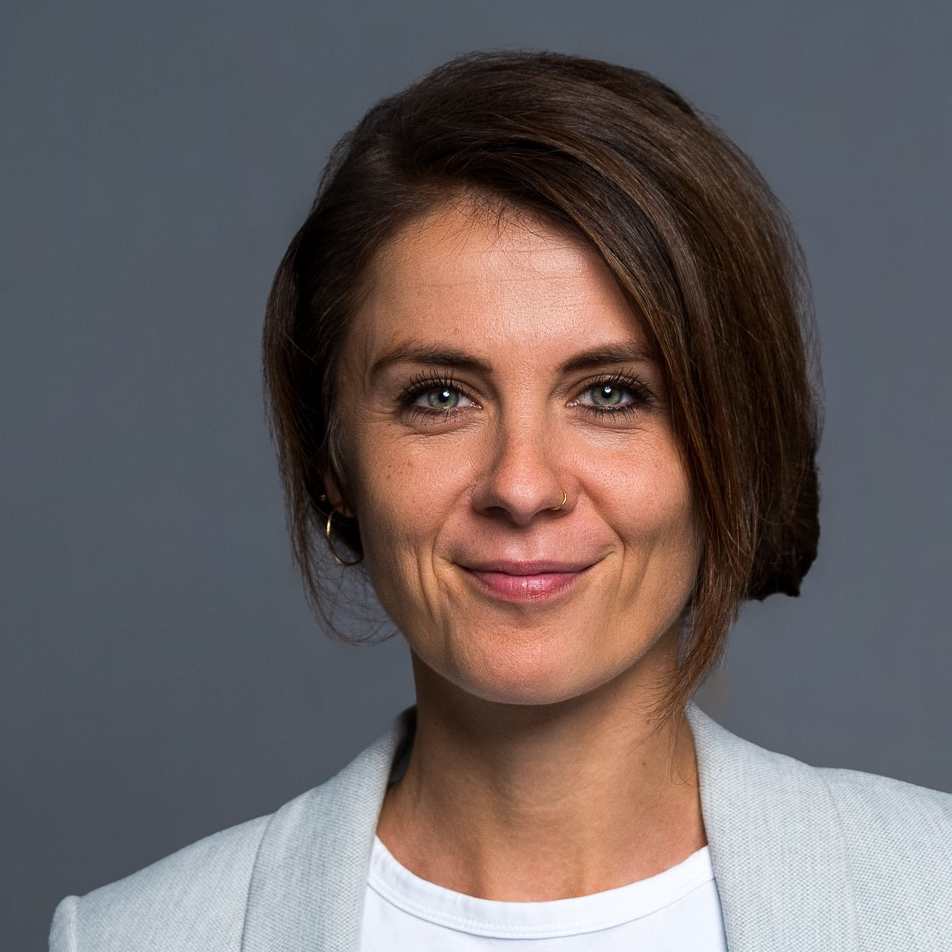
Rebecca Moschall is a Scientist at Thermo Fisher GeneArt, focusing on antibody expression production solutions, particularly in cell culture and protein expression. She earned her Doctorate in Biochemistry from the University of Regensburg, where she also completed a Postdoctoral Fellowship. In her previous roles, Rebecca gained extensive expertise in protein chemistry, cell-based potency assays, and routine biopharmaceutical product testing
Justyna Mysliwy, PhD, Senior Director Research, Research, Iksuda Therapeutics
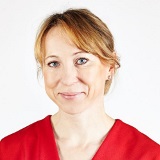
Having completed her PhD (University of Kiel, Germany) characterising the mode of action and physicochemical properties of antibacterial proteins, Justyna undertook her post-doctoral studies at the Centre of Advanced Research in Biotechnology (Maryland) focused on the structural changes in G protein signaling. Justyna joined Almac in 2009 to work on the development of their proprietary technology focused on site-specific protein conjugation, before moving to Iksuda Therapeutics Ltd (previously Glythera Ltd) in 2013. Justyna is a Research Lead for Iksuda’s Research programs. She has over 10 years of industry experience in the development and pre-clinical exemplification of a variety of conjugation platforms in multiple ADC models. Justyna brings comprehensive knowledge of bioconjugation chemistry, pharmacology, and an understanding of ADC design and development.
Shusuke Nambu, PhD, Analytical Development Department, Chugai Pharmaceutical Co. Ltd.
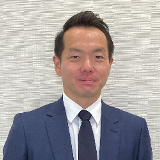
Shusuke Nambu is a biochemical scientist with ten years of experience working in Chugai. Shusuke specializes in structural characterization of bio-pharmaceutical product in CMC, especially using mass spectrometry, and also is responsible for CQA assessment. Before his joining Chugai, Shusuke worked as an assistant professor in a university and characterized structure of proteins and enzymatic activities using X-ray crystallography and several spectroscopy such as resonance Raman and electron paramagnetic resonance.
Kausheek Nandy, Digital Transformation-Research, Boehringer Ingelheim Pharmaceuticals Inc.

Kausheek is recognized as a global leader with over 15 years of experience in the Healthcare and IT sectors, where he has been instrumental in guiding teams, products, and programs in across Europe, Canada and US. His extensive leadership and technological expertise spans various domains within Healthcare, particularly in the realms of AI and Data Science. As the Director of Digital Transformation, his goal is to propel Boehringer Ingelheim and its Biotherapeutics division to the forefront of the Pharmaceutical R&D industry in terms of leveraging Artificial Intelligence and Machine Learning. He is dedicated to establishing the necessary infrastructure and foundation to foster innovation in these fields. Kausheek’s zeal lies in creating digital products through co-creation and external partnerships, enhancing patient health with AI and other technological advancements. His philosophy centers around the continuous cycle of learning, unlearning, and relearning, coupled with a proactive and collaborative mindset.
Horacio G. Nastri, PhD, Vice President, Protein Science and Technology, Incyte Corporation

Dr. Nastri is currently the VP of Protein Science and Technology at Incyte Corp. His group is responsible for end-to-end discovery and engineering of monoclonal and bispecific antibodies for oncology applications. His group uses both immunization, as well as display approaches for the generation of lead molecules, which are further optimized by a combination of in vitro and in silico approaches. Dr. Nastri started his career in the antibody field at Dyax Corp., where he developed and co-invented key technologies utilized to build the Dyax Fab libraries. He then headed the Antibody Technologies group at EMD Serono, where he implemented new approaches for selecting antibodies by single cell B-cloning and phage display. He became an Inventor of Avelumab, a clinical-approved anti PD-L1 antibody. He joined Pfizer CTI as a Biotherapeutic Site Head in NY, where he collaborated with local academic leaders to enable and advance novel therapeutic programs. During his career, Dr. Nastri became an inventor of multiple antibody therapeutic molecules and antibody discovery enable technologies, while participating in a number of projects resulting in IND applications.
Dario Neri, PhD, CEO and CSO, Philogen; Professor, Chemistry and Applied Biosciences, ETH Zurich
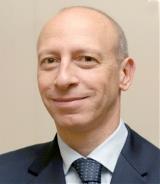
Dario Neri was born in Rome on 1 May 1963, but grew up in Siena (Italy). He studied Chemistry at the Scuola Normale Superiore of Pisa and earned a PhD in Chemistry at the Swiss Federal Institute of Technology (ETH Zürich), under the supervision of Professor Kurt Wüthrich (Nobel Prize Chemistry 2002). After a post-doctoral research internship (1992-1996) at the Medical Research Council Centre in Cambridge (UK), under the supervision of Sir Gregory Winter (Nobel Prize Chemistry 2018), he became professor at ETH Zürich in 1996.
Dario Neri is currently Full Professor of Biomacromolecules at the Department of Chemistry and Applied Biosciences, ETH Zürich. The research of the Neri group focuses on the engineering of therapeutic antibodies for the therapy of cancer and other angiogenesis-related disorders and on the development of DNA-encoded chemical libraries.
Dario Neri is a co-founder of Philogen (www.philogen.com
Ahuva Nissim, PhD, Professor, Antibody and Therapeutic Engineering, William Harvey Research Institute, Queen Mary University of London
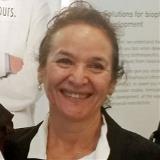
Graduated in Molecular Immunology in 1992 from the Weizmann Institute of Science in Israel and was trained as a postdoctoral fellow at the MRC Centre for Protein Engineering in Cambridge until 1995. During this period she developed phage display semi-synthetic human antibody library, the so call ‘Nissim’ library which has been used worldwide. In November 2000 was appointed at Queen Mary University. My studies are interdisciplinary and involve translational research at the William Harvey Research Institute and with intensive worldwide collaborations. My studies have been mostly focused on the mechanisms that lead to the formation of disease tissue-specific pathogenic post-translationally modified proteins and the exploitation of identified pathogenic proteins to develop platform technologies for novel disease - and tissue-specific, diagnosis and targeted treatment.
Rajkumar Noubade, PhD, Director, Oncology, Gilead Sciences
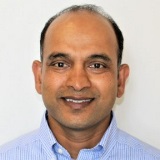
Rajkumar Noubade is Director in Oncology department at Gilead Biosciences in Foster City, CA and has decades of experience in tumor immunology at various levels across industry. His lab focusses on investigating components of tumor microenvironment with the goal of potentiating anti-tumor immunity. He received his PhD from University of Vermont, Burlington VT and completed his postdoctoral training at Genentech, South San Francisco, CA. He has authored and co-authored several manuscripts in high impact journals.
Yanay Ofran, PhD, Founder, CEO, Biolojic Design Ltd.
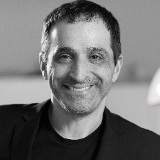
Professor Yanay Ofran is a computational biophysicist and a biotech entrepreneur. His scientific work uses computational approaches to understand, predict and engineer protein interactions. Yanay is the founder and CEO of Biolojic Design. Relying on big-data and machine learning, Biolojic’s platform mimics the way the human immune system makes antibodies to design functional antibodies that provide a precise molecular effect, in the desired micro-environment, at the right time, leading to greater efficacy and lower toxicity, while maintaining impeccable developability, half-life, stability and safety of human antibodies. He is also the co-founder of Ukko, a biotech company that uses computational tools and patient samples to design a novel and safe treatment for food allergies, and to design safe gluten for people with gluten sensitives. In 2020, Yanay co-founded Aulos Biosciences, which became the first company to treat cancer patients with a computationally designed antibody. Prof. Ofran headed the lab of systems biology and functional genomics at Bar Ilan University near Tel Aviv.
Carlos Outeiral, PhD, Eric and Wendy Schmidt AI in Science Research Fellow, Department of Statistics, University of Oxford
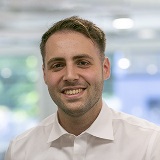
Carlos Outeiral is an Eric and Wendy Schmidt AI in Science postdoctoral fellow at the University of Oxford, where he is also a Stipendiary Lecturer in Biochemistry. After earning BSc and MPhil degrees in chemistry in Oviedo and Manchester, Carlos completed a DPhil in Statistics at the University of Oxford, developing computational methods to study protein biosynthesis. Carlos' research focuses on developing artificial intelligence methods for in silico protein engineering, aiming to accelerate computational screening of therapeutics for stability and developability. Outside his work, Carlos is interested in Latin dancing, food science, and tech entrepreneurship.
Marije Overdijk, PhD, Director, Team Lead Translational Research, Genmab
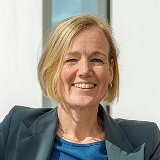
Marije Overdijk obtained her PhD in 2013 at Genmab (Utrecht, Netherlands), with a thesis on the role of Fc-gamma receptor mediated effector functions of therapeutic antibodies. She continued at Genmab as a Scientist working on the discovery and development of therapeutic antibodies, with a focus on oncology. Currently, she is team lead of the Translational Research Group at Genmab. Her team is responsible for the design and execution of the translational strategy for novel antibody compounds in preclinical and early clinical development, including the biomarker strategy for first-in-human trials.
Paul Parren, PhD, CSO, Gyes; Professor, Molecular Immunology, Leiden University Medical Center

Professor Paul W.H.I. Parren is dedicated to translating antibody knowledge into innovative therapeutics and technologies. He holds a PhD in molecular immunology from the University of Amsterdam (1992). Professor Parren was an Associate Professor at The Scripps Research Institute in La Jolla, California. From 2002-2017, he led research and preclinical development at Genmab, and from 2018-2023 he was head of R&D at LAVA Therapeutics, a Nasdaq-traded biotechnology company that develops bispecific gamma-delta T cell engagers to transform cancer therapy. His work contributed to eight approved therapeutic antibodies (incorporated in ten antibody products), including multiple products from the DuoBody bispecific antibody platform. He has a strong publication record with >230 scientific publications (>37,000 citations and an h factor of 102; Google Scholar Jul. 7, 2023) and >220 granted patents in US, EU and JP). He is a tenured Professor of Molecular Immunology at the Leiden University Medical Center in Leiden. He is CEO of Sparring Bioconsult BV, a consulting company that provides independent drug development advice. He is a founder and CSO at Gyes BV, a start-up company developing multi-specific antibody technologies. He chairs the board of directors of The Antibody Society, a non-profit trade organization that develops initiatives to forward the antibody field.
Ryan Peckner, PhD, Director, Machine Learning, Seismic Therapeutic
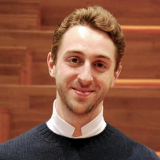
Ryan Peckner has been the head of machine learning at Seismic Therapeutic since early 2022, where he leads a team focused on applying ML to develop next-generation classes of non-immunogenic protein therapeutics. He earned his PhD in theoretical mathematics at Princeton University in 2015 and, after deciding to transition to an applied field, completed his postdoctoral training at the Broad Institute with an emphasis on the intersection of proteomics, genomics, and machine learning. Since entering biotech in early 2019, he has focused on developing and applying new machine learning techniques to structural biology, immunology, and drug development, beginning with models to probe TCR-pMHC interactions at Repertoire Immune Medicines and continuing with his work at Seismic.
Luca Pellegrinet, PhD, Assistant Director, Preclinical Development, T-Therapeutics
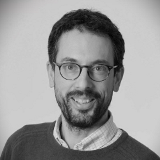
Luca Pellegrinet, PhD, is the Assistant Director of Preclinical Development at T- Therapeutics. He was formally senior scientist at Sanofi. Dr. Pellegrinet received his PhD at EPFL in molecular life science.
Mario P. Pereira, PhD, Director of Technology & Business Development, ATUM
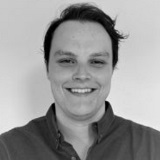
Mario Pereira has a diverse work experience history. Mario is currently the Director of Technology and Business Development at ATUM since March 2023. Prior to this, they worked at Horizon Discovery from 2016 to 2023 in various roles including Strategic Account Manager, Field Application Scientist, and Senior Scientist. At Horizon Discovery, they were responsible for commercial activities, technical input in pre and post-sales, and development of the CLD platform. Mario also worked as a Principal Scientist at FUJIFILM Diosynth Biotechnologies from 2015 to 2016, focusing on developing recombinant CHO cell lines. Mario Pereira completed their Biotechnology PhD at the University of Manchester from 2011 to 2015, where their research focused on genomic environment for recombinant gene expression. Mario has also been involved in various outreach and community activities, including roles at PARSUK and Oxbridge Biotech Roundtable. Mario Pereira began their education in 2005 at the Universidade de Coimbra, where they obtained a Bachelor of Science degree in Biochemistry in 2008. Following this, they pursued a Master of Science degree in Biochemistry from the same institution, completing their studies in 2010. Mario then continued their academic journey at The University of Manchester, where they enrolled in a Doctor of Philosophy program in Biotechnology. Mario successfully completed their PhD in 2015, thus furthering their expertise in the field.
Bradley Peter, PhD, Senior Research Scientist, Protein, Structure & Biophysics, AstraZeneca R&D
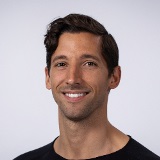
Bradley Peter completed his PhD at the University of the Witwatersrand in 2014, focusing on the structural transitions of dimorphic chloride ion channels. Following this, he pursued postdoctoral research at the Sahlgrenska Institute in Gothenburg, Sweden, where he delved into understanding mechanisms of mitochondrial DNA replication in metabolic disease and contributed to the development of inhibitors of mitochondrial transcription for cancer treatment. Currently serving as a senior researcher at AstraZeneca, Bradley's interests encompasses the development of protein reagent generation strategies and harnessing the potential of databases to ensure FAIR data collection.
Ulrike Philippar, PhD, Senior Director & Head, Oncology & Discovery Hematological Malignancies, Johnson & Johnson Innovative Medicine
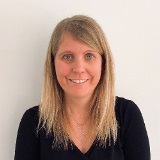
PhD in Cellular Biology at the University of Tuebingen, Germany; Postdoctoral Fellow at MIT Cancer Center, Cambridge, USA; 6 years in Oncology R&D at Merck & Co., Boston, USA; since 9.5 years at Janssen Oncology R&D, Beerse, Belgium; current position: Senior Director Oncology, Global Head of Discovery Hematological Malignancies.
Nick Pittman, Global Marketing Mgr, Biopharmaceuticals, Waters UK Ltd
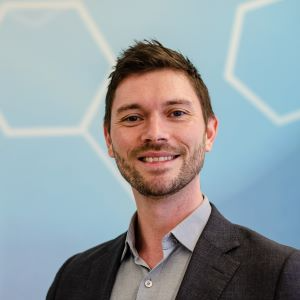
Nick Pittman has over 20 years of experience with mass spectrometry and liquid chromatography, and specializes in the application of Waters’ analytical solutions for biopharmaceutical analysis.
Having worked with Waters for over 10 years across several roles, Nick has expertise in many application areas. Before joining Waters, he spent 10 years in the Pharmaceutical industry, working on LC and LC-MS for drug development at Pfizer, UK
Andreas G. Plueckthun, PhD, Professor & Head, Biochemistry, University of Zurich

Andreas Plückthun, Ph.D., is a Professor of Biochemistry at the University of Zurich, Switzerland. His research on protein engineering has included pioneering work on antibody engineering, the development of ribosome display, new scaffolds (the DARPin technology and Armadillo Repeat Proteins), engineering of stable G-protein coupled receptors towards high stability, and most recently a new retargeting platform for gene therapy. He is member of the German Academy of Science (Leopoldina) and recipient of many international awards and founder of three biotech companies, Morphosys, Molecular Partners and G7(divested to Heptares/Sosei). Trained as chemist in Heidelberg, he received his Ph.D. at UC San Diego, was Postdoc at Harvard, group leader at the Max-Planck-Institute in Martinsried, and then Professor in Zurich. His work has been published in over 475 papers, which have been cited over 50,000 times. He is an inventor on more than 25 patent families.
Simon Plyte, PhD, CSO, R&D, Biomunex Pharmaceuticals
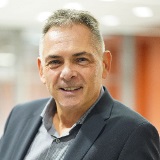
Dr. Simon Plyte has over 20 years of experience in research and development in the Pharma industry, both in Big Pharma and small Biotech. He has worked on the discovery and development of NCEs and Biologics, predominantly in the field of Oncology but has also worked in cardiovascular, neurodegeneration, and metabolic disease drug discovery. For the last 8 years, he has focused on Biologics drug discovery, using mono- and multi-specific formats predominantly in the field of Immune Oncology.
Nicolas Poirier, PhD, CSO, OSE Immunotherapeutics
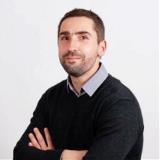
Nicolas Poirier has 15+ years of experience in immunotherapy target identification/validation, preclinical and translational drug development and partnership with pharmaceutical companies. He was awarded the Thesis Prize of the journal Le Monde. Nicolas Poirier has been chief scientific officer of OSE Immunotherapeutics since 2016. He joined the company in 2009 as project leader and then as director of scientific programs. Nicolas holds a Ph.D. in immunology and has a strong expertise in the development of immunotherapies. His role at OSE has been to implement innovative therapeutic strategies on new targets and pathways in immunology addressing severe pathologies with high therapeutic need in immuno-oncology and Inflammation, thus making a robust contribution to the Company’s growth. Along with his R&D team, Dr. Poirier continues pursuing the identification of novel preclinical targets and translating them into first-class clinical-stage immunotherapies. He is the author of 50+ high-level international publications and 30+ patents in the area of immunotherapy.
Laetitia Poumarede, Drug Product Process Development Engineer, Sanofi
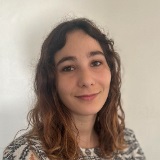
She is a Drug Product Process Scientist and laboratory head for Biologics process in SANOFI since 2020. She covered all biologics drug product’s “Fill & Finish” manufacturing process development from lab-scale to pilot and commercial: freeze-thaw, bulk preparation, mixing, filtration, aseptic filling and freeze-drying, using process simulation and Quality by Design approach. She performed technical transfers from lab-scale to non-GMP & GMP pilot as well as industrial scale. She holds an engineer diploma specialized in process and chemical engineering.
Heloise Quillay, PhD, Principal Scientist and Team Leader, CMC Analytics, Sanofi
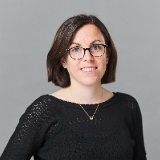
Héloïse hold a PhD in virology. She started her career in Sanofi Pasteur Val de Reuil, working as Influenza vaccine process and product specialist for three years. She then moved to DBV technologies, a biotech company developing immunotherapy for food allergy. In 2020, she joined Sanofi Ghent, where she is currently principal scientist in the CMC Pharmaceutical Development and Technology Analytics department.
Laszlo G. Radvanyi, PhD, President & Scientific Director, Ontario Institute for Cancer Research
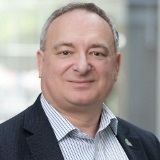
Dr. Laszlo Radvanyi is the President & Scientific Director of the Ontario Institute for Cancer Research (OICR; https://oicr.on.ca/) bringing over 30 years of oncology research background in academia and leadership experience in international pharma and biotech. He is also a Professor in the Immunology Department at the University of Toronto where his research focuses on the role of non-coding regions, including retrotransposable elements and human endogenous retroviruses, in cancer development and as modulators of the immune response in cancer patients. Laszlo joined OICR in 2018 from EMD Serono (Merck KGaA), where he was Senior Vice President Global Head of the Immuno-Oncology Translational Innovation Platform and Senior Scientific Advisor for Immunology and Immunotherapy (2015-2018). Prior to this, Laszlo was a Professor in the Department of Melanoma Medical Oncology at the University of Texas, MD Anderson Cancer Center in Houston for 10 years (2004-2014) where he ran an integrated clinical and basic cancer immunotherapy research program focusing on adoptive cell therapy. He left MD Anderson Cancer Center in 2014 to become the founding Chief Scientific Officer of Iovance Biotherapeutics (2014-2015), a pioneering company commercializing tumor-infiltrating lymphocyte (TIL) adoptive cell therapies for melanoma and other cancers which recently got its first TIL therapy product (lifileucel) approved by the US FDA in February 2024 under the product name AmtagviTM. Laszlo led the company in filing its first INDs and built its research and development team. Laszlo also sits on several national and international grant review panels and biotech advisory boards and is a sought-after expert in cancer biology and immunotherapy and a thought leader in the field of oncology research strategy.
G. Jonah Rainey, PhD, Senior Director, Protein Engineering, Eli Lilly and Company

Jonah Rainey holds a PhD in Biochemistry from Tufts University and completed postdoctoral training at the University of Wisconsin and the Salk Institute. He has engaged in discovery, research, and development of bispecific antibodies for more than 15 years. He is an inventor on several patents describing novel bispecific platforms and current clinical candidates that exploit these platforms as well as an author on almost 30 publications. Jonah contributed to research and early development leading to multiple clinical candidates from Phase I and through approved products and led many advanced preclinical programs in oncology, infectious disease, autoimmunity, and other therapeutic areas. Previous industry experience includes MacroGenics, MedImmune/AZ, Oriole Biotech, Gritstone Oncology, and Alivamab Discovery Services. Currently, Jonah is a Senior Director in Protein Science at Eli Lilly & Co.
Palaniswami (Swami) Rathanaswami, PhD, CEO, PRSwami AbDev Inc.
-jpg_77a600a5-dcf5-4ace-9868-f234d69de115_1f28730c-3326-4da0-8cba-ebf8657c7fb5.tmb-0.jpg)
World’s leading expert Scientist in Antibody affinity and kinetic characterization, especially for measuring femto molar affinities of antibodies for soluble and on-cell targets. World expert in solution binding measurements and using KinExA technology. Extensive user of SPR and BLI technologies. Experienced SME as Functional Lead for human therapeutic antibody programs and drug product development. Dedicated career to advancing medical research to alleviate disease and make individuals lives better. Consultant for leading biotech organizations on high throughput screening, affinity measurements and antibody drug product development. Did extensive research, over 40 years in the fields of Endocrine Biochemistry, Molecular Endocrinology, Inflammation Immunology-Rheumatology, Human therapeutic antibody generation, engineering and characterization (including immunization, high throughput binding and functional screening and very high affinity kinetic measurements). A key member of a team of 5 Scientists who developed SLAM technology for human therapeutic antibody generation and spun to a Canadian Biotech company - Immgenics Inc., and later acquired by Amgen. First Scientist to generate human antibodies by Single Cell RT-PCR amplification of V genes from antibody producing single B Cells, molecular cloning and express as full antibody. Published over 40 articles in very high impact Scientific Journals and inventor of over 20 scientific patents. Worked for Amgen 25+ years and generated over 100 human therapeutic antibodies of which about 5 are already used as pharmaceutical drugs in market. Invited speaker in national and international conferences, Universities and Research institutes across the globe. Chaired sessions in international conferences and seminars. Dr. Palaniswami Rathanaswami graduated in MSc (Biochemistry, Faculty of Medicine) and a PhD (Biochemistry), University of Madras, India.
Giuseppe Roscilli, PhD, CTO & Director, Drug Evaluation & Monoclonal Antibody, Takis Srl
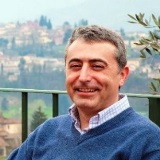
Giuseppe Roscilli is a distinguished biotechnologist and Partner, serving as Chief Technology Officer (CTO) at Takis Biotech in Pomezia, Rome. Dr. Roscilli specializes in monoclonal antibody research and immune-oncology. He holds a PhD in Molecular Medicine from the University of Rome "La Sapienza," where he focused on drug resistance mechanisms and patient chemosensitivity. Dr. Roscilli has a rich background in antibody development. At IRBM (Merck&Co), he worked n voious fields from Monoclonal antibody development, to gene therapy and small molecule development where he was instrumental in identifying the PARP-1 inhibitor Niraparib, now used for treating ovarian cancer. At Takis Biotech, he initially directed the Drug Evaluation and Monoclonal Antibody Department, leading a team in generating and characterizing novel antibodies. Now, as CTO, he oversees strategic research projects and the integration of new technologies. His work emphasizes bispecific antibodies and T-cell engagers for cancer therapy. Dr. Roscilli has authored over 50 peer-reviewed papers and holds several patents in antibody and vaccine technologies.
Thomas Rose, Head of Expression Systems, Pharmaceutical Cell Lines, ProBioGen AG
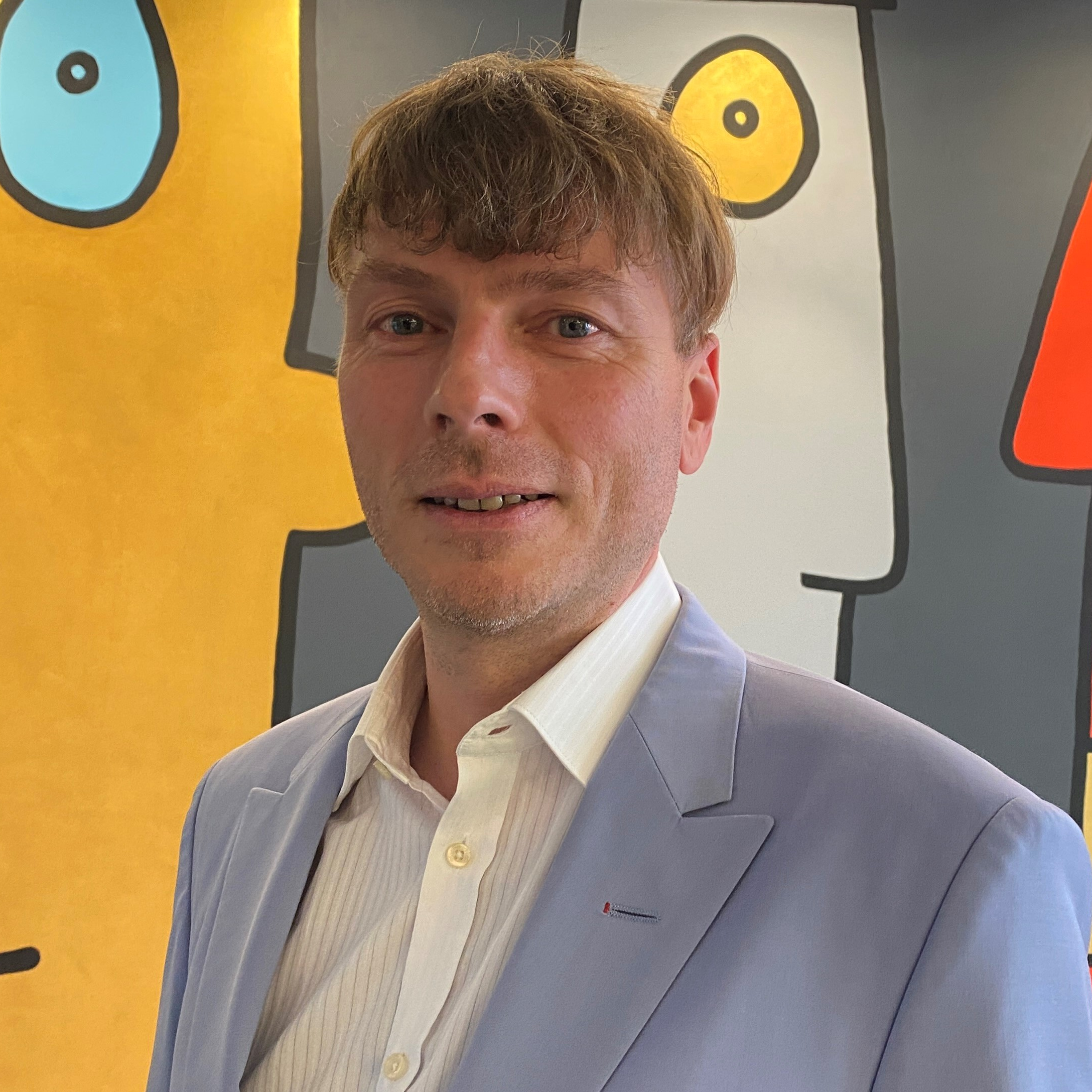
Thomas Rose, PhD, is Head of Expression Systems at ProBioGen. He received his MSc in Biotechnology from the University of Applied Science in Berlin, his PhD in Biochemistry from the Free University of Berlin and joined ProBioGen in 2001. His work focuses on cell line development and expression technologies for protein drugs. He was instrumental in establishing the Freedom™ CHO-S™ Kit, as well as ProBioGen’s CHO.RiGHT® platform, Pathway Modulator and DirectedLuck® technologies. He also has extensive experience in cell line development for a variety of complex proteins.
Alan G. Ryder, PhD, Professor, Nanoscale Biophotonics Laboratory, University of Galway
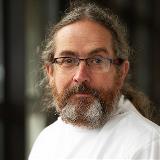
Professor Alan G. Ryder directs the Nanoscale Biophotonics Laboratory (NBL) which is based at the University of Galway (UoG) in Ireland. He has a BSc and PhD (1989) in chemistry from UoG. After a stint as a postdoctoral researcher in UCC, he rejoined UoG in 1997 to work on developing quantitative Raman spectroscopy-based methods for measuring illicit narcotics. In 2003, he formed the NBL which applies photonics and chemometrics technologies to applications in the life and physical sciences. In 2006, he obtained tenure in the School of Chemistry at UoG as senior lecturer and was promoted professor there in 2016. He has two core research areas: Analytical Sciences and Photonics, which cover a wide range of applications. In the Analytical Sciences domain, his main research area is developing of rapid, quantitative, analytical methods for the analysis of complex materials with particular focus on biopharmaceutical manufacturing and cell culture media analysis. He has collaborated with a wide range of biopharmaceutical manufacturing industries since 2004. He has authored more than 100 publications, generated 3 patents, and graduated 23 PhD students.
Kannan Sankar, PhD, Senior Expert I, Data Science & Bioinformatics, Novartis Institutes for Biomedical Research Inc.
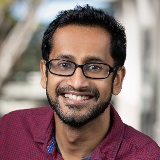
Kannan Sankar is a Senior Data Scientist in the Biologics Research Center at Novartis Biomedical Research. A structural bioinformatician by training, he works on combining sequence, structure, and dynamics with machine learning techniques to model the function and properties of biotherapeutics, as well as their interaction with targets. He holds a PhD in Bioinformatics and Computational Biology from Iowa State University, where he worked on developing knowledge-based in silico methods to understand sequence-structure-dynamics relationship in proteins. Prior to joining Novartis, he was a postdoctoral fellow at Genentech and Schrodinger, where he developed computational methods to predict the developability of antibody-based therapeutics.
Christopher Sayer, Manager, Protein Engineering, Abzena
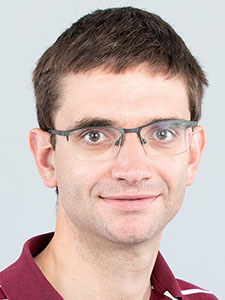
Chris Sayer gained his Ph.D from the University of Exeter in the field of Structural Biology which led on to post-doctoral studies in the field of protein engineering. He then moved into the biotech sector and spent four years at Immunocore engineering soluble TCR therapies. At Abzena, Chris currently works within the protein engineering department working on pre-clinical development of Antibody drug candidates.
Giovanna Scaramuzzino, Software Technical Department Engineer, HSG Engineering
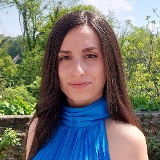
Giovanna Scaramuzzino has a master’s degree in computer science, and she is a software developer for HSG Engineering company. She is passionate about technology and deep learning, which is why she participated in the development of the intelligent fermenter project financed by the Italian Ministry of Economic Development. In her spare time, she enjoys play board games, traveling and having aperitifs with friends.
Peter Schmidt, Director Protein Biochemistry, CSL Research, Melbourne, Australia
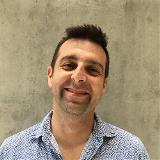
Peter conducted his PhD at Bayer Healthcare in Wuppertal, Germany, in the area of nitric oxide-independent blood pressure regulation. Based on this work, he got awarded an Alexander-von-Humboldt Fellowship to continue his research at the department of Pharmacology at Monash University in Melbourne. He left academia to join CSIRO and, after 4 years, took over the position as Senior Scientist in CSL’s R&D department in Melbourne, Australia. After 13 years in Australia Peter relocated to Germany to run the department of Recombinant Technologies covering all aspects of the early development of new biologics. After his assignment, Peter returned to Australia and is now heading the Protein Biochemistry group at CSL's research site in Melbourne.
Stefan Schmidt, CEO, evitria AG
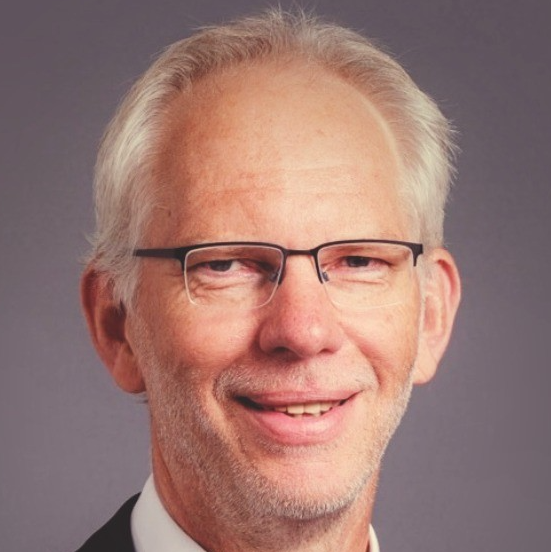
Dr. Stefan R. Schmidt MBA, is CEO at evitria AG, a company dedicated to antibody discovery services in Zürich after leading operations at BioAtrium AG, a joint venture of Lonza and Sanofi in Visp, Switzerland as COO. Previously he held the position as CSO and other senior executive roles at Rentschler Biopharma, Germany with overall responsibilities for biologics development and manufacturing. Before that, he was CSO at ERA Biotech in Barcelona, Spain, directing the company’s R&D efforts based on fusion proteins. Prior to that, he worked at AstraZeneca in Sweden where he led the unit of Protein Sciences within Global Protein Science & Supply as Associate Director. He started his leadership career more than 25 years ago at Biotech companies in Munich, Germany where he built up protein biochemistry teams for Connex and GPC-Biotech. He holds a PhD in Biochemistry from the Julius Maximilians University in Wuerzburg, Germany and an MBA from the University in Gävle, Sweden.
Simone Schmitt, PhD, Vice President, Technology & Operations, Memo Therapeutics AG
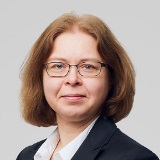
Simone joined Memo Therapeutics AG in 2014 and was instrumental in building MTx’s high-throughput microfluidic antibody platform. Prior to working at MTx, she gained experience in building new technologies during her Scientist position at Delenex Therapeutics, a scFv platform company. Simone obtained her PhD in Protein Biochemistry in the lab of Prof. Dr. Dr. Neupert at the LMU Munich.
Anna Schurich, PhD, Lecturer, Experimental Immunology, King’s College London

Anna obtained her BSc in Medical Microbiology and Immunology from the University of Newcastle upon Tyne, UK and was awarded a PhD in Biomedicine from the University of Bonn, Germany, in Professor Percy Knolle’s lab, where she studied antigen cross-presentation and tolerance induction in the liver. She then moved to the lab of Professor Mala Maini at UCL, UK, working on the regulation of T cell exhaustion in chronic viral hepatitis B patients. In 2017 she was appointed as lecturer in the Department of Infectious Diseases at King's. Her research focuses on the metabolic regulation of human T cell responses in the context of chronic antigen stimulation, such as found in viral infections and cancer. Anna is a founding member and treasurer of the British Society for Immunology (BSI) Immunometabolism Affinity Group
Janine Schuurman, PhD, Biotech Consultant, Lust for Life Science B.V.

Dr. Schuurman’s career centers around the antibody molecule as a biological source of inspiration and therapeutic modality. Dr. Schuurman joined Genmab’s R&D team in 2000 as one of the first scientists-her most recent position being Senior Vice President heading Genmab’s Antibody Research and Technologies. She is a co-inventor of many therapeutic antibodies and of the DuoBody, HexaBody, and HexElect technologies, which enable the generation of bispecific and effector-function enhanced antibodies. These technologies are being applied to antibody therapeutic discovery programs at leading pharmaceutical and biotechnology companies worldwide and have resulted in FDA-approved therapies such as RYBREVANT (amivantamab), EPKINLY (epcoritamab), TECVAYLY (teclistamab), and TALVEY (talquatamab). Dr. Schuurman has championed many successful academic and industry partnerships in antibody therapeutics and complementary research fields. Dr. Schuurman joined The Antibody Society’s Board of Directors in 2020 and currently serves as President of this international, non-profit trade association which represents individuals and organizations involved in antibody-related research and development. Dr. Schuurman is frequently invited to serve as a speaker, as well as a chair, at scientific conferences around the world due to her vision, impactful scientific publication track record, and dynamic presentations. She received her PhD in immunology from the University of Amsterdam. Dr. Schuurman is currently an independent biotech consultant (Lust for Life Science B.V.) and collaborates with many organizations, including Bioqube Ventures and Cartography Biosciences.
Isabelle Sermadiras, Associate Principal Scientist, AstraZeneca
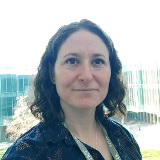
Isabelle Sermadiras is a Biotechnology Engineer trained in Bordeaux, France. Her journey began in Belfast, where she worked as a Purification Scientist at Fusion Antibodies. In 2010, she joined AstraZeneca (formerly MedImmune) as a Protein Engineer and Scientist, contributing significantly to various drug projects involving peptides, monoclonal antibodies, and multispecifics. Recently, Isabelle transitioned from the lab to pursue her passion for data science and computational structural biology.
Andrew Sewell, PhD, Distinguished Research Professor and Wellcome Trust Senior Investigator, Division of Infection and Immunity, Cardiff University School of Medicine

Andrew Sewell initially trained in Chemistry and undertook a PhD in Genetics at the University of Liverpool (1991) before embarking on postdoctoral training at the University of Utah. He returned to the UK in 1995 to research how the HIV virus evades the human immune system at the Nuffield Department of Medicine, University of Oxford where he became a Wellcome Trust Senior Fellow. He relocated to Cardiff University in 2006 and became a Wellcome Trust Senior Investigator and has been continuously Wellcome-funded for over 25 years. His research group focuses on T-cell ligands and the receptors that recognise them (αβTCR, γδTCR, CD4 and CD8). Most of the Sewell laboratory’s recent work is based around understanding the basic biology of antigen recognition by human T-cells using novel pipelines for the discovery of new T-cell targets. Current Sewell group research projects include: Dissection of successful immune responses after successful cancer immunotherapy; TCR gene transfer therapy (TCR-T); Novel CAR-T technologies; T-cell receptor-optimised peptide skewing or the repertoire of T-cells (TOPSORT); Artificial (non-biologic) T-cell antigens as vaccines; T-cell/TCR-based diagnostics in autoimmune disease; and unconventional (non-HLA-restricted) T-cell responses to infection and tumours.
Min Shan, PhD, Medicinal Chemist, Targeted Therapeutics, Merck KGaA
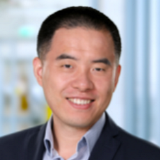
Dr. Shan boasts an impressive tenure exceeding eleven years in early-stage of ADC research, following his postdoctoral and doctoral studies. As the Head of ADC Chemistry, he leads a dynamic team of scientists and technicians who play a pivotal role in spearheading ADC discovery initiatives. The synergy among diverse disciplines, including Biology, Chemistry, Toxicology, and CMC, has culminated in noteworthy milestones. alongside his pivotal contributation on TOPO1i ADCs, his insights also enhance the discovery of groundbreaking linker-payload technologies tailored for Oncology, Immuno-Oncology, and Immunology.
Amir P. Shanehsazzadeh, Artificial Intelligence Scientist, Absci Corp.
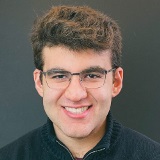
Amir Shanehsazzadeh, Staff AI Scientist, develops generative models for antibodies and works at the interface of AI and wet lab, designing large libraries of antibodies for high-throughput screening. He leads the AI research team at Absci. Prior to joining Absci, he worked on ML-guided AAV capsid design for gene therapy at Dyno Therapeutics and researched ML for proteins at Google Brain, D. E. Shaw Research, and Fox Chase Cancer Center. He graduated from Harvard University, receiving a BA in Mathematics and MS in Statistics.
Yang Shen, PhD, Executive Director Antibody Engineering, Department of Bispecifics, Regeneron
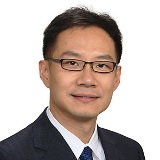
Yang Shen, PhD, joined Regeneron in 2018 and currently serves as Executive Director, Antibody Engineering in Bispecific Department and Co-Chair of Protein Therapeutics, Pipeline & Technology Section. Yang founded Antibody Engineering Group and played an instrumental role in establishing Altibody platform. He and his team work on designing, producing, and screening alternative format molecules to deepen our understanding of biology and create new therapeutic opportunities at Regeneron. He received his PhD in Structural Biology from Columbia University. Prior to joining Regeneron, Yang held increasing roles at ImClone Systems and Eli Lilly between 2008 and 2018.
Arun K. Shukla, PhD, Assistant Professor, Biological Sciences & Bioengineering, Indian Institute of Technology, Kanpur
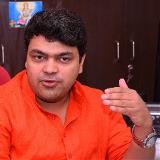
Arun K. Shukla is currently the Joy Gill Chair Professor and senior Fellow of the DBT/Wellcome Trust India Alliance in the Department of Biological Sciences and Bioengineering at the Indian Institute of Technology, Kanpur, India. Before joining IIT Kanpur, he carried out his doctoral research at the Max Planck Institute of Biophysics in Frankfurt, Germany, and his post-doctoral research at the Duke University in Durham, North Carolina, USA. The research program in Dr. Shukla’s laboratory is focused on understanding the structure and function of G Protein-Coupled Receptors (GPCRs), the largest family of cell surface receptors in the human genome and one of the most important classes of therapeutic targets.
Michael Siedler, PhD, Section Head, NBE Formulation Sciences & Process Development, Abbvie Deutschland GmbH & Co. KG

Michael Siedler received his Ph.D. in Solid State Chemistry from the University of Hamburg. In 2002 he started at Scil Technology GmbH as a Lab Head in Formulation and Process Development. In 2007 he joined the Biologics Drug Product Development as a group leader at AbbVie (previously Abbott) in Germany until 2010 when he was appointed Head of the Preformulation and Discovery Support Group at the AbbVie Bioresearch Center in Worcester, MA, USA. In 2014 he became a Section Head in the NBE Drug Product Development at AbbVie GmbH & Co KG, Germany and in 2016 he was assigned Head of the NBE High-Throughput and Advanced Formulation Sciences function.
Renu Singh, PhD, Director & Head, DMPK, Aurigene Oncology
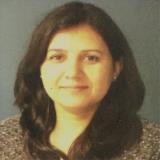
Renu Singh holds a Ph.D in Pharmaceutical Science from the University of Montreal, Canada. Renu also holds a Clinical Pharmacokinetics certification from the University of Georgia. Renu's professional journey is marked by her tenure at distinguished organizations, including GSK, Bristol Meyers Squibb (USA), National Research Council of Canada, AstraZeneca R&D, Montreal (Canada), Charles River Laboratories Preclinical Services, Montreal (Canada), and Daiichi Sankyo Life Sciences Research Centre. She also held the position of Founding Director at Estella Biopharma. Her extensive expertise encompasses various facets of DMPK and early Clinical Development, including ADME, pre‐clinical and early clinical development, PK/PD modelling of small molecules and biologics, DDI prediction, human dose predictions, and ADME studies in clinical development for drug labelling.
Corey Smith, PhD, Principal Research Scientist, Global Biologics Protein Science, AbbVie
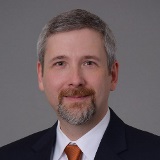
Dr. Corey Smith is a Principal Research Scientist in Cell and Protein Sciences/Biotherapeutics at the AbbVie Bioresearch Center (ABC) in Worcester, MA. He is responsible for protein purification and has specialized in the design, expression, and purification of Virus-Like Particles, enzymes, and protein complexes to advance the Biologics pipeline. Prior to joining AbbVie, he completed his post-doctoral work at UMASS Medical School in Dr. Paul Kaufman’s lab, working on involvement of histone chaperones in replication-coupled chromatin assembly and chromatin association with the nucleolus. His graduate thesis was completed under the guidance of Dr. Craig Peterson, UMASS Medical, where he worked on structural and enzymatic analysis of SWI/SNF chromatin remodeling complexes.
Caroline Soulas, PhD, Senior Project Manager, CMC, Innate Pharma
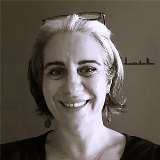
Caroline Soulas, PhD, is a senior project manager at Innate Pharma, Marseille, France, a global, clinical-stage biotechnology company developing immunotherapies for cancer patients. After completing her PhD in Immunology at the University of Geneva, Switzerland, she worked as a postdoctoral researcher in Neuroimmunology at Beth Israel Deaconess Medical Center and Boston College in Boston, MA, USA to study the role of immune cells in neuroAIDS. She has worked at Innate Pharma for over 12 years, first as a scientist, then holding positions as project manager and team leader within the pharmacology department. She is currently a CMC project manager in the pharmaceutical operations department.
Angela Sousa, PhD, Assistant Researcher, CICS UBI, Health Sciences Research Centre, University of Beira Interior
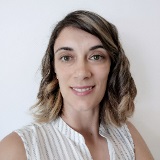
Ângela Sousa completed her PhD in Biochemistry (2011), was awarded two postdoctoral grants (2012, 2015), and is Assistant Researcher at Health Sciences Research Centre, University of Beira Interior (CICS-UBI), Portugal (since 2018) and Invited Assistant Professor at UBI (since 2017). Her research interests include biotechnological processes for the biosynthesis, isolation and purification of biopharmaceuticals (plasmids, and the innovative minicircle DNA) for DNA vaccines and gene therapy approaches against cervical cancer, lung cancer and COVID-19. She is also devoted to biotechnological processes to recombinantly produce HPV E6 and E7 oncoproteins and find potential natural or synthetic drugs (inhibitors) anti-HPV, by in silico (molecular docking), biophysical and in vitro studies.
Laura P. Spector, PhD, Associate Principal Scientist, Bioinformatics, Specifica Inc.

Laura Spector is a Scientist at Specifica, a Q2 Solutions Company in Santa Fe, NM, where she develops bioinformatics solutions to accelerate antibody discovery, including cloud-based software tools for antibody annotation and candidate lead selection. Her work has resulted in several high-impact publications as well as R&D solutions to improve next-generation sequencing of antibody libraries for database development. Prior to joining Specifica, she earned her PhD in Genetics at Stanford University, where she studied genomic factors influencing a virus-mediated gene therapy platform.
Roberto Spreafico, PhD, Director, Discovery Data Science, Genmab
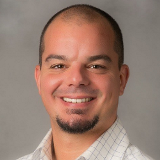
Roberto Spreafico is the Senior Director of Discovery Data Science at Genmab. After earning an MSc in Biotechnology and a PhD in Immunology from the University of Milano-Bicocca in Italy, Roberto spent 10 years in the USA. There, he worked for institutions such as the University of California Los Angeles, Synthetic Genomics, and Vir Biotechnology, where he was the lead computational biologist on the team that developed Sotrovimab during the COVID-19 pandemic. Since returning to Europe, he has held managerial roles at GlaxoSmithKline and Absci before joining Genmab in September 2022. His expertise encompasses immunology, genomics, bioinformatics, and artificial intelligence.
Philipp Spycher, PhD, CEO, Araris Biotech AG

Philipp Spycher is the CSO at Araris Biotech AG. As the inventor of the Araris ADC Technology, he has a profound background in Bioconjugation and ADCs. He was the founder CEO, positioning Araris to shift the paradigm in how to think about developing targeted cancer therapies. During his post-doctoral work at the Paul Scherrer Institute (PSI, Switzerland), he introduced the novel approach using transglutaminases for antibody conjugation that led to the discovery of the Araris ADC Technology. Philipp won the PSI Founder Fellowship as well as several other prices and grants to commercialize the technology. He obtained his Master’s Degree and Ph.D. from ETH Zurich (Switzerland) at the interface of Material Science and Protein Engineering.
Pawel Stocki, PhD, Vice President Research, Ossianix
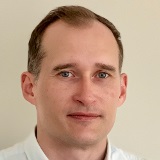
Heading antibody discovery and engineering at Ossianix since 2015. We are utilising single domain antibodies to tackle the problem of brain delivery of therapeutic payloads across the blood-brain-barrier. Prior to joining Ossianix, I was working at Medimmune on intracellular delivery of biologics and as Research Director at Psynova Neurotech.
Elliott J. Stollar, PhD, Lecturer, Biochemistry, University of Liverpool
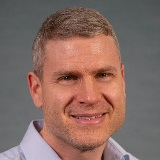
I am a Senior Lecturer in Biochemistry at the University of Liverpool's School of Biosciences, where I also serve as the programme director for the biochemistry degree. Previously, I held positions including Associate Professor of Biochemistry at Eastern New Mexico University (2010-2017), Assistant Professor at Mount Allison University (2008-2010), and completed post-doctoral research at the University of Toronto (2004-2008) after obtaining my PhD from Cambridge University (1999-2004). I have diverse experience including roles as an English and Chemistry Teacher in Jalisco, Mexico (1998-1999), a Research Scientist at GlaxoSmithKline (1996-1997), and as an undergraduate at Leeds University (1994-1998). My research focuses on utilizing biophysical tools to investigate protein structure, dynamics, and interactions, with a particular emphasis on understanding protein interaction specificity. Additionally, I am passionate about pedagogical research aimed at enhancing student success in laboratory settings.
Rocky Strollo, MD, PhD, Associate Professor, Endocrinology, San Raffaele University of Rome
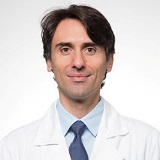
After graduating in Medicine at Campus Bio-Medico University of Rome in 2008, I have carried out a PhD at Queen Mary University of London under the supervision of Prof. Ahuva Nissim (from 2010 to 2014) and then a medical specialization in Endocrinology and Metabolic Diseases under the supervision of Prof. Paolo Pozzilli (from 2012 to 2016). Currently, I am Associate Professor of Endocrinology at San Raffaele University of Rome. My primary research activity aims to investigate the role of oxidative post-translational modifications of insulin and other beta cell antigens in the pathogenesis of type 1 diabetes. The final objective is to develop novel diagnostic biomarkers and target therapies for cure or prevention of type 1 diabetes, based on oxidative modifications of insulin. Main achievements of my research include the identification of antibody and T cell responses towards neo-antigenic insulin peptides induced by oxidative modifications. I have received several national and international awards, and since 2013, my research has been supported by competitive grants founded by the European Foundation for the Study of Diabetes, the Juvenile Diabetes Research Foundation, the Italian Ministry of Health and the Italian Ministry of University. Additional research activities are focused on: i) the effect of obesity and diabetes on bone metabolism; ii) the effect of glucose on immune response to SARS-CoV-2 as well as biomarkers of COVID-19 severity in patients with diabetes or obesity
Manhee Suh, CTO, R&D, KACTUS
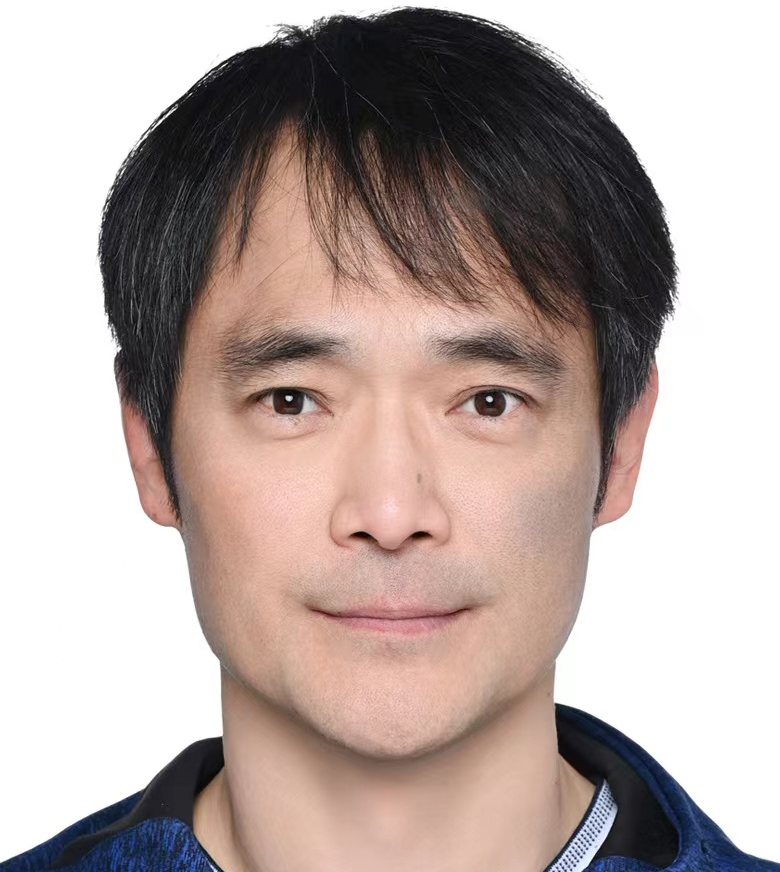
ManHee Suh, Ph.D., is the CTO of Kactus Biosystems. Dr. Suh is a protein biochemist with expertise in assay development and structural biology. At Kactus Biosystems, he leads the development and engineering of antigens for antibody drug discovery and the IVD industry.
Danijel Svec, Research Assoc, Operations, ExcellGene SA
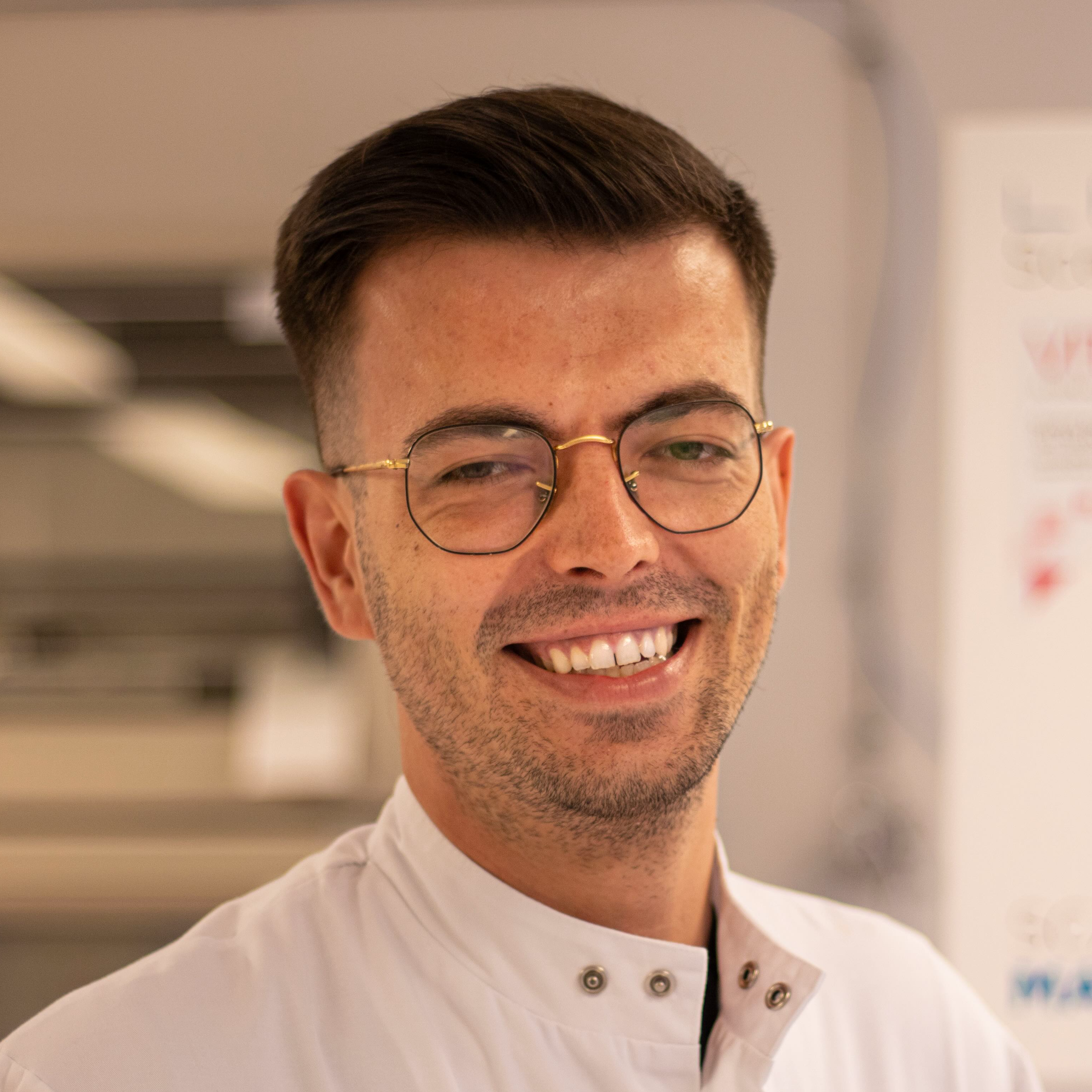
Danijel Svec earned a Master’s degree in Molecular Biotechnology from the University of Zagreb, Croatia, in 2020. He completed his research at the Ruder Boskovic Institute, Croatia’s leading scientific institution in natural and biomedical sciences, under the mentorship of Prof. Andreja Ambriovic Ristov in the Laboratory for Cell Biology and Signalling. During this time, he gained expertise in transient gene expression, gene silencing, and viral production. His thesis contributed to a scientific publication, providing new insights into the viral entry mechanism of human Adenovirus AdV26 and the development efficiency of the Ad26-based vaccine vector platform. In 2021, Danijel joined ExcellGene as a Research Associate, where he has focused on the pre-clinical development of HEK-based processes for AAV production. He further advanced HEK-based cell line development and manufacturing process. Due to his efforts, the HEK-based platform was successfully incorporated into ExcellGene’s operational activities in 2022, delivering stable HEK cell lines with yields of up to 7 g/L, significantly advancing the HEK-based manufacturing. Danijel now serves as the Senior CLD Scientist and Project Team Leader, overseeing HEK-related activities.
Hristo Svilenov, PhD, Associate Professor, TUM
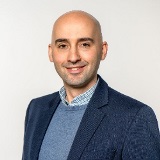
Dr. Svilenov is currently an Associate Professor at the Technical University of Munich. His research interests are in the development, formulation and manufacturing aspects of biotherapeutics. Before joining TUM, Dr. Svilenov was Associate Professor at Ghent University. Previously, he was a postdoctoral researcher funded by a Peter and Traudl Engelhorn Fellowship and a grant from the Else Kröner-Fresenius Foundation in the group of Prof. Johannes Buchner at the Technical University of Munich. From 2016 to 2019, Dr. Svilenov did his PhD training supported by a Marie Sklodowska-Curie Fellowship under the supervision of Prof. Gerhard Winter at the Ludwig Maximilian University of Munich. He defended his doctoral thesis with the highest distinctions in Germany (summa cum laude) and received the AbbVie prize and the Carl-Wilhelm-Scheele of the German Pharmaceutical Society for his work. Dr. Svilenov is a pharmacist by training.
Li Tang, PhD, Associate Professor, Institute of Bioengineering (IBI) / Institute of Materials Science & Engineering (IMX), école polytechnique fédérale de Lausanne (EPFL)
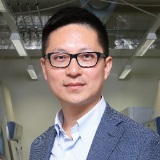
Li Tang received his B.S. in Chemistry from Peking University, China, in 2007, and Ph.D. in Materials Science and Engineering from University of Illinois at Urbana-Champaign, USA, in 2012, under the supervision of Prof. Jianjun Cheng. He was an CRI Irvington Postdoctoral Fellow in the laboratory of Prof. Darrell Irvine at Massachusetts Institute of Technology during 2013-2016. He joined the faculty of Institute of Bioengineering, and Institute of Materials Science & Engineering, at école polytechnique fédérale de Lausanne (EPFL), Switzerland, as a Tenure-Track Assistant Professor in 2016, and promoted to Associate Professor with tenure in 2022. His research focuses on developing multidimensional immunoengineering approaches for enhanced cancer immunotherapies. Dr. Tang is the recipient of Cancer Research Institute CLIP Award (2021), Anna Fuller Award (2021 and 2022), and named in the MIT Technology Review’s "Top 35 Innovators under Age 35" list of China region (2020), Materials Horizons Emerging Investigator (2020), Biomaterials Science Emerging Investigator (2019), and the recipient of European Research Council (ERC) starting grant (2018), and Nano Research Young Innovator Award (NR 45 under 45) (2018).
Evgeny Tankhilevich, Scientist, Andrew Leach Group, Chemical Biology Services, EMBL EBI
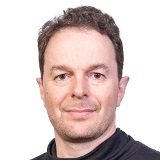
I am a postdoc at EBI, working on a project in collaboration with AstraZeneca and SGC. My research interests are in using AI for modelling chemical and biological systems. Prior to doing a masters and a PhD in bioinformatics at Imperial College London, I had worked for many years in financial sector IT. When not working and not looking after my young son, I like to spend my free time outdoors.
Maria Themeli, PhD, Assistant Professor, Hematology, Vrije University Amsterdam
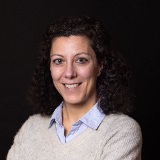
Dr Themeli studied Medicine in the University of Patras, Greece. After graduating, she did her PhD at the Bone Marrow Transplantation laboratory at the University of Patras Medical School studying the long-term biological consequences of GvHD in epithelial tissues after allogeneic hematopoietic cell transplantation. After completing her PhD training, Dr. Themeli joined the lab of Dr. Michel Sadelain at Memorial Sloan Kettering Cancer Center in New York. There she trained in the design and development of chimeric antigen receptor-engineered T cells (CAR T) and reported for the first time the use of induced pluripotent stem cells (iPSC) as an off-the-shelf source of therapeutic CAR T cells. In 2015. joined the department of Hematology at Amsterdam UMC-location VUmc, where, in 2017, she became Assistant Professor. Her research efforts focus on two different but related goals, connected by the global aim of developing next-generation cancer immunotherapy with CAR T cells: the broadening of its applicability and the improvement of efficacy and safety. Dr. Themeli has received several prestigious fellowships and awards such as: NYSCF Druckenmiller fellowship, ASH/EHA TRTH Career development award, Marie Curie individual fellowship and Innovation award from Argo-the Brussels Hellenic Network.
Gareth J. Thomas, PhD, Professor, Experimental Pathology, School of Cancer Sciences, Faculty of Medicine, University of Southampton
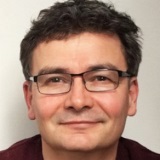
Gareth Thomas is Professor of Experimental Pathology at the University of Southampton and a clinical pathologist at University Hospital Southampton. His laboratory works on the tumour microenvironment, investigating the role of cancer-associated fibroblasts (CAF) in promoting tumour progression and treatment resistance. His lab uses a variety of technologies including 3D organoids, murine models, and ex vivo single cell transcriptomics to characterise CAF phenotype and function, investigating functional interactions with immune cells and identifying targetable pathways to overcome CAF-mediated immunotherapy resistance.
Sophie Tourdot, PhD, Immunogenicity Sciences Lead, BioMedicine Design, Pfizer Inc.
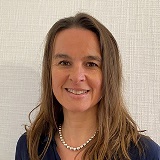
Sophie received her PhD in T cell vaccine immunology from the Université Paris Cité, France. Following her postdoctoral trainings at Imperial College London, she worked at the Pasteur Institute on HIV vaccine design, then progressed to Stallergenes-Greer and ITS. There, she led the pre-clinical immunology teams, assessing respiratory allergic diseases desensitization immunotherapy and vaccines for infectious diseases, respectively. She transitioned to the French National Research Institute for Health and Medical Research in 2012 as a key leadership member of the IMI-funded ABIRISK project, a consortium focused on the analysis of underlying biological mechanisms, clinical relevance, and prediction of unwanted immunogenicity of biopharmaceuticals. Sophie joined Pfizer’s BioMedicine department in 2017 where she now leads the Immunogenicity Sciences group, in charge of immunogenicity risk assessment of Pfizer biologics portfolio at all stages of development. She also acts as Director of Scientific Affairs for the European Immunogenicity Platform.
Mark Trautwein, PhD, Head of Immunoprofiling, Biologics Research, Bayer AG
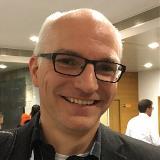
Mark Trautwein is an accomplished Leader in Biologics Drug Discovery and Development with more than 15 years’ experience. Mark obtained his doctorate in biochemistry from University of Tübingen, Germany. In 2008, Mark joined Bayer to establish mammalian protein expression platforms spanning the production of protein therapeutics, antigens, antibodies, and multispecifics, as well as cell line development. Mark has a track record of successfully advancing projects with different degrees of maturity within oncology as well as ophthalmology, comprising mAbs, antibody-drug conjugates, radioimmunoconjugates and various other formats. Mark has since then also grown an expert in Antibody Discovery, Optimization & Engineering. He is currently Head of Immunoprofiling Group, focusing on antibody effector function, immunogenicity research and experimental immunology.
Leendert A. Trouw, PhD, Professor, Department of Immunology, Leiden University Medical Center

During my career, I have continuously focused on complement and (auto)antibodies. In my PhD-studies I became fascinated by the pathological consequences of complement and autoantibodies and was the first to show the pathogenicity of anti-C1q autoantibodies (J.Clin.Invest.2004). My post-doc studies in Sweden, revealed the importance of complement-inhibitors binding to free-DNA and dead cells (J.Exp.Med.2005). Subsequently, I choose to work (supported by a Veni-grant) in the Dept. of Rheumatology, LUMC, to implement obtained knowledge on complement and autoantibodies in a clinical setting. Several autoantibodies are known in Rheumatoid Arthritis but in 2011, with my team, I discovered a new autoantibody recognizing carbamylated-proteins (Proc.Natl.Acad.Sci.2011). During the last five years, using my Vidi-grant, I have unravelled the anti-CarP antibody response in depth and observed that they are present years before disease onset and are associated with development of RA and with disease severity. The predictive, diagnostic and prognostic properties have now been replicated in several international studies and following patenting, a commercial test is now being developed. How autoantibodies contribute to arthritis is still unknown, but I have demonstrated the complement activating potential of RA-associated antibodies. With my ERC-grant, we study the role of complement in autoantibody responses develop against modified self-proteins. In addition, I planned to use my expertise in complement and autoantibodies to develop modified-autoantibodies as therapeutics. Therefore, I have moved my group from the Rheumatology to the Immuno-Haematology (LUMC), one of the top Dutch immunology departments focusing on multiple disease areas, allowing a broad implementation of our findings.
Isabelle Turbica, PhD, Associate Professor, Biotechnology, School of Pharmacy, Paris-Saclay University, France
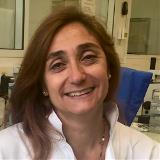
Dr. Isabelle Turbica serves as Assistant Professor in Biotechnology at the School of Pharmacy of Paris-Saclay University since 2002, with skills that focus on therapeutic protein engineering and production. In particular, she is in charge of the Master's degree “Pharmaceutical Biotechnology and Advanced Therapies”. Isabelle performs her research work as a member of INSERM 996 “Inflammation, Microbiome, and Immunosurveillance” Laboratory. Her field of interest deals with the immunogenicity of biotherapeutics, as she develops cellular models to assess the potential of aggregated therapeutic proteins to induce immune responses. She’s now interested in the description of cellular mechanisms involved in the activation of dendritic cells by the aggregates, along with the description of the switch towards adaptive immune responses, allowing the production of anti-drug antibodies. As such, she was part of the European consortium ABIRISK (Anti-Biopharmaceutical Immunization: prediction and analysis of clinical relevance to minimize the RISK, receiving support from the Innovative Medicine Initiative, 2012-2018). She is currently part of the French program France 2030, within the consortium ACCREDIA (ACCelerating Research for Early Development of Innovative Antibodies).
Obinna C. Ubah, PhD, Principal Scientist & Programme Lead, Elasmogen Ltd.
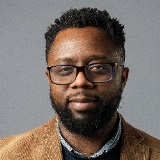
Obinna leads the immunology drug discovery and development at Elasmogen Limited. He holds a PhD in Molecular Biology and Antibody, and has more than a dozen peer reviewed publications and several patents.
Sandra Uhlenbroich, PhD, Associate Director, Biology, Bicycle Therapeutics
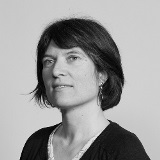
Sandra Uhlenbroich is Associate Director at Bicycle Therapeutics which she joined in 2019. Having previously led a team leveraging Bicycle’s unique phage-display platform to advance Bicycle’s internal oncology pipeline and partnered programs, Sandra currently oversees the internal early-stage project portfolio as Discovery Project Leader. Prior to joining Bicycle Therapeutics, Sandra worked at F-star Therapeutics where she led bispecific antibody immune-oncology projects up to candidate stage. She holds a PhD in Biochemistry from the University of Toulouse (France).
Joost Uitdehaag, PhD, Head of Biology, Crossfire Oncology
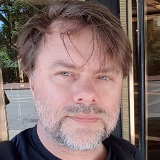
Joost Uitdehaag is an accomplished expert in oncology drug discovery, both in the antibody and small molecule field. Before joining Crossfire Oncology, he led early discovery teams at Schering-Plough, MSD and AstraZeneca. He is founding member of an oncology-based biotech company, and chaired the development team at LAVA Therapeutics that brought a bispecific antibody into Phase I. As Head of Biology at Crossfire, he is bridging the targeting possibilities of small molecule oncology with the high therapeutic window of antibody therapies by developing new degrader-antibody-conjugates.
Marjolein van Egmond, PhD, Professor, Oncology and Inflammation, Surgery/Molecular Cell Biology and Immunology, Amsterdam UMC
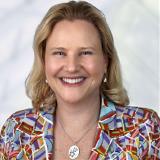
The research group of Dr. van Egmond studies antibody activation of innate myeloid immune cells, macrophages and neutrophils, with emphasis on understanding the role of immunoglobulin A (IgA) in physiology and pathology. Her research focuses specifically on (1) the contribution of abnormal antibody responses to chronic inflammation and autoimmunity and (2) monoclonal antibody therapy of cancer. Dr. van Egmond’s research is highly translational and she has a cross appointment with the Department of Surgery and the Department of Molecular Cell Biology and Immunology, to facilitate the rapid progression of preclinical findings into clinical applications.
Mireille Vankemmelbeke, PhD, Principal Scientist, Biodiscovery, Scancell, Ltd.
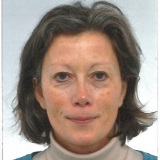
After graduating from the University of Ghent, Belgium (BPharm), I gained a PhD in Biochemistry at the University of Sheffield Medical School, in 2001. This was followed by several post-doctoral positions, spanning extracellular matrix biology, as well as bacterial toxin research, before joining Professor Durrant’s cancer immunotherapy lab, generating cancer-targeting anti-glycan antibodies. This led to a research programme on antibody Fc-engineering, after which I swapped Academia for Biotech by joining Scancell Ltd. In my current role, I oversee Scancell’s cancer glycan-targeting antibody products (GlyMabTm), and the AvidiMab technology for improved antibody functionality.
Riccardo Vannacci, Managing Director, Operation, HSG Engineering
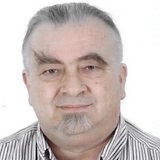
Electrotechnical Engineer with Software degree. Working in Pharmaceutical Market since 1996. Working in HSG since 2009 as Director and starting from 1 April 2024 as Managing Director. Strong experience in data analysis. Married, two daughters, two cats, and in my free time I like to cook and drink good wine.
Vedran Vasic, PhD, Scientist, Pharma Research and Early Development (pRED), Roche
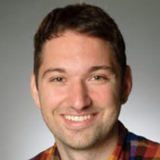
Vedran Vasic is a Scientist in the Large Molecule Research division at Roche Pharma Research and Early Development (pRED) in Penzberg, Germany. His work focuses on protein and antibody engineering, bi- and multi-specific antibodies, and conditionally active antibody derivatives. Vedran joined Roche pRED in 2020 as a Roche Postdoctoral Fellow (RPF), where he developed novel platforms for conditional activation of bispecific antibodies and antibody-cytokine fusions. Before joining Roche, he completed his PhD at the Max Planck Institute for Biophysical Chemistry in Göttingen, Germany. During his PhD, he investigated molecular pathways involved in protein quality control at the endoplasmic reticulum, with a focus on membrane protein biochemistry.
Maria-Dolores Vazquez-Abad, PhD, Vice President, Clinical Immunogenicity, Pfizer Inc.

Dr. Vázquez-Abad is recognized as a skilled teacher and mentor; through over two decades at Pfizer she has created and presented educational materials to colleagues at Pfizer and to external audiences covering topics such cytokine signaling, immunogenicity, drug development process, immuno-oncology, and mechanism of action of drugs. Some of her talks are available in her YouTube Channel. Dr. Vázquez-Abad graduated as a medical doctor from the National Autonomous University of Mexico (UNAM). She began her career providing patient care in socially marginalized communities around Mexico City’s “poverty belt” and later she spent a year as a resident in the Southeast Jungle of Mexico, living among and treating underserved communities. She did her residency in Internal Medicine at the Hospital de Petróleos Mexicanos in Mexico City and her rheumatology fellowship at the National Institute of Cardiology in Mexico. She further trained in cellular, humoral, and molecular immunology at University of Texas Southwestern, and Cold Spring Harbor Laboratories, NY USA completing a post-doctoral fellowship in rheumatology at the University of Connecticut Health Center in the USA, where she became an Assistant Professor until joining Pfizer in 1998 as clinical lead and in 2007 she was the Inflammation Therapeutic Area Clinical Lead, managing a portfolio of over 15 compounds. From 2009 to 2014 she became the development lead of the inflammation portfolio for the Emerging Market countries. In 2014 she became Vice President, Chief Medical Officer of the Immunoscience Research Unit in Pfizer at Cambridge, Massachusetts, and later Chief Medical Head of Clinical Research, at the Immunology and Inflammation Research Unit. In 2015, she joined the Biosimilars teams as Head of Clinical and in 2019, she became the I&I Global Clinical Lead across the Biosimilars portfolio; in 2022 she became Medicine Team Leader, Clinical Immunogenicity, Pfizer, Cambridge, MA, leading the Immunogenicity Clinical Interpretation and she co-chairs Immunogenicity Advisory Council at Pfizer.
Rodrigo Vazquez-Lombardi, PhD, Co-Founder & CSO, Engimmune Therapeutics AG
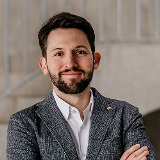
Rodrigo Vazquez-Lombardi is co-founder and CSO of Engimmune Therapeutics. His research for over a decade has focused on the molecular engineering and development of immunotherapies including cytokine, antibody and T cell receptor (TCR) therapeutics. During his doctoral studies, Rodrigo discovered a novel mechanism of action of interleukin-2-Fc fusion proteins against cancer, namely Treg depletion. As a PHRT Postdoctoral Fellow at ETH Zurich, he established the TCR-Engine platform combining CRISPR-Cas9 genome editing, mammalian display, deep sequencing and computational methods for TCR engineering, as well as additional platform technologies now licensed to Engimmune, which he co-founded in August 2021. As CSO at Engimmune, he leads a multidisciplinary team applying AI-guided engineering of soluble TCR therapeutics for oncology indications of high unmet medical need. Rodrigo holds a BSc (Hons I) degree from the University of Sydney and a PhD from the University of New South Wales (Garvan Institute).
Salvador Ventura, PhD, Full Professor, Institute of Biotechnology and Biomedicine, Autonomous University of Barcelona
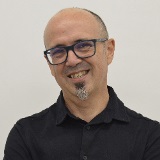
Salvador Ventura is Full Professor at the Dept. of Biochemistry and Molecular Biology and leader of the Protein Folding and Conformational Diseases group at the Institute of Biotechnology and Biomedicine (IBB), Autonomous University of Barcelona (UAB). He has been director of the IBB in 2017-20. He has authored >270 peer-reviewed research and review papers, >20 book chapters, and 17 patents. He got his Ph.D. in Biology at the UAB in 1998 and worked as postdoctoral fellow (1999-2002) at EMBL-Heidelberg. He has been researcher at Harvard Medical School (USA) and Karolinska Institutet (Sweden) among other centres. He rejoined UAB as a Ramon y Cajal researcher in 2003. Dr. Ventura received the UAB 2008 Excellence Research Award, the Bruker Prize "Manuel Rico" 2020 from the Spanish Biophysical Society, the 2009, 2015, and 2020 ICREA-Academia Awards in Life Sciences and Medicine, the UAB 2022 Transference Award and the 2022 Narcis Monturiol Medal and is a member of Academia Europaea. He is co-founder of Eureka NanoBioEngineering.
Yvonne Vercoulen, PhD, Assistant Professor, Molecular Cancer Research, University of Utrecht
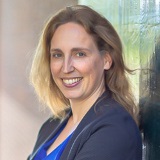
Yvonne Vercoulen is a principal investigator and associate professor at the Center for Molecular Medicine of the UMC Utrecht and a member of the Utrecht Young Academy. Throughout her career she has developed a fascination for immune regulation and aims to understand how errors result in tissue inflammation and cancer. She trained as a PhD student in T cell immune regulation at Utrecht University, and as a Marie-Curie international postdoctoral fellow in T cell receptor signal transduction at UC San Francisco. Dr. Vercoulen’s team at the UMC Utrecht works at the interface of immunology and cancer to identify cellular and molecular underpinnings of disease using spatial omics technology. The Vercoulen lab asks fundamental questions to, for example, understand how immune cells contribute to cancer development, prognosis and therapy response. The team has developed multiplex spatial analyses technology integrating microscopy with imaging mass cytometry and applies both protein and spatial RNA multiplex analyses to investigate the interplay between different cell types in the tissue. Studying tissue and intercellular communication in the tumor microenvironment is essential to understand the mechanisms of disease and therapy response. Dr. Vercoulen’s team collaborates closely with clinicians and researchers from multiple disciplines and strives to drive the field of spatial tissue biology forward and bring this to a level of clinical application.
Rosa Louise Vincent, PhD, Postdoc, Rooney Lab, Baylor College of Medicine

Rosa recently earned her PhD from the Danino lab at Columbia University in New York, NY. She is currently a Postdoctoral Research Fellow with Dr. Cliona Rooney and Dr. Malcolm K. Brenner at Baylor College of Medicine in Houston, Texas. Her doctoral research generated a new strategy for solid tumor recognition by integrating the antigen-independent specificity of tumor-colonizing bacteria with the cytotoxicity of engineered T cells. Rosa is passionate about developing the interface between microbes and human immune cells to innovate new cell therapies for cancer treatment and beyond.
Jessica Vogel, Associate Scientist, BPD VVPD, CSL Innovation GmbH
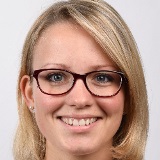
Jessica Vogel is a key member of the team at CSL Innovation GmbH, where she works on the development of downstream processes for lentiviral vectors. After completing her apprenticeship in 2013, she began her career in recombinant process development. In 2020, Jessica made the switch to the lentiviral process development lab, where she also completed her Bachelor's degree. In addition to process development, Jessica is responsible for downstream scale-up and process transfer to the production sites. Jessica holds a Bachelor of Science in Molecular Biology from the Johannes-Gutenberg-University in Mainz.
Bjørn Voldborg, MSc, Head, National Biologics Facility, DTU Bioengineering, Technical University of Denmark

Bjørn Voldborg has more than 20 years of experience working with recombinant protein expression from both academic and industrial settings. Bjørn was team leader in the biotech company Pharmexa A/S, responsible for molecular cloning and expression of protein-based drug candidates. From this, he went to the NNF Center for Protein Research at the University of Copenhagen as Head of the Protein Production Unit, and, since 2012, Bjørn has been heading the CHO Cell Line Engineering project dedicated to the engineering of improved protein production cell factories, and since 2021 he has been heading the Cell Line and Protein Production in the National Biologics Facility at the Technical University of Denmark.
Eric Voltà Durán, PhD, Postdoctoral Investigator, Institut de Biotecnologia i Biomedicina, Universitat Autònoma de Barcelona
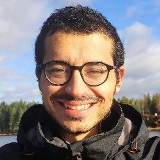
Eric Voltà-Durán graduated in biotechnology in 2018 and pursued Master studies in advanced nanoscience and nanotechnology (2019). He obtained his PhD in Biotechnology in 2023, under the title of “Exploring and exploiting multi-domain recombinant proteins as targeted nanomedical tools”. He is a young, early-stage researcher working at the Nanobiotechnology group, a team led by Professor Antonio Villaverde and Dr. Esther Vázquez at Autonomous University of Barcelona. As a postdoctoral researcher, he is currently focused on the design and production of proteins with biomedical interest, especially in the context of targeted therapies. He is coauthor of 25 scientific papers, most of them products of his intense collaboration with international researchers and other excellent Spanish groups in the context of CIBER-BBN, a consortium to which he belongs. His research on targeting cancer-associated fibroblasts has also contributed to the generation of one patent.
Sasa Vrhovec Hartman, PhD, Senior Expert, Science & Technology R&D, Novartis Pharma Services Inc.
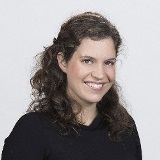
Sasa Vrhovec Hartman earned her PhD in Biomedicine from the University of Ljubljana, Slovenia, with a focus on theoretical and experimental biophysics of lipid membranes and microfluidics. In 2022, she joined Novartis and currently holds the position of Senior Expert Science Technology in Process Analytical Expert team, based in Slovenia.
E. Sally Ward, PhD, Director, Translational Immunology; Professor, Molecular Immunology, Centre for Cancer Immunology, University of Southampton
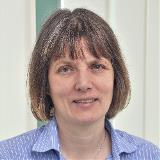
Sally Ward completed her PhD research in the Department of Biochemistry at Cambridge University in 1985 under the mentorship of Professor David Ellar. From 1988 to 1990, she carried out research on antibody repertoire technology in Sir Greg Winter’s laboratory at the MRC Laboratory of Molecular Biology in Cambridge. In 1990 she joined the University of Texas Southwestern Medical Center, Dallas, as an Assistant Professor. From 2002-2014, she was a Professor in the Department of Immunology at the same institution and in 2004 was appointed to the Paul and Betty Meek-FINA Professorship in Molecular Immunology. Since 2014, she has been a Professor at Texas A&M University Health Science Center, and has recently been appointed as Director of Translational Immunology and Professor of Molecular Immunology at the Centre for Cancer Immunology in Southampton, U.K. In 2010, she was a founding co-organizer of the Gordon Research Conference ‘Antibody Biology and Engineering’. She is currently vice president of the Antibody Society. Her interdisciplinary research involves the use of a combination of fluorescence imaging, protein engineering and in vivo studies to develop antibody-based therapeutics to treat cancer and autoimmunity.
Christopher Wassif, PhD, Director, Molecular Engineering & Antibody Technologies, AstraZeneca
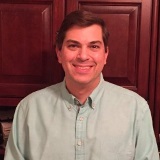
Dr. Christopher Wassif has a wide breadth of knowledge having spent 27 years working at the National Institutes of Health, Bethesda, USA in the fields of Genetics, Rare Diseases, Biomarker discovery/validation, and high throughput small molecule screening. With 90 plus peer reviewed manuscripts and multiple book chapters he is a well-respected leader in multiple fields of research. In 2022, Dr. Wassif transitioned to AstraZeneca as Director of Molecular Engineering and Antibody Technologies and global lead for the Machine Learning for Antibody and Biologics (MLAB). In his current role he leads a dynamic team of scientist converging the powers of AI/ML to facilitate and accelerate biologic discovery.
Sarah Wehrle, PhD, Research Scientist, Engimmune Therapeutics
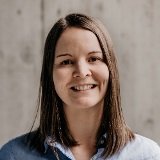
Research scientist at Engimmune Therapeutics since 2022. PhD thesis at EPFL in protein design and immunoengineering.
Jennifer Wei, PhD, Machine Learning Software Engineer, OpenFold
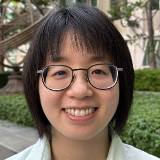
Jennifer Wei is an expert in the applications of machine learning to chemical and biological sciences. She earned her PhD from Harvard University in Chemical Physics, for her dissertation, she developed machine learning algorithms for reaction prediction and mass spectrometry. She later joined Google Brain Research where she developed models for chemical olfaction, mosquito repellency, and nanobody functionality. Jennifer is now lead software engineer on the OpenFold Project, building open source machine learning models for protein structure prediction.
Benjamin Weiche, PhD, Senior Scientist, Large Molecule Research, Biochemical & Analytical Resaerch, Roche Innovation Center Munich
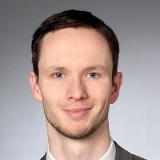
Background in biochemistry and over 7 years of experience in biologics analytics covering research and development in Biotech and Big Pharma. Particularly involved in setting up and validating meaningful Developability assessment platforms and with a strong interest in using data science and automation to get the most out of our assays and analytical results for early and late stage biologics development.
Nina E. Weisser, PhD, Director, Multispecific Antibody Therapeutics, Zymeworks, Inc.
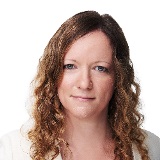
Nina Weisser is Director of Multispecific Therapeutics at Zymeworks where she leads a research team in the development of multispecific antibody therapeutics with a focus on mechanism of action studies. Since joining Zymeworks in 2012, she has led several research programs, including zanidatamab from discovery to early development. She received her PhD from the University of Guelph and held a post-doctoral fellowship at the National University of Ireland, Galway.
Maria Wendt, PhD, Global Head and Vice President, Digital and Biologics Strategy and Innovation, Sanofi
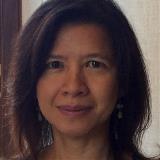
No bio available.
Trevor Wilkinson, PhD, Director, Biologics Engineering, AstraZeneca
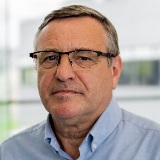
Trevor is Director in the Department of Biologics Engineering at AstraZeneca. In this role Trevor is responsible for the Protein Sciences Technology Platform Team which delivers high quality Target Proteins and Engineered Cell Lines to Biologics Projects across diverse therapy areas. His previous positions include Associate Director of Protein Sciences at MedImmune, Head of Protein Sciences at Cambridge Antibody Technology and Biochemistry Team Leader at Roche Products Ltd. Trevor holds a PhD in Protein Biochemistry from the University of Southampton and an MBA from the University of Hertfordshire.
Christopher Wood, PhD, Lecturer in Biotechnology, School of Biological Sciences, University of Edinburgh
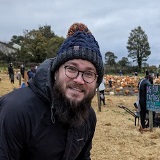
Chris took his undergraduate degree in Molecular and Cellular Biology at the University of Glasgow. He then went on to undertake a PhD and postdoc in the lab of Professor Dek Woolfson, where he worked on developing and applying tools for computational protein design. In 2018, he was awarded an EPSRC postdoctoral fellowship and moved to the University of Edinburgh to establish his research group. In 2020, he attained a permanent position in the School of Biological Science as a Lecturer in Biotechnology, before being promoted to Senior Lecturer in 2024.
Rachel Woolley, PhD, Principal Scientist, Protein Engineering, Etcembly Ltd
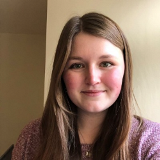
Rachel Woolley, PhD, is a protein scientist with background in structural immunology and GPCR biology. Extensive experience in expression, purification and characterisation of soluble, membrane and disordered proteins. Skillset includes a wide range of biophysical and structural techniques including FSEC, BLI, cryo-EM, LCP and vapour diffusion X-ray crystallography.
Jiansheng Wu, Head of CRO Services, VP, WuXi Biologics
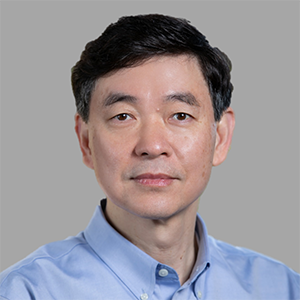
Dr. Wu is the head of the Protein Sciences department, responsible for operations and strategy. Prior to WuXi Biologics, he worked for more than 15 years at Genentech and Celera on over 50 drug development programs. His expertise includes automated expression, purification, and characterization of diversified proteins such as antibodies, antigens, enzymes, and complex recombinant proteins. Dr. Wu received his Ph.D. from Shanghai Institute of Biochemistry and his Post-Doctoral at UCLA.
David Yadin, PhD, Principal Scientist, Research, Alchemab Therapeutics
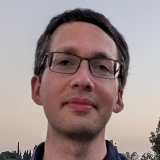
David is a Principal Scientist at Alchemab Therapeutics with 15 years of experience in both academia and industry. While working in biopharmaceutical companies, he has developed expertise in antibody discovery, biologics engineering and next generation sequencing technologies. At Alchemab, he has been integral to building and innovating the platform. He leads a team working on advanced methods for sequencing patient immune repertoires and identifying antibody targets.
Bei-Wen Ying, PhD, Associate Professor, Life & Environmental Sciences, University of Tsukuba
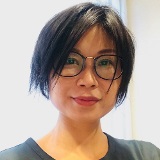
Dr. Bei-Wen Ying has over 15 years of interdisciplinary research experience. Her latest work focuses on discovering the law in cell growth using data science approaches, particularly in applying machine learning models to optimize cell culture media. Dr. Ying completed her Ph.D. in Biosciences from the University of Tokyo and worked at CNRS (France) and Osaka University (Japan) before having her lab at the University of Tsukuba (Japan). She published over 50 peer-reviewed papers, primarily as the first or corresponding author, and serves as the editorial board member for multiple highly reputed journals. She leads a team dedicated to acquiring big data from biological experiments to improve the cell growth of both bacteria and mammals. Dr. Ying is also an active mentor for the young academic and industrial scientists entering the field.
Kevin Zen, PhD, Senior Director, IGM Biosciences
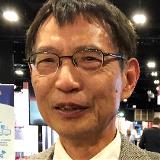
Kevin has over 20 years of broad experience in Biologics CMC, and Strategic and Technical Operations. Prior to joining IGM Biosciences, he held various positions in biologics CMC disciplines at Allergan, AnaptysBio, AstraZeneca, Becton Dickinson, and Catalent Biopharma Solutions. In addition to developing therapeutic biological products in-house, Kevin also had extensive experience working with external contract manufacturing organizations (CMO) and contract research organizations (CRO), including production cell line development, bioprocess development, DS/DP cGMP manufacturing, process characterization, process performance qualification (PPQ), formulation development by DoE, analytical procedure development and method validation, reference standard qualification, extended characterization, and CMC analytical comparability.
Yang Zhang, PhD, Professor, Department of Computer Science, Institute of Singapore; Department of Biochemistry, Yong Loo Lin School of Medicine, National University of Singapore
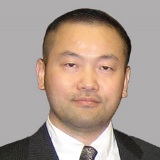
Dr Yang Zhang is a Professor in the Department of Biochemistry at the Yong Loo Lin School of Medicine, National University of Singapore (NUS). He also serves as a Professor and Senior PI in the Department of Computer Science at the School of Computing, and the Cancer Science Institute of Singapore, NUS. Prior to joining NUS, Dr Yang Zhang worked as a Professor in the Department of Computational Medicine & Bioinformatics, the Department of Biological Chemistry, and the Department of Macromolecular Science & Engineering, University of Michigan. The research interests of the Zhang Lab are in artificial intelligence (AI) and deep neural network learning, protein and RNA structure prediction, and protein design and engineering. The I-TASSER algorithm (https://zhanggroup.org/I-TASSER/) developed in his laboratory was ranked as the No 1 most accurate method for automated protein structure prediction in the community-wide CASP experiments nine times in a row since 2006. The Zhang Lab is one of the first laboratories who initiated the studies on deep machine-learning based protein and RNA structure predictions, while the artificial intelligence technique has brought about revolutionary impact on many fields in life science. Among the honours that Dr Zhang received includes the Alfred P Sloan Award, the US National Science Foundation Career Award, and the University of Michigan Basic Science Research Award. He was selected as the Thomson Reuters/Clarivate Analytics Highly Cited Researcher for six times since 2015.
Stefan Zielonka, PhD, Senior Director, Global Head of Antibody Discovery & Protein Engineering (ADPE) Research & Development, Merck Healthcare KGaA; Professor, Biomolecular Immunotherapy, Technische Universität Darmstadt
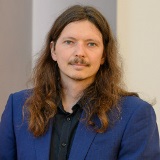
Stefan works as Senior Director at Merck Healthcare KGaA (EMD Serono), Germany, where he heads Global Antibody Discovery and Protein Engineering (ADPE). He holds a PhD in chemistry as well as a habilitation in biochemistry. In addition, he is Professor of Biomolecular Immunotherapy at Technical University of Darmstadt.
Dominik Zürcher, Researcher, Biochemical Engineering, ETH Zurich, Switzerland

Dominik Zürcher is a PhD researcher in the group of Professor Paolo Arosio at ETH Zürich. Together with an industrial partner, he develops microfluidic techniques and other automatable approaches to assess and optimize the interfacial stability of therapeutic protein formulations. He holds a B.Sc. and M.Sc. degree in chemical and bioengineering from ETH Zürich. During his studies, he interned in the group of Professor Tuomas P. J. Knowles at the University of Cambridge for his master's project to investigate antigen-antibody interactions using microfluidic techniques. After one year of project-based work in the R&D and marketing department of a major consumer goods company, he joined the Biochemical Engineering Laboratory in September 2020 to pursue his PhD studies in collaboration with an industrial partner from the biopharmaceutical industry.
Maria de Miguel, MD, PhD, Medical Oncologist, Clinical Investigator; Associate Director, START Early Phase Clinical Trial Program, Hospital Universitario HM Sanchinarro
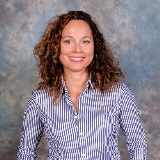
Senior Clinical Investigator, and Associate Director of the START Madrid-CIOCC unit. Dr. de Miguel has been involved in more than 150 Phase I clinical trials, including First-in-human, First-in-class trials, immunotherapy trials, cell-therapy, biomarker-driven trials, and ADCs with special emphasis on gastrointestinal, head and neck, and thoracic tumors. Dr. de Miguel has co-authored over 40 peer reviewed scientific articles including NEJM, Lancet, Cancer Cell or CCR, among others. She serves as a reviewer of various oncology peer-reviewed journals. She also has taken part of multiple international presentations at different major conferences and meetings such as ASCO, AACR, and ESMO. Dr. de Miguel is a member of ESMO and part of the Scientific Committee in 2024. She also has collaborated as a Faculty Member of the ECCO-AACR-EORTC-ESMO International Workshop in Methods in Clinical Cancer Research (2022-2023), the MCCR International Workshop. From the academic perspective, Dr. de Miguel is Clinical Associated Professor of Medicine at the CEU San Pablo, and the UCJC Universities. She is part of the faculty of different research and medicine training programs, as well as directing MSc and PhD students.
Diego Del Alamo, PhD, Computational Biologist, GSK

Diego del Alamo is a computational biologist in the Protein Design & Informatics group at GSK since May 2022 in Switzerland. He is involved in efforts to design therapeutic antibodies and other proteins. Prior to this, Diego completed his PhD at Vanderbilt University in Nashville, TN, USA where he developed methods in Rosetta and AlphaFold for structural modeling of proteins, such as conformational change modeling, using electron paramagnetic resonance spectroscopy data.
Judy van Beijnum, PhD, Senior Scientist and Project Leader, AUMC Amsterdam
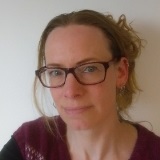
I am a molecular and cellular biologist in (immuno)oncology research. As a senior scientist and project leader within AUMC Amsterdam and CimCure BV, I focus on tumor angiogenesis. Using molecular profiles of tumor endothelial cells, we develop immunotherapies, including vaccines and CAR T cells, that suppress tumor angiogenesis and overcome endothelial cell anergy (a form of immunosuppression), and result in suppression of cancer growth.
Marc A. van Dijk, PhD, CTO, MiNK Therapeutics, Inc.

Marc van Dijk, PhD, is the Chief Technology Officer at MiNK Therapeutics. He brings more than 25 years of experience leading platform development. He was previously Chief Technology Officer at Agenus and 4-Antibody, a subsidiary of Agenus. Dr. van Dijk was previously Vice President, Antibody Technology at Genmab, and Director of Applied Research at Innogenetics (now Fujirebio). At Medarex and Genmab, he managed partnerships with Immunex (now Amgen), and Roche, and served as project leader on numerous discovery projects including Humax-CD20 (Arzerra). He held a tenure track position in the Department of Immunology at the University Medical Center in Utrecht and completed his postdoctoral fellowship in Molecular Biology at the University of California, San Diego. He obtained his Ph.D. in Molecular Biology from Utrecht University.
Dewald van Dyk, PhD, Associate Director, Biologics Engineering, AstraZeneca Pharmaceuticals LP
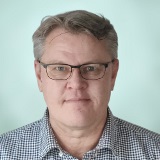
Dewald van Dyk is a Group Leader of Biologics Engineering at AstraZeneca Pharmaceuticals LP. He joined MedImmune/AstraZeneca in 2016. His research focuses on the generation of antibodies against pipeline targets including complex integral membrane proteins and other difficult targets using display platforms. He received his PhD training from the University of Stellenbosch, South Africa, and moved on to the University of Toronto, Canada, for post-doctoral training in phage-based antibody discovery, Fc engineering and lead optimization.
Pauline M. Van Helden, PhD, Director, Translational Research, Lava Therapeutics
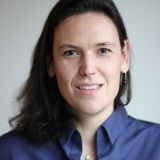
Pauline van Helden, Ph.D. is heading the translational research department at LAVA Therapeutics. She received her Ph.D. degree from the Utrecht University in Utrecht, the Netherlands in 2007 on immune responses against FVIII in the department of plasma proteins. From 2007 to 2010 she performed post-doctoral research at the division of immunology at Baxter Bioscience in Vienna, Austria after which she worked at AIMM Therapeutics in Amsterdam from 2010 to 2021 as (senior) scientist and director antibody and target discovery using human B-cell immortalization technology. Since 2021 she has joined LAVA Therapeutics focusing on early research and target discovery.
Edward van der Horst, PhD, CSO, Sensei Bio
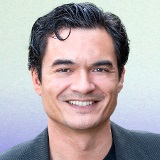
Edward van der Horst, PhD, is a molecular pharmacologist with a strong focus on antibody drug development across diverse target classes in oncology. He has 20 years of research and development experience from Zenith Epigenetics Ltd., Igenica Biotherapeutics, Inc., OncoMed Pharmaceuticals, Tularik, Inc. (now Amgen), and U3 Pharma GmbH (now Daiichi-Sankyo). Dr. van der Horst’s contributions and discoveries have led to the clinical evaluation of several novel drug candidates at Igenica Biotherapeutics and OncoMed Pharmaceuticals, as well as to the first clinical stage anti-HER3 antibody at U3 Pharma GmbH. He received his postdoctoral training at Tularik, Inc., earned his PhD in biochemistry from the Max-Planck Institute of Biochemistry and conducted his master’s thesis at Max-Planck Institute of Neurobiology. He graduated with an MS of chemistry from the Ludwig Maximilian University of Munich.
Willemijn van der Wulp, PhD Student, Labs of Rob Hoeben (Department of Cell and Chemical Biology) and Mirjam Heemskerk (Department of Hematology), Leiden University Medical Center
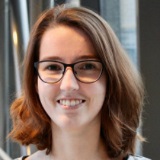
After obtaining her master’s degree in the life sciences, Willemijn started as a PhD student in 2018 at the Leiden University Medical Center (LUMC). Her PhD research focused on the antibody-mediated delivery of viral epitopes to redirect virus-specific T-cells towards cancer cells. The project was a collaborative effort of the Cell and Chemical Biology department and the Hematology department within the LUMC, the Leiden institute of Chemistry and Genmab.
講演者・スポンサー更新
スポンサー更新
スポンサー更新
スポンサー更新
講演者・スポンサー更新
Conference Programs
- Antibody-Based Therapies
抗体ベースの治療法 - Emerging Targets & Approaches
新たな標的とアプローチ - Membrane Protein Targets
膜タンパク質の標的
- Modulating the TME
TME(腫瘍微小環境)の調節 - Innovative CAR T Therapy
革新的なCAR-T療法 - Next-Gen Immunotherapies
次世代の免疫療法
- Optimisation & Developability
最適化と発展性 - Analytical Characterisation
分析特性評価 - Protein Stability & Formulation
タンパク質の安定性と配合
- Intro to Machine Learning
機械学習入門 - Machine Learning: Part 1
機械学習(パート1) - Machine Learning: Part 2
機械学習(パート2)
